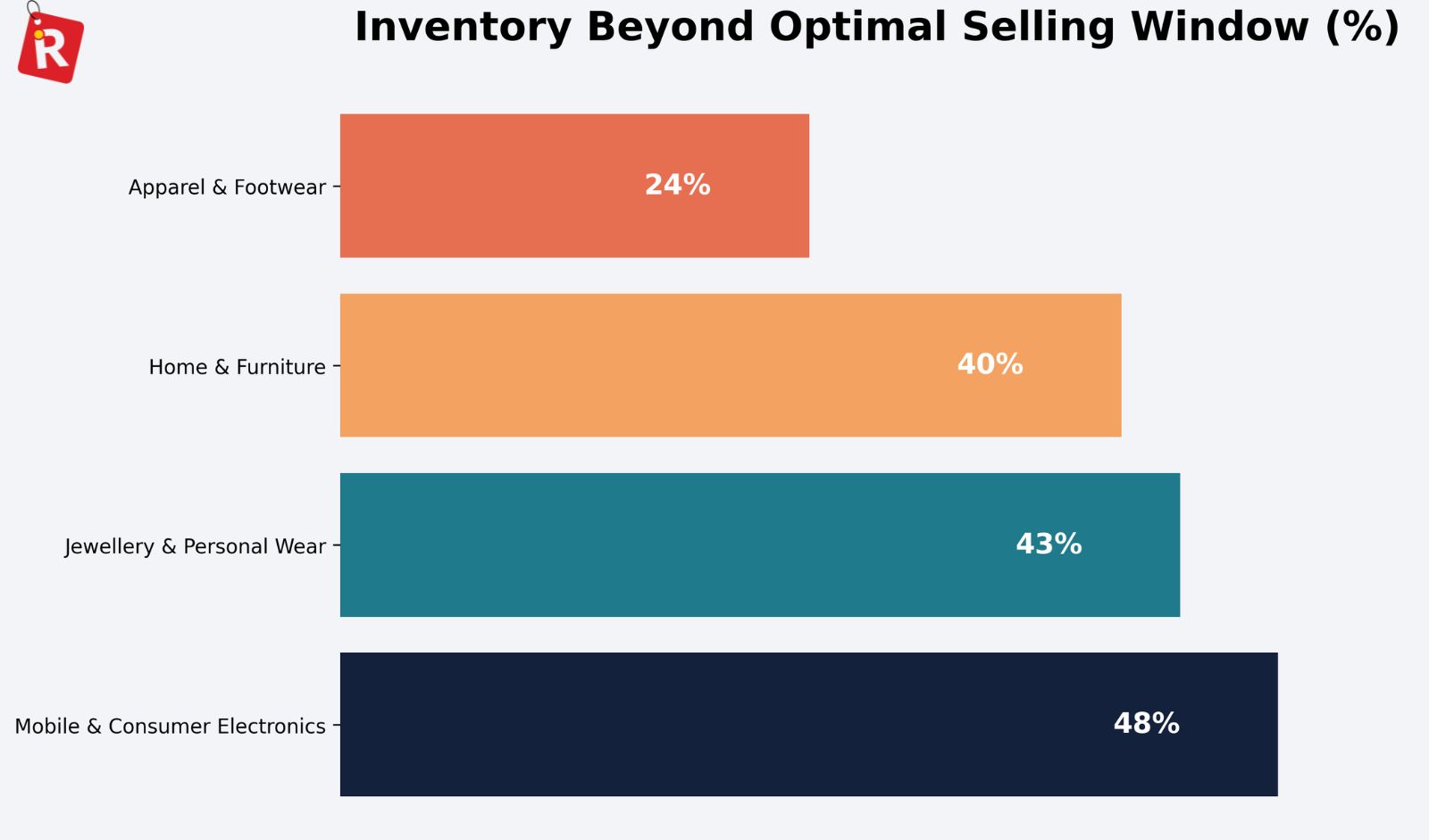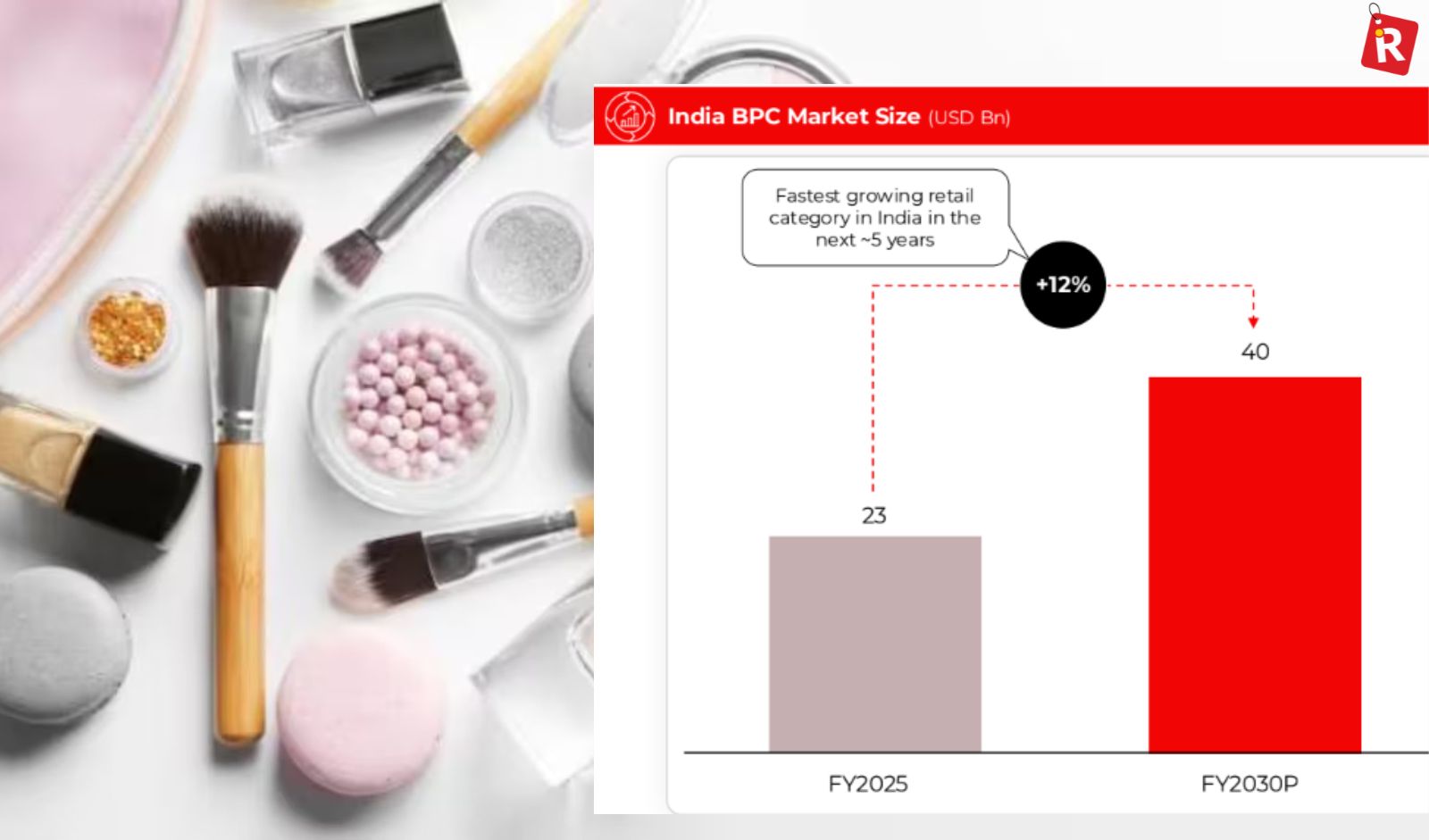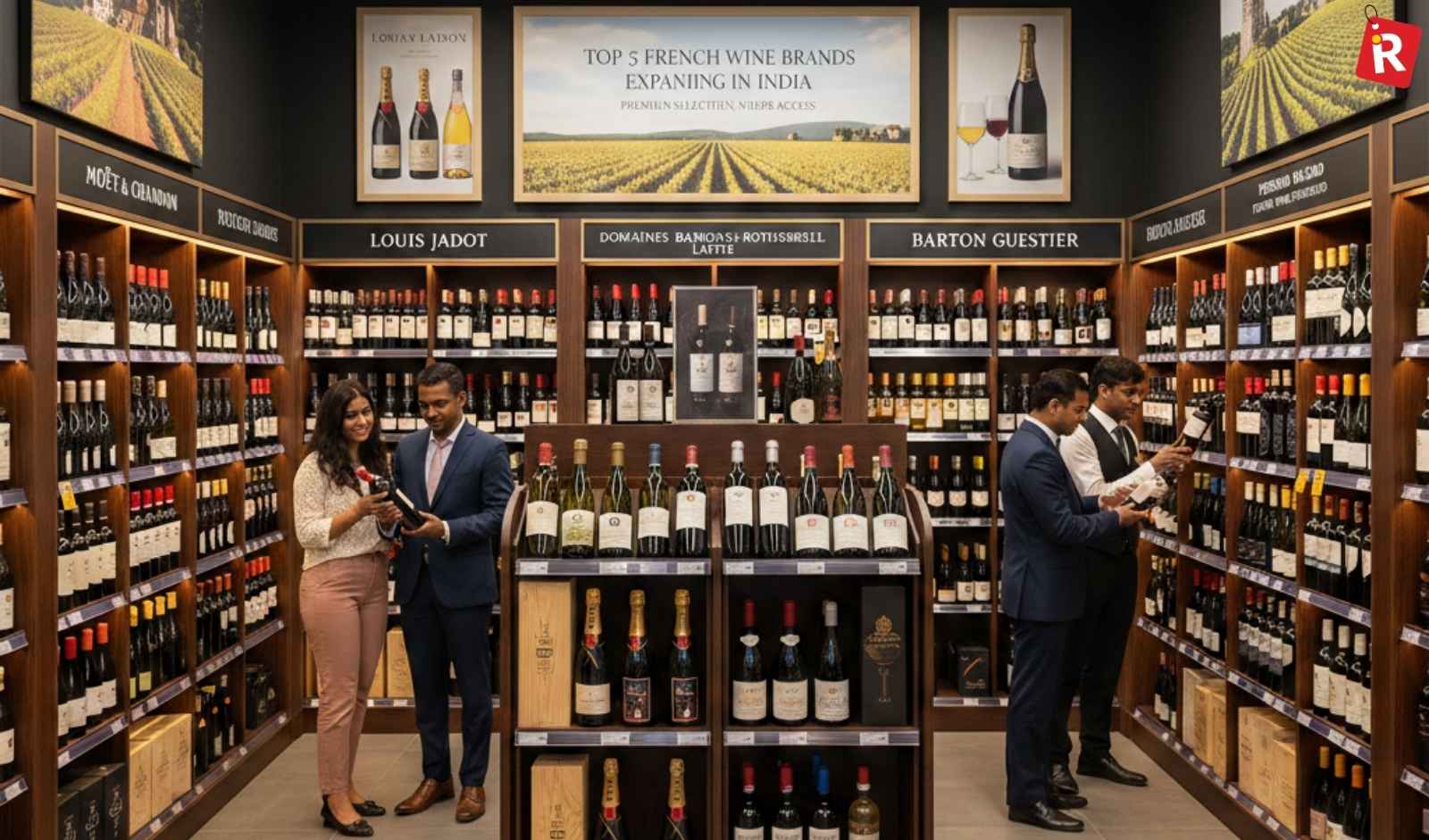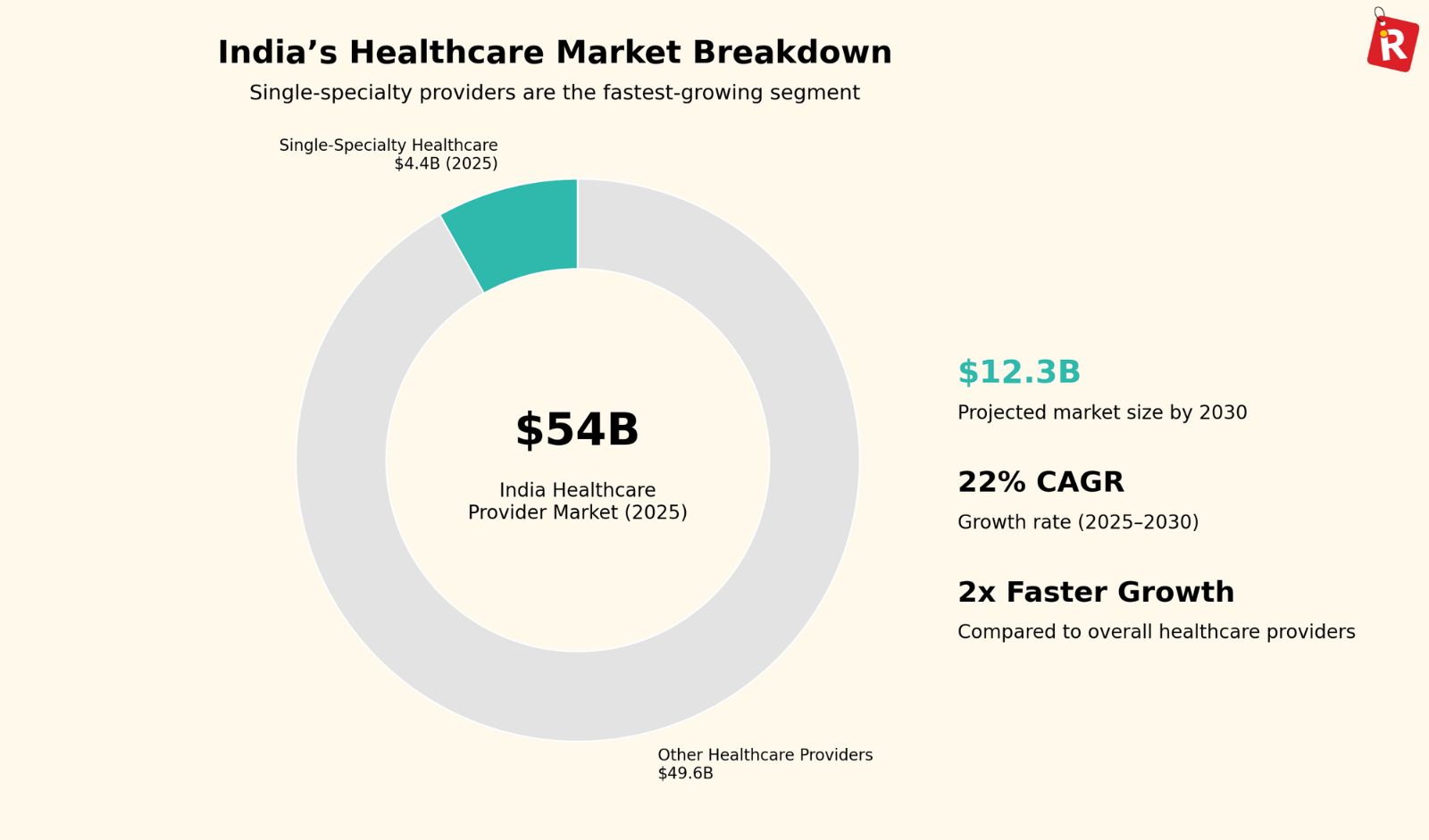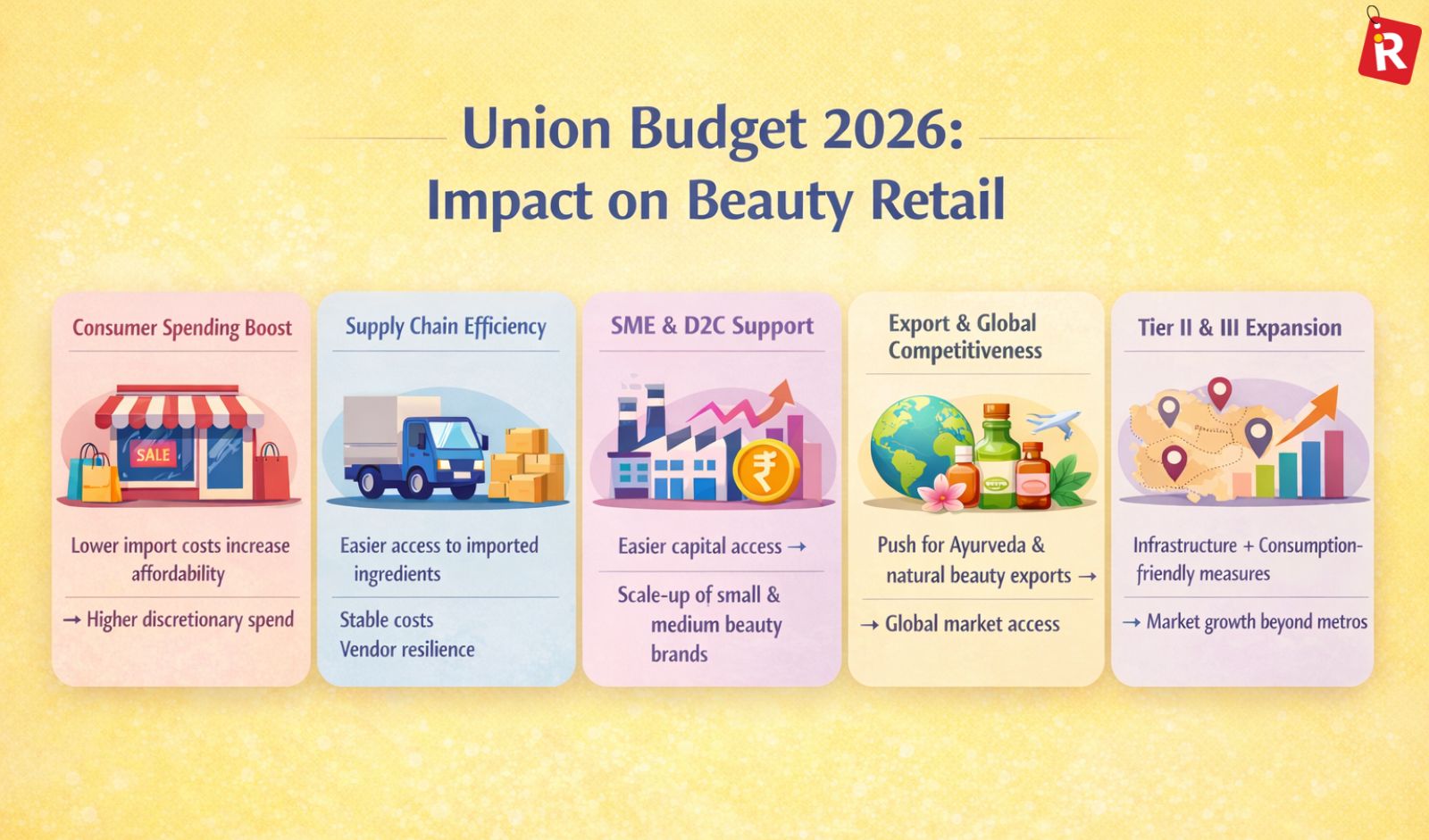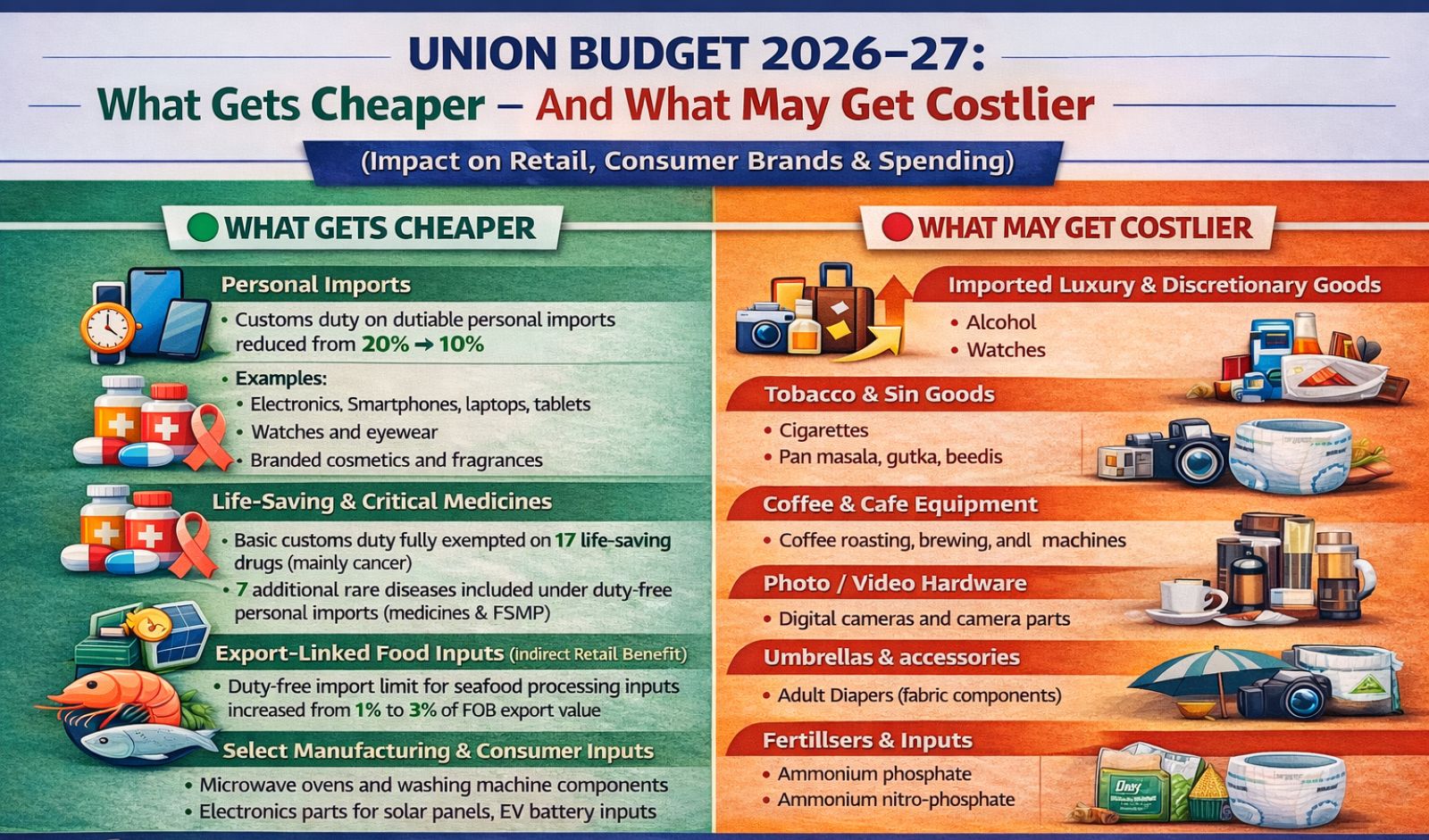Blockchain technology has been extensively tested and implemented by organizations moving on the trajectory to become digital-first, yet still, many brick-and-mortar retailers lag in recognizing its potential. According to a Deloitte study, internet interactions influence more than half of every dollar spent in retail locations, generating price transparency, convenience, and relevance expectations. The technology allows tracking supplies in real-time through all supply chain stages and records all the data on a decentralized ledger for greater traceability.
Following the pandemic, retailers had to struggle through substantial challenges of provenance and keeping track of the supply chain. To address such challenges, the broader adoption of technology by the sector in its legacy systems can provide the ultimate digitization it requires. The dependability, sustainability, and quality of tracking and assisting in management procedures of blockchain can provide retail sectors with the ultimate digitization they require. Thus, retail industries now focus on the blockchain more seriously and have started integrating it into their legacy systems.
Blockchain has the potential to alter data ownership. It assists in restoring data control to the user by allowing them to control the accessibility of their information online. It represents a fundamental shift in handling data and giving users much-needed authority over their information. This change is required for various security and privacy concerns.
Maintaining Product Quality and Improving Traceability
Blockchain has clear implications for tracking where the items come from if they are legitimate, and how well their condition is. For example, temperature data from perishable commodities can be recorded on a secure digital ledger using Internet of Things-enabled sensors.
Suppose a product is proven to be defective. In that case, a blockchain history allows a company to trace it back through the supply chain, identifying suppliers, manufacturers, and batches that may have been tainted. Blockchain technology allows retailers to recall products and address supply chain issues. Smart tags make a perfect example that tracks a product's location in near real-time and create an effective blockchain-based tracking system.
Managing Consumer Data
Blockchain technology has transformed the ownership of data. It empowers the users to know who has access to their data online. As organizations become digitally evolved, it becomes imperative for them to handle consumer data more responsibly. Consumers will not even realize when they permit these organizations to use theirs across applications.
As more organizations become digitally evolved, it opens more data collection points. Websites and applications are the first-hand collectors of users’ data. To address such repercussions, retailers are not integrating blockchain that works by using a decentralized ledger system. Unlike traditional systems, the collected data is stored in decentralized ledgers that remove intermediaries.
This offers full control to users and empowers them to decide who can access their data, transactions, and behavioral patterns. As a result, it drives transparency and authenticity and enhances the consumer experience.
Enhancing Loyalty Programs
Retail organizations can use blockchain to build a decentralized system where loyalty points can be used across numerous brands and retail categories. With blockchain in retail, all loyalty network members, including companies, loyalty program administrators, and customers, may communicate securely while maintaining their anonymity.
A fundamental driver of loyalty programs is the collection of customer data, which creates security risks. Loyalty program operators, in turn, establish their own digital rewards currency to facilitate point accumulation and redemption among partner organizations. In this sense, increasing flexibility and removing standard loyalty program constraints can lead to increased client involvement.
In today's highly competitive and increasingly customer-centric industry, more businesses are investing in developing or strengthening loyalty programs, and blockchain assists in various ways.
Combating Fraud and Counterfeiting
Counterfeiting has a particularly devastating impact in the retail sector, resulting in product recalls, harm to brand reputation, a decline in customer trust, and, ultimately, considerable monetary losses. Significantly, counterfeiting can mean a life and death situation for present-day organizations.
Retailers can ensure product authenticity for blockchain-tracked products because counterfeit goods lack this verification history. Of course, for blockchain to serve this purpose, the integrity of the information entered in the ledger must be ensured. Companies can put invoices on the blockchain to ensure they don't change hands between supplier and buyer to prevent procurement fraud. The fact that all parties must verify transactions also helps to reduce fraud.
Regulatory organizations are now recognizing the ability of blockchain to authenticate product provenance.
More Efficient Payment Systems
Retailers who do not take cryptocurrencies would profit from changing their payment methods now that the mainstream has officially adopted them.
However, blockchain has payment implications that extend beyond cryptocurrencies. Because it eliminates the requirement for authentication overheads, it can potentially reduce the financial services infrastructure cost. Moreover, blockchain technology can benefit from various possible applications in payment systems, such as the transfer of digital and physical assets, the protection of intellectual property, and automated contracts.
Final Thoughts
Blockchain's uses in the retail industry are numerous: to increase customer trust and loyalty or to eliminate labor-intensive administration. Because of blockchain's ability to track, trace, and authenticate products, it can be used across the entire value chain, with the benefits being passed on to the consumer in the form of efficiency, increased trust and transparency, and safer quality of products.
In an industry where these processes are critical, blockchain is finally making it easy to retain correct records and track inventory. Businesses of all sizes can benefit from the trust, transparency, and transaction efficiency that blockchain brings to the retail industry as the technology evolves.
A rare alignment of structural undersupply and surging consumption is powering India’s organized retail resurgence — and investors are taking note. At a time when several Western markets continue to grapple with mall closures and muted footfalls, India’s retail real estate sector is moving in the opposite direction. The country’s per-capita retail stock remains among the lowest globally, creating a supply-demand dynamic that is structurally favorable for long-term growth.
According to Anarock research, Tier I cities in India offer just 4–6 sq ft of retail space per person, while Tier II and III markets trail even further at 2–3 sq ft. Grade-A mall space averages barely 0.6 sq ft per capita — a stark contrast to nearly 23 sq ft in the United States. The gap is not merely statistical; it represents a deep, persistent shortage of high-quality, organized retail space.
This undersupply is unfolding alongside India’s transformation into a projected $6 trillion consumption economy by 2030. Rising incomes, rapid urbanization, formalization of retail, and a young, aspirational demographic are reshaping spending patterns. Organized retail is emerging as one of the primary beneficiaries of this structural shift.
The leasing numbers tell a compelling story. Approximately 3.2 million sq ft of retail space was absorbed in Q3 2025 alone — a 65 percent year-on-year jump — with Delhi/NCR and Hyderabad leading activity. Vacancy levels in high-quality malls are tightening, rental values are appreciating, and trading densities are strengthening, reinforcing the sector’s investment appeal.
But this growth is not being driven by scale alone. It is being powered by reinvention.
From Construction to Curation
India’s new-age retail developments are no longer just about adding square footage. They are about creating experiences. Harinder Singh Hora, Founder Chairman, Reach Group, emphasizes that developers are aligning retail assets with experience-led and omnichannel strategies. Physical stores are increasingly integrated with digital platforms for fulfillment, returns, and customer engagement. In this evolving ecosystem, success is defined not merely by size but by design, curation, and seamless consumer journeys.
“Retail today is about curation, not just construction,” he noted. High-quality design, accessibility, compliance, efficient parking, and a thoughtfully curated tenant mix are essential ingredients. Developers delivering immersive, lifestyle-oriented retail environments with a clear consumer proposition are witnessing faster leasing momentum and stronger brand commitment.
Malls are being repositioned as lifestyle hubs — destinations that combine fashion, food, entertainment, wellness, and social interaction. The goal is to increase dwell time and drive repeat visits, thereby enhancing tenant sales and rental predictability.
NCR: The Consumption Powerhouse
If there is one region that encapsulates this transformation, it is Delhi NCR. The region continues to drive some of the strongest retail leasing activity in the country. Sustained growth in NCR has been supported by high footfalls, rising household affluence and a marked shift toward lifestyle-driven consumption. Retail assets are no longer transactional spaces; they are social and experiential centers.
Jatin Goel, Executive Director, Omaxe Group, observes that India’s organized retail sector is entering a high-investment growth cycle, supported by robust leasing and growing institutional interest. Delhi NCR consistently ranks among the leading markets, with tightening vacancies and appreciating rentals strengthening its position as a stable yield asset.
Importantly, retail momentum in NCR is closely intertwined with residential growth. Strong housing sales, declining unsold inventory, and the outward expansion of urban belts across Gurugram, Noida, Greater Noida, and Faridabad are creating dense, consumption-ready catchments. As these residential clusters mature, demand for organized retail is deepening across both established and emerging corridors.
Emerging micro-markets such as Dwarka and Faridabad are witnessing accelerated absorption, driven by infrastructure upgrades and expanding residential bases.
Integrated developments are reflecting this new thesis. Destinations such as Omaxe Chowk in Chandni Chowk and World Street in Faridabad exemplify large-scale, experience-led retail formats that blend heritage appeal, infrastructure connectivity, and curated tenant strategies.
Beyond the Metros: The Tier II Push
While NCR and other metros remain at the forefront, the next wave of growth is steadily moving beyond traditional urban strongholds. Tier II cities, including Lucknow, New Chandigarh, and Indore, are recording rising pre-commitments from national and international brands as organized supply expands. Improved connectivity, rising disposable incomes, and increasing brand awareness are transforming these cities into viable retail destinations.
Tourism and pilgrimage-driven economies are also emerging as compelling retail micro-markets. Cities such as Ayodhya and Vrindavan are witnessing year-round visitor footfall, creating opportunities for organized retail formats aligned with hospitality and infrastructure upgrades.
This geographical diversification signals a broadening consumption base and reduces concentration risk for developers and investors alike.
Capital Flows Follow Consumption
India’s retail real estate story is not only attracting domestic developers but also global capital.
An estimated $3.5 billion is expected to be invested in India’s retail real estate over the next three years. This reflects a visible rotation of institutional capital toward markets offering both growth and stability.
Organized retail is gaining prominence within REIT and institutional investment strategies, given its ability to deliver stable annuity income supported by long-term leases. High occupancy levels, improving rental trajectories, and resilient consumption demand are positioning retail as a defensive yet growth-oriented asset class.
Mitul Jain, Managing Director, SPJ Group, highlights that projects anchored by F&B, entertainment, and lifestyle brands are generating higher dwell times and repeat footfalls. This strengthens tenant sales performance and translates into predictable rental yields for owners.
Bhupindra Singh, COO, RISE Infraventures, adds that experience-driven retail integrated with offices, residences, and hospitality creates captive audiences and ensures all-day activity. Such mixed-use ecosystems are increasingly preferred by investors seeking long-term, stable income streams rather than short-term speculative gains.
The Road Ahead
India’s organized retail sector stands at a pivotal moment. Structural undersupply continues to create a favorable demand-supply imbalance. Consumption growth is broad-based and deepening. Capital markets are increasingly aligned with long-term retail real estate strategies.
Yet the next phase of growth will depend on adaptability. Developers must continue to prioritize experience, digital integration, sustainability, infrastructure alignment, and tenant curation. Simply adding inventory will not suffice; differentiation will define success.
As India advances toward its $6 trillion consumption milestone, organized retail is poised to remain a core pillar of the country’s economic expansion. The growth story is no longer just about building malls — it is about building destinations, ecosystems, and experiences.
In a global environment where retail assets face uncertainty, India’s organized retail market stands out for its structural depth, demographic momentum, and capital appeal. Undersupplied and evolving, it is fast emerging as one of the most compelling long-term real estate plays in the world.
India for centuries has been the land of the faithful and the religious. And for generations, countless Indians and Westerns turned to faith through neighbourhood temples, priests, and small kiosks tucked into busy streets. But the times have changed.
Historically, spiritual products and services accessed through hole-in-the-wall shops and temple adjacent stalls, and trusted neighbourhood vendors were channelled through an ecosystem built on familiarity, trust, and confidence. It has fast grown into millions of customers, countless platforms, and an elaborate market exceeding billions in market-value.
The New e-Spiritual Market
Thanks to the internet and digital platforms, this market has transformed the manner in which spiritual services reach people. E-commerce and quick-commerce platforms have not only bettered the service-standard but provided value to the faithful customer. These platforms have evidently transformed India’s spiritual market - which is projected to double by 2034 from $70 billion in 2025. According to Datum Intelligence, quick-commerce platforms already account for roughly a tenth of India’s Rs 900 crore spiritual products segment.
Besides economic opportunity, these numbers reflect a deeper transformation of a traditionally fragmented hyper-local sector in gradually finding structure through organised platforms. More than just convenience, this indicates growing consumer comfort in accessing faith-based products through digital channels, where transparency and reliability are increasingly expected.
Beyond Products
The transformation in India’s rich spiritual services and faith-tech extends well beyond physical goods and includes online pujas, astrology consultations, matchmaking services, devotional content, and ritual bookings.
Online platforms have curated categories for puja essentials, idols, and festival-specific products. These are complimented with good pricing standards, delivery timelines, quality assurances and an experience like never before.
Startups and digital platforms in this space have made it possible for devotees to engage with spiritual practitioners irrespective of their geography. In temple cities, such as Ujjain, for instance, priests are technologically equipped to conduct online pujas via video calls and livestreams. Bookings for the Ujjain temple have risen sharply during peak periods such as Shravan with travellers able to book their tickets online. On a broader context, the Indian diaspora outside of the country has managed to engage with their religion without dependence on travel or intermediaries.
This shift is not merely technological as it is deeply enabling artisans, priests, astrologers, and small service providers. These stakeholders once depended on local footfall, and can now access national and international audiences through the internet. With integrated logistics, digital marketing, and discovery tools, traditional practitioners are finding new relevance in a digital-first world. In many ways, this mirrors the evolution of Ayurveda and wellness, where ancient knowledge systems found renewed reach through structured delivery and regulatory clarity.
Transparency = New Trust Anchor
One of the most meaningful contributions of digital platforms has been the introduction of clarity into a space that traditionally relied on informal, relationship-driven norms. Products now come with defined descriptions, visible pricing, authenticity assurances, and return policies; features that were often absent in small local outlets or temple-side kiosks.
This shift has had a tangible impact on consumer behaviour. Research by 360 Research Reports shows that buyers are willing to pay a premium for ethically sourced and authenticated spiritual goods, particularly in categories like gemstones, idols, and ritual kits. Trust, once built purely on personal relationships, is now increasingly reinforced by platform-enabled verification.
Standardisation has introduced much-needed accountability as sought by customers and platform providers. Many platforms now verify practitioner credentials, display certification standards, and maintain service transparency helping consumers engage with spirituality with greater confidence.
Responsibilities Of Scale
While the transformation is engaging and benefits stakeholders, the greater reach comes with greater responsibility. While digital access has democratised spiritual services, it has also lowered barriers for fraudulent actors. Operating on the internet does pose challenges around the risks of over-commercialisation, misuse of consumer data, or dilution of authenticity which needs to be managed accordingly.
Businesses and platforms engaged in the spiritual space need to apply reasonable solutions in areas such as ethical sourcing, practitioner verification, data privacy, and grievance redressal mechanisms. As the sector matures, regulations will have a tall bearing but the industry can survive only if these approaches are consistent and transparent.
New Chapter in India’s Spiritual Ecosystem
India’s spiritual sector is gradually moving from fragmented, localised access to a more structured and transparent digital presence. For consumers, this brings confidence,
convenience, and choice while it delivers scale and sustainability for service providers. It does connect faith providers with faith seekers and does so without hampering cultural roots.
If guided responsibly, this digital evolution will strengthen India’s spiritual traditions and even render them more accessible, credible, and resilient in a modern context. Faith, after all, has always evolved with time. Today, it is simply finding its place, but this time on the screen.
Authored by:
Daman Soni, Chief Business Officer, Astrotalk Store
India’s organised retail sector may be growing, but a large part of it is quietly losing money — right at the shelf. A new knowledge report by Vector Consulting Group reveals that 91 percent of organised retail stores experience revenue leakage at the shelf level. The Ticking Shelf: The Overlooked Economics of Store Performance report is based on insights from CXOs and heads of 100 organised retail chains with annual revenues exceeding Rs 500 crore.
The Scale of the Problem
Despite strong category growth and network expansion, 28 percent to 40 percent of stores across formats continue to operate below profitability. This persistent tail of underperforming outlets suggests a deeper structural issue in how store-level economics are managed.
Retailers are expanding, categories are growing, and assortments are widening — but the core driver of profitability at the store level is being overlooked.
Shelf Throughput: The Missing Metric
At the heart of the issue is shelf throughput — the speed at which revenue and margin are generated per square foot, per day. While most retailers track metrics like sales per square foot or GMROI, only 9 percent actually use shelf velocity to guide daily decisions such as buying, replenishment, and display planning.
Without linking shelf performance to everyday operational decisions, stores struggle to maintain freshness and speed.
Ageing Inventory Eating Into Margins
One of the biggest concerns highlighted in the report is ageing inventory occupying valuable shelf space.
In Mobile & Consumer Electronics, 48 percent of on-shelf products remain beyond their optimal selling window. Apparel & Footwear reports 24 percent, Home & Furniture 40 percent, and Jewellery and Personal Wear 43 percent. When slow-moving products sit on shelves for too long, they crowd out new launches and reduce the opportunity to sell at full price.
Additionally, 83 percent of stores do not update planograms regularly, and 91 percent report that slow movers block space for new product introductions. Over time, this quietly erodes shelf productivity and margins.
The Cost-Efficiency Trap
According to P. Senthilkumar, Senior Partner at Vector Consulting Group, retailers often focus heavily on protecting margins. To lower unit costs, they accept long lead times, buy in bulk, and continuously expand SKU portfolios.
While these practices improve cost efficiency on paper, they increase total inventory in the system. When demand does not materialise as expected, ageing stock builds up quickly.
Corrective actions such as markdowns, transfers, or pullbacks are often delayed. Around 66% of retailers view markdowns as margin erosion, while 48 percent see corrective measures as additional costs. As a result, ageing inventory is managed reactively instead of through structured rules. In fact, 65 percent of retailers lack strong processes to maintain inventory freshness.
Managing Shelf Space as a Perishable Asset
The report argues that shelf space should be treated as a perishable asset. Every day that a product does not sell represents a lost opportunity. With limited shelf space and expanding assortments, retailers need disciplined systems to ensure constant churn.
The study recommends rule-based subordination of retail operations to shelf throughput. This includes limiting SKU expansion, allocating space based on performance, enabling faster replenishment, ensuring early exit of slow movers, and quickly deploying proven high-performing products. Automation, regular visual merchandising reviews, and consistent staff training are essential to sustain these practices at scale.
Kumar Rajagopalan, CEO of the Retailers Association of India, said the report provides valuable methods to improve profitability by focusing on shelf productivity and asset efficiency.
The Way Forward
The message is clear: topline growth alone does not guarantee profitability. Stores that maintain freshness, improve velocity, and increase throughput generate stronger returns, faster inventory turns, and better margins.
In modern retail, the shelf is a ticking clock. Retailers that manage it proactively will win. Those that do not will continue to leave money on the shelf.
If you walk down any beauty aisle in India today, you’ll notice something that was barely true a few years ago: global beauty is no longer niche here. From premium counters in malls to dedicated sections on e-commerce sites, beauty brands in India are becoming genuinely international. What’s driving this shift? Indian consumers are more curious, informed, and willing to try global formulas — whether it’s an american beauty brand with cult skincare cult status, a chic french beauty brand, or a trendsetting korean beauty brand with a two-step routine you can’t stop hearing about.
At the same time, more Asian labels — especially japanese beauty brands — are bridging function and feel, making them favorites among everyday users.
Why International Beauty Brands Are Finding India Irresistible
India is a unique mix: large population, rising disposable income, beauty-savvy shoppers, and high digital engagement. That’s a rare combo. Take a label with a loyal following in Korea, France, Japan, or the U.S., and you’ve got an audience here ready to explore it — if it’s accessible, relevant, and delivers results.
This is why american beauty brands, korean beauty brands, french beauty brands, and japanese beauty brands are racing to expand here. Whether they enter through luxury retail partners, local distribution deals, or direct-to-consumer e-commerce, the strategy is about making products feel right at home — even if their heritage is global.
How India’s Beauty Landscape Is Evolving
The idea of beauty in India is no longer rigid. It’s not just “fairness” creams or festival glam anymore. Consumers want hydration, glow, serum performance, clean ingredients, texture innovation, and formula transparency. They trust reviews. They compare ingredients online. They even gravitate toward international trends — lightweight essences from Japan, hyaluronic serums from Korea, long-wear primers from the U.S., and elegant packaging from France.
In short, people are curating their personal beauty language, and international players are giving them more ways to speak it.
Top International Beauty Brands Expanding Aggressively in India
1. Estée Lauder
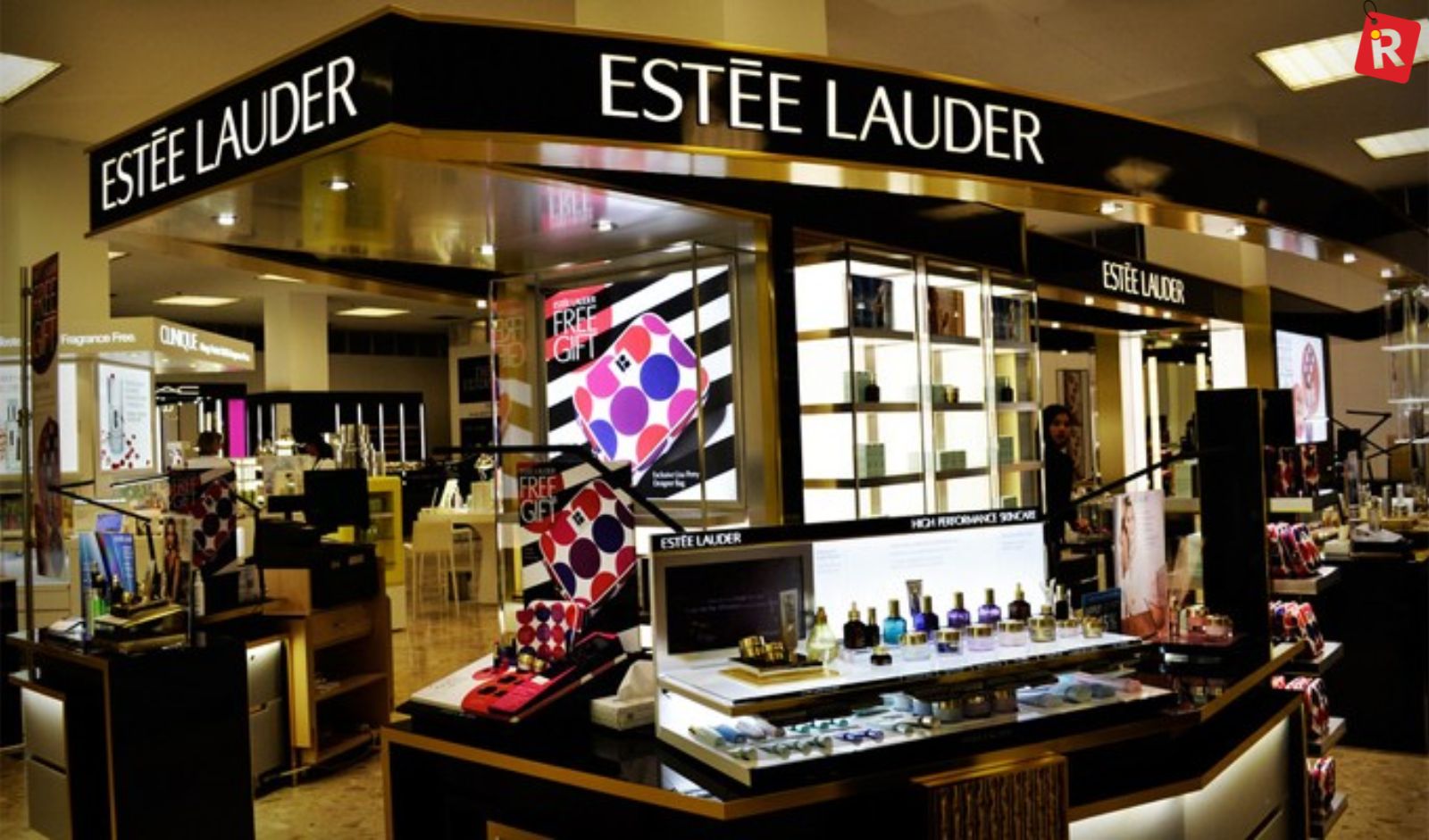
Estée Lauder is one of those luxury beauty brands that feels instantly aspirational yet practical. Its presence in India has grown not just in major metros but also in emerging urban markets where people are looking for performance skincare with visible results. Known for powerful serums, iconic foundations, and age-defying treatments, Estée Lauder appeals to consumers who want effectiveness without guesswork. The brand’s expansion reflects deeper shifts: Indians are no longer afraid to invest in premium skincare and makeup if it actually delivers. That’s why Estée Lauder sits comfortably among the top beauty brands in India today — it’s recognizable, results-driven, and has built strong trust over repeated use.
Read more: Best 8 Cosmetics Brands Trending on Instagram and Quick Commerce
Top 7 Best Hair Serum Brands for Women Driving Growth in India’s Beauty Retail
Top 6 Shampoo Brands to Control Oily Hair and Greasy Scalp
2. L’Oréal Paris
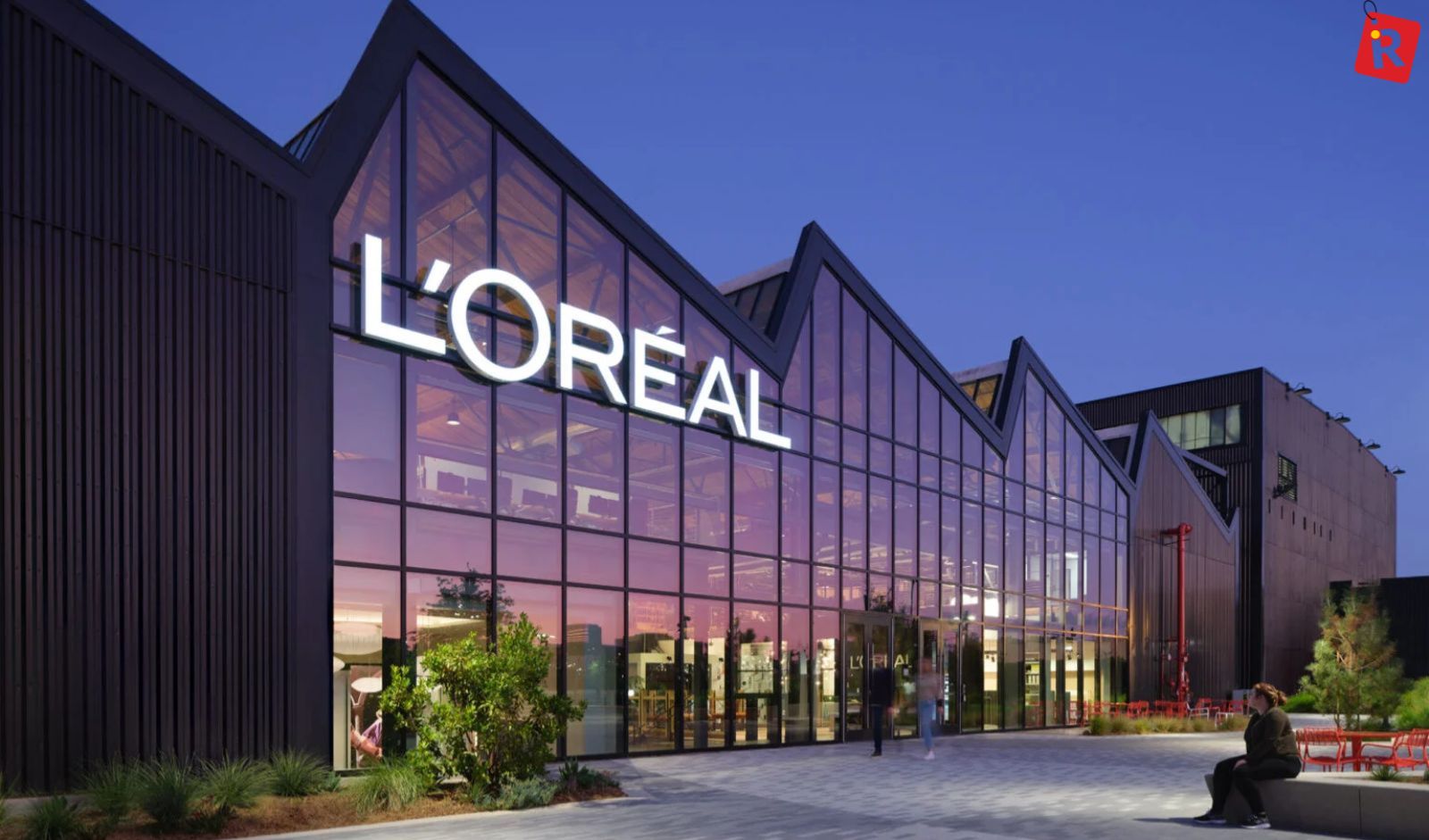
L’Oréal Paris is the textbook example of a global beauty powerhouse that knows how to localize without losing identity. As one of the most visible french beauty brands in India, it has carved out space across skincare, haircare, and makeup. What makes L’Oréal stand out is its combination of high-end technology with everyday wearability. A serum from L’Oréal can feel premium yet not intimidating, and a lipstick can feel both comfortable and trendy. This accessibility, combined with strong distribution — from urban boutiques to local cosmetics stores — has made it one of the best beauty brands in India across segments. Its constant innovation keeps it both relevant and in demand.
3. Shiseido

Shiseido’s expansion in India reflects the growing curiosity about high-touch Asian skincare — and why japanese beauty brands are no longer niche here. Shiseido excels at blending science with sensorial formulas that feel luxurious on the skin. Its essences, sunscreens, and moisturizers are loved for being effective without heaviness — a balance Indian weather makes particularly appealing. Shiseido doesn’t just sell products; it sells a ritual centred around hydration and skin health. That resonates deeply with consumers moving beyond quick fixes to routines that feel good to use every day. As a result, Shiseido continues to expand its footprint and fan base across beauty-forward Indian consumers.
4. Laneige
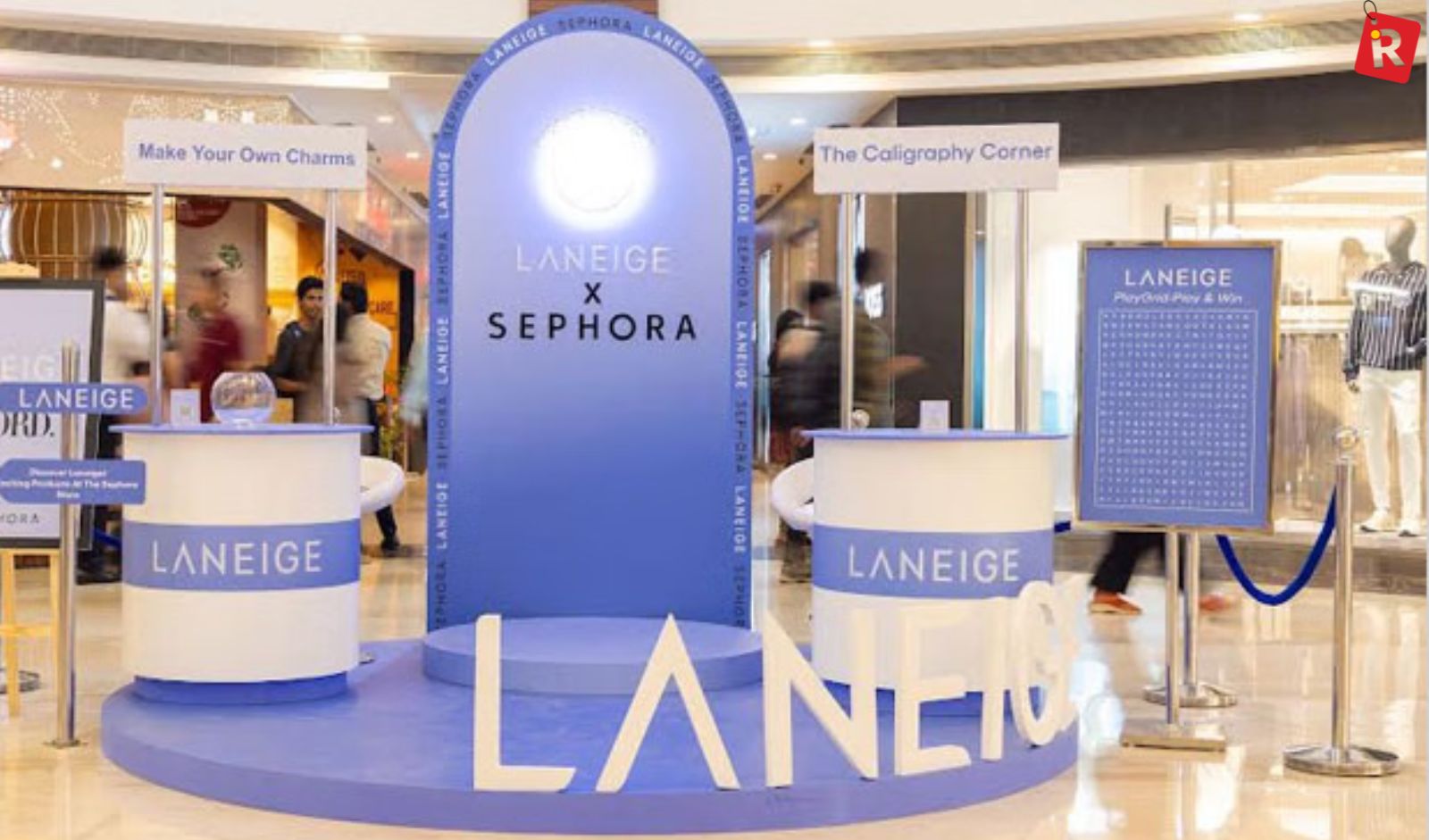
When you talk about korean beauty brands in India, Laneige effortlessly comes up in conversations about glow and hydration. Thanks to its rich yet lightweight formulas and signature water-science technology, Laneige has become especially popular among younger users who want skin that reflects natural radiance, not heavy makeup. Its Water Sleeping Mask and Lip Sleeping Mask have cult status online, driving both curiosity and sales. What’s interesting is that Laneige didn’t rely solely on premium malls — it built buzz through social platforms and sampling culture, making K-beauty part of everyday routines. That strategy has helped it scale quickly and organically across cities.
5. Fenty Beauty

Fenty Beauty is an example of an american beauty brand that grew fast not because of heritage, but because it solved a real problem — namely, shade inclusivity and formulas that flatter a wide range of skin tones. Its expansion in India has been more than retail footprints; it’s brand culture. Lip glosses, foundations, and highlighters that actually look good in Indian skin tones generate repeat buying and word-of-mouth buzz. Fenty’s approach — bold, expressive, and inclusive — resonates strongly with younger shoppers who see beauty as identity, not just routine. That’s why it’s one of the most talked-about beauty product brands in India right now.
Know more: Summer Skincare Routine for Oily Skin in India
Top Chinese Alcohol Brands Entering India’s Premium Spirits Market
Top American Fashion Brands Expanding Aggressively Across India’s Fashion Retail Market
Market Insight: Why International Beauty Brands Are Growing Faster Than Ever
Indian consumers are no longer passive buyers — they have opinions, preferences, and global reference points. They watch tutorials and compare ingredients. They’re as likely to discover a Japanese essence as a Korean sheet mask or an American foundation. This cross-pollination of beauty habits has created fertile ground for international beauty brands.
Another big factor is omnichannel accessibility. You don’t need a luxury boutique membership to try a premium serum anymore. E-commerce platforms, beauty-specific apps, and digital sampling programs have made it easy to explore global brands from north to south, metro to non-metro.
Finally, social media accelerates trends in real time. A Korean lip tint trend can be a chicara makeup table staple within weeks; a French anti-aging serum can sell out overnight after a beauty influencer review. That’s the new reality shaping how beauty brands expand — and why India matters.
Conclusion
India’s beauty market is becoming one of the most exciting playgrounds for international beauty brands. American, French, Japanese, and Korean names are not just entering — they’re embedding themselves in local routines. What used to be aspirational has become attainable and relevant. From performance serums to trendy makeup essentials, the top beauty brands in India today are those that balance global excellence with local resonance.
FAQs on Top International Beauty Brands in India
1. Which international beauty brands are most popular in India?
Brands like Estée Lauder, L’Oréal Paris, Shiseido, Laneige, and Fenty Beauty are among the fastest-growing in India.
2. Are Korean beauty brands gaining traction in India?
Korean beauty brands like Laneige are especially popular for hydration and glow-focused products.
3. Do French beauty brands work well for Indian skin types?
Yes. Many french beauty brands tailor formulas that balance sensitivity, humidity, and long-wear performance.
4. Are American beauty brands adapting to Indian preferences?
Brands like Fenty and Estée Lauder localise shade ranges and textures while maintaining global quality.
India’s alcoholic beverage industry is undergoing a structural shift. While whisky continues to dominate consumption, the premium and luxury spirits segment is expanding rapidly across metros and tier I cities. According to industry estimates by IWSR and Confederation of Indian Alcoholic Beverage Companies, India’s premium spirits market has been growing in high single to low double digits annually, driven by rising disposable incomes, exposure to global drinking culture, and the expansion of modern retail and on-trade formats. Imported spirits account for a small but fast-growing share, particularly in the super-premium category.
Within this evolving landscape, Chinese alcohol brands are beginning to explore India as a strategic growth market. From traditional Chinese baijiu brands to globally recognised Chinese beer brands and boutique Chinese wine brands, producers are positioning themselves to tap into India’s growing appetite for premium international labels. While still niche, the entry of Chinese alcohol brands in India reflects a broader diversification of global spirits on Indian shelves.
Why Chinese Alcohol Brands Are Looking at India
China is home to one of the world’s largest alcohol markets, particularly in baijiu, which remains the country’s dominant spirit category. As domestic competition intensifies and global trade corridors expand, several popular Chinese alcohol brands are seeking overseas markets.
India presents a compelling opportunity for three reasons:
- A fast-growing premium consumer base
- Increasing interest in global spirits beyond Scotch and vodka
- Expanding luxury hotel, fine-dining, and cocktail culture
Although regulatory challenges and import duties remain significant, select premium Chinese alcohol labels are being introduced through niche distributors, diplomatic channels, and high-end hospitality networks.
Below are some of the Top Chinese Alcohol Brands that are either entering or exploring India’s premium spirits market.
1. Kweichow Moutai – The Icon of Chinese Baijiu
![]()
Often regarded as the face of best Chinese liquor, Kweichow Moutai is China’s most prestigious baijiu producer. Distilled from sorghum and wheat using traditional fermentation techniques, Moutai’s flavour profile is complex, savoury, and aromatic, often described as having soy sauce, nutty, and umami notes.
Baijiu holds more than 90 percent share of China’s domestic spirits consumption by volume, and Moutai leads the premium end of that market. In global luxury rankings, it has also emerged as one of the most valuable spirits brands worldwide.
In India, Moutai’s presence is currently limited to select duty-free outlets and luxury hospitality settings. However, as Indian consumers become more experimental, especially in metropolitan cities, premium Chinese baijiu brands like Moutai are finding curiosity-driven demand among collectors and high-end diners.
Why it stands out:
- Heritage dating back centuries
- Strong brand equity in global luxury spirits
- Positioned as ultra-premium gifting liquor
Read also Top 10 Best Whisky Brands in Goa That Are Worth Every Sip
Best Low-Calorie Alcohol Brands for Health-Conscious Drinkers
7 Best Japanese Beer Brands in India
2. Wuliangye Yibin Co Ltd – A Refined Baijiu Experience

Another major name among Chinese liquor brands, Wuliangye is known for its “five-grain” baijiu, crafted from sorghum, rice, glutinous rice, wheat, and corn. The result is a layered, aromatic spirit that differs from the bold intensity of Moutai.
Wuliangye has actively expanded into global markets including Europe and Southeast Asia. Its premium positioning makes it suitable for India’s luxury hospitality sector, where chefs and mixologists are exploring Asian pairings and baijiu-based cocktails. As Indian consumers grow more familiar with Japanese sake and Korean soju, the entry of refined Chinese baijiu brands like Wuliangye could represent the next phase of Asian spirits gaining traction.
Why it stands out:
- Unique five-grain production method
- Strong international expansion strategy
- Ideal for curated tasting experiences
3. Tsingtao Brewery – China’s Global Beer Ambassador

Among Chinese beer brands, Tsingtao is arguably the most internationally recognised. Established in 1903, the brewery has a strong export presence in North America, Europe, and Asia. Tsingtao’s crisp lager profile aligns well with Indian food pairings, especially spicy and Indo-Chinese cuisine. In India, the brand is available in select premium retail outlets and high-end restaurants, primarily through imports.
As India’s beer segment evolves and consumers show interest in international lagers beyond European labels, Chinese alcohol brands in india such as Tsingtao, could gradually increase shelf presence.
Why it stands out:
- Over a century of brewing history
- Widely exported Chinese beer
- Balanced flavour suited for the Indian palate
4. Changyu Pioneer Wine Company – China’s Leading Wine Producer

When discussing Chinese wine brands, Changyu Pioneer Wine Company is a key name. Founded in 1892, it is one of China’s oldest and largest wineries. Changyu produces Cabernet Sauvignon, Riesling, ice wines, and brandy, catering to both domestic and export markets.
China has steadily improved wine quality over the past two decades, with regions like Ningxia gaining international attention. Changyu’s premium labels are already present in parts of Southeast Asia and Europe, and exploratory interest in India has emerged through wine importers. With India’s wine consumption still relatively low compared to global standards but growing steadily in urban centres, premium Chinese wine brands could find niche demand among experimental wine enthusiasts.
Why it stands out:
- Established heritage winery
- Diverse portfolio including red, white, and ice wines
- Competitive pricing within the premium category
Know more: Top Craft Gin Brands in India with Unique Botanical Blends
Best American Whisky Brands in India
Top 6 Unfiltered Beer Brands in India That Are Worth a Try
5. Luzhou Laojiao Co Ltd – Tradition with Modern Positioning

Luzhou Laojiao is one of the oldest continuously operating distilleries in China. Known for its “strong aroma” baijiu style, it represents traditional craftsmanship combined with modern branding.
The company has been proactive in expanding global awareness of baijiu through cultural promotions and tasting events. In India, interest in such premium Chinese alcohol is still at an early stage, but may grow through embassy events, cultural festivals, and luxury hospitality tie-ups. For consumers seeking the best Chinese liquor beyond mainstream categories, Luzhou Laojiao offers authenticity and depth.
Why it stands out:
- Centuries-old fermentation cellars
- Strong cultural heritage
- Premium gifting appeal
The Road Ahead for Chinese Alcohol Brands in India
India’s regulatory framework for alcohol imports remains complex, with high customs duties and state-level compliance requirements. However, as Indian consumers continue to premiumise their drinking habits, global diversification is inevitable.
While Scotch whisky, Japanese whisky, and European wines currently dominate the imported segment, top Chinese alcohol brands are gradually entering conversations within luxury circles. The success of Chinese alcohol brands in India will depend on education, tasting-led marketing, and partnerships with fine dining establishments.
Baijiu, in particular, may require significant consumer awareness efforts due to its distinctive flavour profile. However, with India’s openness to global cuisine and cocktail experimentation, the category has long-term potential. As cross-border trade and diplomatic ties evolve, more popular Chinese alcohol brands may test Indian waters in the coming years.
Read More - Top Beauty Brands Seeing a Valentine Week 2026 Sales Surge
Top Newly Launched Beer Brands Gaining Attention in India
6 Whisky Brands You Should Stock Up for This Coming Monsoon
FAQs on Top Chinese Alcohol Brands in India
1. What are the Top Chinese Alcohol Brands available globally?
Some of the leading names include Kweichow Moutai, Wuliangye, Luzhou Laojiao, Tsingtao Brewery, and Changyu Pioneer Wine Company.
2. Are Chinese alcohol brands in India widely available?
Currently, availability is limited to select premium retail stores, duty-free outlets, and luxury hotels. Wider distribution depends on import partnerships and regulatory approvals.
3. What is baijiu, and why is it popular?
Baijiu is a traditional Chinese distilled spirit made primarily from sorghum. It dominates China’s domestic spirits market and is considered one of the world’s most consumed spirits by volume.
4. Are Chinese beer brands popular in India?
Chinese beer brands such as Tsingtao have a niche presence in premium restaurants and imported beer sections, but they are not yet mainstream in India.
5. Is premium Chinese alcohol expensive in India?
Due to high import duties and logistics costs, premium Chinese alcohol typically falls into the luxury price bracket in India.
Lip gloss is no longer an afterthought in makeup bags. Once seen as a shiny add-on, it has become a standalone must-have — a confidence booster, a quick glam fix, and a finish that no lipstick can quite replicate. Across beauty counters and online carts, lip gloss sales are rising fast, especially among Gen Z and young millennials who want radiance without fuss.
While matte lips had their moment, gloss has staged a strong comeback. Think glass-like shine, juicy colour pops, and formulas that feel more like nourishment than makeup. With the shift toward minimal makeup and skin-first beauty, brands that innovate in texture, finish, and feel are seeing standout traction.
What’s interesting is that consumers aren’t just buying any lip gloss — they’re zeroing in on brands that mix performance with comfort and social-ready shine. In India, the surge is visible across categories from affordable everyday drops to premium, Instagram-friendly picks that go viral overnight.
So, which cosmetic brands are leading this lip gloss boom? Here’s a look at five names carving out real momentum.
What’s Fueling the Lip Gloss Comeback
We used to associate lip gloss with the early 2000s — sticky, sparkly, and super sweet. That image is gone. Today’s glosses are lightweight, hydrating, and often infused with skincare benefits like vitamin E, hyaluronic acid, or botanical oils. Glosses blur the line between skincare and makeup — and that versatility is fueling wider adoption.
Whether you’re pairing it with a full glam look or wearing it solo for a fresh, dewy vibe, gloss feels effortless. That’s why brands that nail texture and wearability are the ones driving sales, not just those with pretty packaging.
Why Indian Consumers Are Glossing Up
Beauty habits in India are shifting. With more people watching tutorials, exploring K-beauty and clean beauty trends, and experimenting boldly on social platforms, lip gloss has become a quick way to update a look without heavy makeup. Gloss solves a modern problem: instant polish without commitment.
Brands that balance gloss shine with hydration (no cracking, no dryness) are the ones Indian consumers keep returning to. And as comfort beauty wins over dramatic statement makeup, gloss sells because it feels good — not just because it looks good.
Top 5 Cosmetic Brands Driving Lip Gloss Sales Surge
1. Fenty Beauty

Fenty Beauty shook up the beauty world by being both inclusive and trend-savvy, and its lip gloss line is no exception. Known for its universally flattering shades and high-impact shine, Fenty’s Gloss Bomb became a social media phenomenon almost overnight. The formulas feel cushiony without stickiness and deliver a mirror-like finish that flatters all skin tones. What sets Fenty apart is consistency — shoppers know what to expect: smooth glide, long wear, and true colour payoff. It’s one of the cosmetic brands that didn’t just contribute to the lip gloss trend — it helped define it.
Read more: 8 Best Luxury Lipstick Brands in India That Are Totally Worth the Splurge
Top International Beauty Brands Expanding Aggressively in India
Best Japanese Skincare Brands Indian Consumers Are Rapidly Switching To
2. Glossier

Glossier’s approach to beauty has always been subtle and skin-centric, making its lip gloss a natural hit among minimalists. Its clear and sheer-tint glosses give that just-kissed look rather than full coverage, which fits perfectly into the modern “no-makeup makeup” ethos. Indian gloss lovers appreciate how it layers over natural lip tones without feeling heavy or sticky. Glossier’s popularity isn’t just about aesthetics — it’s about how the product integrates with everyday routines and feels comfortable for all-day wear. That readability makes it one of the most talked-about cosmetic brands in the lip gloss category.
3. NYX Professional Makeup

NYX knows what trend-savvy shoppers want — quality formulas without premium price tags. Its lip gloss range covers everything from clear, glass-shine finishes to rich, bold hues packed with pigment. Because NYX targets young, expressive consumers, its glosses often experiment with texture — high shine, shimmer bursts, even jelly finishes. This excitement translates into high sales, especially among online audiences who love posting lip swatches. NYX combines playfulness with performance, which is why it’s one of the lip gloss brands consumers reach for first when they want vibrant colour and shine without compromise.
4. MAC Cosmetics

MAC has deep roots in professional makeup artistry, and that expertise shows in its lip gloss lineup. Glosses from MAC balance shine with wearability — meaning you get that high-impact finish without a heavy feel. Plus, the colour range is expansive, so you can find everything from soft nude to dramatic berry gloss. What keeps MAC competitive is its ability to satisfy both casual gloss lovers and makeup professionals who need a reliable finish for shoots, events, and editorial work. For many shoppers, MAC isn’t just a brand — it’s a trusted beauty staple, and its glosses are often the go-to choice for skin that needs a polished pop.
5. PAC Cosmetics

PAC Cosmetics brings pro-level formulas into everyday beauty routines, and its lip glosses are no different. Known for rich pigment and smooth texture, PAC glosses offer a hybrid feel: they add shine while enhancing natural lip tone and structure. The brand’s focus on performance — long wear, comfortable feel, and blendability — resonates with consumers who want results without heaviness. PAC’s lip glosses have become conversation starters in beauty communities precisely because they deliver impact without high maintenance, making the brand a key driver in India’s lip gloss surge.
Read also Top Chinese Alcohol Brands Entering India’s Premium Spirits Market
Top American Fashion Brands Expanding Aggressively Across India’s Fashion Retail Market
Top 5 Japanese Electronics Brands with Strong India Presence
Market Insight: Gloss Is More Than a Trend — It’s Becoming a Routine Staple
There’s a subtle shift happening in beauty routines: people are moving away from heavy lip colours toward finishes that look alive and wearable. Gloss has caught that wave. Whether it’s tinted shine over a bare face, layered over lipstick for dimension, or matched with a full makeup look, gloss now has a place in everyday beauty.
Another factor? Social media. Gloss looks bold on camera without effort — it catches light, shows texture, and looks fresh in videos and selfies. That visual advantage has translated directly into stronger online sales, especially among younger buyers.
Finally, consumers are more educated than ever. They’re not just chasing shine—they’re looking for hydrating formulas, smooth glide, and wearability. Brands that deliver on all three are the ones that are seeing repeat purchases, not just first-time buys.
Conclusion
The surge in lip gloss sales shows how beauty has become more experiential and skin-connected. Gloss isn’t a fad. It’s a finish that fits multiple styles — minimal, bold, classic, or experimental. The cosmetic brands driving this surge understand one thing: shine only matters if it feels good. And that’s why gloss is no longer an accessory — it’s a staple.
FAQs
1. Why is lip gloss becoming so popular again?
Gloss gives instant shine and polish with minimal effort, fitting modern beauty preferences for natural yet elevated looks.
2. Are more people choosing glossy finishes over matte lips?
Yes. Many find glossy finishes more comfortable and flattering for everyday wear compared to matte options.
3. Do these brands offer glosses suitable for Indian skin tones?
Absolutely. Brands like Fenty and MAC prioritise inclusive shade ranges that work well across diverse tones.
4. Should I wear gloss alone or over lipstick?
Both work — gloss can stand alone for a soft, natural look or be layered over lipstick to add dimension and shine.
5. What should I look for in a lip gloss?
Look for hydration, smooth texture, lasting shine, and a feel that doesn’t dry out your lips — those are the glosses that get used again and again.
Valentine’s gifting has evolved. It’s no longer just about roses and heart-shaped boxes. People are choosing gifts that reflect personality — something fun, something indulgent, something wellness-led, or something that upgrades everyday rituals.
This year, the most interesting Valentine’s Day gifts aren’t the obvious ones. They’re playful cocktails in a bottle, glow-boosting skincare, pro-grade makeup, and feel-good snacks you can share during a Netflix date. Whether you’re planning a romantic evening or celebrating self-love, brands are stepping up with options that actually feel personal.
Gifting Is Getting More Experiential
Consumers aren’t just buying products — they’re buying moments. A ready-to-drink cocktail becomes a party starter. A luxe face oil becomes a nightly ritual. A wellness snack becomes part of a cozy movie marathon. Valentine’s gifting now revolves around shared experiences and everyday indulgences.
That’s why the best brands offering Valentine’s Day gifts this year span across food, beauty, wellness, and lifestyle. They make celebrating love feel effortless.
Wellness and Indulgence Are Coexisting
There’s also a noticeable shift toward “better-for-you” gifting. Couples want treats — but they don’t necessarily want the sugar crash that follows. Millet-based snacks, antioxidant-rich skincare, and nutrient-focused treats are stepping into the Valentine’s spotlight.
At the same time, indulgence hasn’t disappeared. It’s just been refined — high-performance makeup, artisanal skincare oils, and curated body serums now compete with traditional gift hampers.
Presentation Still Matters
Let’s be honest: how something looks still influences what ends up in the cart. Bright cocktail bottles, sleek beauty packaging, and aesthetically pleasing snack assortments make gifts feel Instagram-ready before they’re even opened.
With that in mind, here are the best brands offering Valentine’s Day gifts that strike the right balance between fun, thoughtful, and practical.
1. BuzzBallz

BuzzBallz are pure festive energy packed into a single, eye-catching bottle. Bright, playful, and impossible to ignore, these ready-to-drink cocktails are made for spontaneous celebrations. Flavours like Chilli Guava Groove and Berry Lemon Squeeze bring a bold twist to classic Valentine’s sipping, making them perfect for house parties or intimate at-home dates. They work beautifully as add-on gifts or quirky surprises when you want something less traditional. Instead of predictable wine bottles, BuzzBallz offer personality — compact, vibrant, and designed to spark conversation before the first sip even happens.
2. Healthy Master

Healthy Master redefines Valentine’s indulgence for couples who prefer mindful choices. Known for millet-based and wholesome snacks, the brand blends nutrition with comfort. From butter-rich millet cookies to gluten-free pasta alternatives and crunchy peri-peri millet balls, every product feels like a smarter swap without losing flavour. Their snacks are perfect for shared movie nights, cozy cooking dates, or curated grazing boards. What makes Healthy Master stand out is its ability to make wellness feel celebratory rather than restrictive. It’s gifting that says “I care about you” — without sacrificing taste or fun.
3. PAC Cosmetics

PAC Cosmetics brings professional-grade beauty into Valentine’s gifting. The Pro Finish Full Coverage Foundation is trusted by makeup artists for a reason — it delivers high pigment payoff with a surprisingly skin-like finish. Lightweight yet impactful, the formula evens out complexion, blurs imperfections, and controls oil without feeling heavy. It’s designed for long wear, meaning it stays put through dinner dates, events, or all-day celebrations. For partners who love beauty or take their glam seriously, PAC Cosmetics offers something far more thoughtful than a random makeup kit — it’s performance, precision, and polish in one bottle.
4. SQIN Botanicals

SQIN Botanicals taps into timeless beauty rituals with its Kumkumadi Oil Anti-Aging Ayurvedic Face Oil. Infused with saffron and traditional herbal blends, this rich botanical formula deeply nourishes while supporting radiant, even-toned skin. It’s not a flashy gift — it’s a meaningful one. Ideal for skincare enthusiasts, the oil enhances luminosity and fits seamlessly into nighttime self-care routines. Gifting SQIN Botanicals feels intimate because it encourages daily moments of care. Instead of a one-day gesture, it becomes part of a lasting ritual — glow that builds quietly over time.
5. Boofootel

Boofootel approaches Valentine’s gifting from a self-love-first perspective. Its SOOPER DUO — a face and body serum set — is designed for head-to-toe glow, making it feel more curated than a single-product gift. The glow-boosting face serum works on brightening and evening skin tone, while the skin-smoothing body serum focuses on firmness and repair. Together, they create a complete routine rather than a quick fix. For partners who enjoy skincare that feels effective yet uncomplicated, Boofootel offers something practical, modern, and genuinely thoughtful — the kind of gift that gets used long after Valentine’s Day is over.
Market Insight: Why Valentine’s Gifting Is Expanding Beyond Chocolates
Valentine’s Day retail has widened beyond florals and confectionery. Beauty, wellness, ready-to-drink beverages, and functional snacks are seeing stronger traction as consumers look for gifts that feel usable rather than symbolic. Brands that combine visual appeal with real value are winning attention. There’s also a clear preference for products that can be experienced immediately — whether that’s sipping, snacking, or starting a skincare routine the same evening. Valentine’s shopping is less about grand gestures now and more about curated, personality-driven picks.
Conclusion
The best brands offering Valentine’s Day gifts this year understand one thing clearly: love isn’t one-size-fits-all. Some couples want playful cocktails. Some want glow-boosting skincare. Some prefer nutritious treats they can share guilt-free. The smartest gifts are the ones that fit into real life — something you’ll actually use, enjoy, or remember beyond February 14. When gifting feels personal, it doesn’t need to be extravagant. It just needs to feel considered.
FAQs
1. What are trending Valentine’s Day gift categories this year?
Beauty, wellness snacks, skincare rituals, and ready-to-drink beverages are trending strongly.
2. Are wellness gifts suitable for Valentine’s Day?
Yes. Many consumers prefer nutritious or skincare-based gifts that feel thoughtful and usable.
3. Is makeup a good Valentine’s gift option?
Professional-grade beauty products make great gifts, especially for partners who enjoy makeup.
4. What makes a Valentine’s gift feel thoughtful?
Practicality, personal relevance, and the ability to create shared experiences make gifts more meaningful.
5. Are experiential gifts becoming more popular than traditional ones?
Yes. Products that create moments — like cocktails, skincare rituals, or shared snacks — are increasingly preferred over traditional items.
Tier II and III cities are fast becoming the engine of India’s next beauty boom. Rising disposable incomes, increased digital exposure, and growing aspiration are driving consumers in these regions to seek premium salon experiences. What was once considered a peripheral market is now a strategic growth frontier, as consumers demand quality services tailored to their lifestyles and local realities.
This shift calls for a new playbook, one that empowers professionals through skill development, builds brand-salon partnerships, and redefines how beauty businesses connect with India’s expanding consumer base.
Understanding the Tier 2 Beauty Consumer
Consumers in smaller cities are value-conscious yet quality-driven. They prioritise services that deliver visible, long-lasting results rather than fleeting indulgence. Trust plays a central role in their decision-making, built through salon recommendations, peer endorsements, and local influencers, not just traditional advertising.
To win their loyalty, brands must align with these pragmatic expectations: focus on product efficacy, transparency, and consistency. The goal is to convert first-time trials into trusted, repeat rituals through performance and partnership.
Role of Salons as Beauty Educators
In Tier 2 India, salons are not just service providers, they are the first point of education for skincare and haircare. Clients often rely on stylists to explain ingredient benefits, recommend regimens, and tailor advice to local needs.
This underscores the need to upskill salon professionals. Training them to understand formulation science, product ingredients, and safe application practices builds both expertise and credibility. Empowered stylists become brand ambassadors who drive informed consumer choices and loyalty.
Product and Service Customisation for Tier 2 Markets
Localisation is the new luxury. Salons must tailor offerings to regional concerns, dryness in arid zones, humidity-related scalp issues, or pigmentation caused by high UV exposure. Professionals who understand these nuances can design context-specific treatments that feel personal and relevant.
Premiumisation also works differently in these markets. Smaller pack sizes, affordable bundles, and multi-use products make aspirational experiences accessible. Consumers appreciate products that simplify life, those that combine treatment and daily care, without compromising on results.
Distribution and Accessibility
For brands to scale sustainably, reliable last-mile delivery is essential. Investing in regional warehouses, local distribution partners, and robust logistics systems ensures that salons never face stockouts, especially during peak demand seasons like wedding or festival periods.
This operational reliability builds trust, allowing salon owners to focus on their craft instead of supply concerns. Over time, supply-chain dependability becomes a competitive advantage.
Regional Marketing That Feels Local
Authenticity wins attention in smaller cities. Effective outreach must reflect local language, festivals, and cultural references. Campaigns that feature micro-influencers, salon owners, and community creators resonate more than generic celebrity endorsements.
Such hyperlocal storytelling drives word-of-mouth, positioning brands as allies that understand and celebrate local beauty traditions, not outsiders selling imported trends.
Digital Discovery Meets Offline Experience
Tier 2 consumers often discover beauty trends online but rely on in-salon validation before making a purchase. The path to conversion, therefore, is hybrid.
Smart strategies blend digital inspiration with offline experience, for instance, using online tutorials to spark curiosity, followed by in-salon demos to reinforce credibility. The goal is to make digital engagement and physical experience complementary, not competitive.
Sustainability That Makes Sense for Tier 2 Salons
For Tier 2 salons, sustainability is less about global statements and more about practical efficiency. Water-saving rinses, refillable packaging, and local sourcing reduce both cost and waste.
Stylists often share simple “green hacks” during consultations, subtly building emotional connection with customers who value responsibility in everyday choices. Distributors can support this by introducing returnable containers or refill programs, turning sustainability into a shared profit and purpose model.
Training & Retention of Salon Talent
Bridging the skill gap between Tier 2 and metro salons is mission-critical. Consistent, certified training not only elevates service quality but also instills professional pride among stylists.
Brands can play a decisive role here, by co-creating training modules, certification programs, and career growth paths. When stylists see tangible progress in skill and income, retention improves, creating a more stable ecosystem for everyone involved.
The Way Forward: Brands × Salons as Growth Partners
The future belongs to brands that evolve from suppliers to strategic partners. By co-funding education, marketing, and local innovation, brands can build trust-based ecosystems that sustain growth across India’s next 500 cities.
The formula is simple but powerful: empowered professionals, local insight, and consistent quality. Together, these elements transform fragmented regional markets into thriving, loyal networks—where beauty is not just consumed but co-created.
As India’s beauty map expands beyond metros, success will depend on how well brands listen, localise, and collaborate. The “Bharat” story isn’t just about scale, it’s about shared growth, skill, and sustainability. For salons and brands ready to adapt, the next wave of beauty is already here, and it speaks every Indian language.
Authored by:
Subham Virmani, Director, Esskay Beauty Resources
Retailers need to develop AI-ready marketing systems in order to be competitive in the market because the nature of the consumers’ market is becoming more dynamic, data-oriented, and discovery-based. Conventional marketing systems can be challenged in dealing with the consumers’ market where the data are fragmented and insights are derived late due to the assumptions made, as opposed to developing AI-enabled marketing systems where data are unified in real-time environments. AI can be integrated into marketing systems in order to provide retailers with clear competitive advantages.
Data Explosion Is Redefining Retail Marketing: Challenges and Opportunities
The modern day retail industry is responsible for the generation of massive data through digital shopping, retail stores, customer loyalty, mobile, social, and support interactions. Research has indicated that the data generated through the retail industry is growing at an annual rate of above 30%, but a large percentage of the data is not fully tapped through the existing systems.
This challenge is resolved by AI-ready marketing platforms through the consolidation of consumer information offered through Customer Data Platforms (CDPs). It has been found that firms that manage the whole of their consumer information experience a 2.5x increase in personalization and a 1.9x increase in surpassing their revenue goals compared to firms operating in silos.
Personalization Is a Revenue Driver Today
Consumer research has repeatedly confirmed that personalization has a direct impact on purchasing behavior. According to surveys, 70-80% of consumers are likely to purchase a brand that does personalized recommendations or communication. Personalization that is irrelevant to customers is a primary reason customers walk away from retail brands.
AI-powered marketing platforms allow a move from traditional segmentation to predictive and real-time personalization. These models involve analyzing customer behavior and data to provide predictive content. Many retail companies that apply AI-driven recommendation platforms reported an improvement in the average order value by 10% to 20%.
Reactive Campaigns to Predictive Marketing
Conventional retail marketing essentially operated on a reactive model, whereby the execution of campaigns took place weeks in advance based on past information. AI retailing breaks the mold as it allows the possibility of predictive decision-making. Studies conducted by leading global consulting houses reveal that the implementation of AI enables retailers to predict customer demand and churn 90% more accurately than rule-based methods.
Predictive analytics enables the marketer to find 'at-risk' customers and provide for timely actions as well as for optimized launch points for promotion, and thereby makes adjustments according to the real-time input received, and this approach enables better ROI for marketing.
Marketing Efficiency and Cost Optimization
The margins in the retailing business are also under pressure because of the increasing cost of acquisitions, discounting, and logistics. The challenge in the retailing business can be met with the help of AI-enabling marketing platforms. Research indicates that the operational cost in marketing operations can be reduced by 20 to 30% with the help of AI.
AI technology is also capable of testing and optimizing various creative assets, audiences, and budgets, a task that manual teams couldn’t execute on a large scale. As a result, retailers can deliver better results without necessarily increasing investments or resources in marketing.
Inventory Alignment and Demand Intelligence
Studies indicate that inaccurate demand forecasting and stock misalignment result in losses of billions of dollars per year for retailers due to lost sales and obsolete inventory. AI-based marketing platforms connected to the supply chain and inventory help retailers synchronize promotional offers and actual stocks.
Predictive models can determine regional demand patterns, seasonal peaks, and item performance, leading to more informed promotion and pricing decisions. Stores utilizing AI demand forecasting reduce inventory shortages by 15% to 25% and boost inventory turnover, thereby influencing bottom-line profitability.
Competitive Advantage Is Becoming Structural
Industry data shows that early leaders in the use of AI for retail marketing are moving ahead at an increasingly rapid rate. The reason for this is that the power of AI multiplies itself as it gets better data, which leads to better models, which then lead to a better customer experience, thus a greater degree of customer loyalty.
Those that fail to transform will commoditize themselves and have to compete solely on price. Experiences, relevance, and responsiveness are differentiators when AI powers the retail experience.
Addressing Adoption Barriers
Despite these advantages, research indicates that adoption is often hindered by challenges such as legacy systems, data-related issues, and skill gaps within organizations. Successful retailers would adopt an AI-ready approach, which could begin with projects such as recommendation, prediction, emails, and churn modeling.
The best practices that are research-supported include investing in cloud martech platforms, developing a strong data governance structure, and leveraging in-house skill development along with external tech collaborations.
AI Readiness: A Strategic Imperative
The reality is that artificial intelligence is no longer a testing environment application; instead, it is a tested means of driving growth in retail marketing. It is now clear that those retailers who are ready to employ artificial intelligence in their marketing activities can expect a refined level of personalization, efficiency, forecasting, and so on.
Authored by:
Priyanka Aeron, Co-Founder, Thrive Global AI
The increased visibility of Ethereum is affecting discussions about digital payments in India's retail economy. For businesspeople and analysts, price awareness has become embroiled in another discussion, ranging from infrastructure to trust and scale.
Retail in India is where rapid digitisation and existing consumer behaviour meet as a challenge and an opportunity. From local convenience shopping to the country's e-commerce platforms, payment behaviour is changing as new technologies redefine how payments are initiated, processed and settled. Digital assets are also included in the debate, not as a tool for speculation, but as a reference resource in the new economy that is programmable finance.
As such, the Ethereum price is now widely referenced in discussions regarding the relevance of blockchain as well as the maturity of blockchain networks, with current market valuations commonly tracked via major exchanges such as Binance. The significance of this cost depends largely on the fact that the innovation associated with digital payment processes is now inextricably linked across this global market.
Reasons why Ethereum Price Awareness is on the Rise in the Indian Retail Sector
Price awareness may well be a result that follows relevance. The growing importance of Ethereum in global technology discourse has led retail industry professionals and research analysts in India to take notice of price-related developments on this network. Such willingness is not based on short-term principles but on indicators of price awareness regarding development participation and resilience.
Trading as of 3rd January 2026 indicates that one Ethereum is equivalent to 3,104.88 US dollars. This is an increase of 0.65 per cent within the last thirty days. This small fluctuation clearly denotes the stable conditions under which the network operates. For the retail onlooker, the information clearly suggests that blockchain technology is moving beyond the experimental stage.
Price awareness, therefore, gets presented in a very context-dependent manner. It can be used to discuss scalability, adoption and long-term sustainability, but it does not necessarily make operational decisions. Retailers are shifting away from seeing this sort of information as a call to action.
The Function of Digital Assets in Establishing Modern Payment Expectations
Digital payments in the Indian economy have seen the light, especially with the penetration of mobile connectivity. In this background, the role of digital assets has been conceptualised in terms of payment systems. Digital assets have provided a conceptual framework for rating payment systems.
In fact, Ethereum, a programmable blockchain platform, is commonly mentioned in contexts related to settlement automation, smart contract execution and transparency. All these factors play a role in shaping expectations, even if existing payment channels are being used. The influence of blockchain in this sector sets a high standard even for system performance and accountability.
A new approach to evaluating payment solutions is to assess their future readiness. The role of digital assets is to provide a clear indication of the possibilities that exist and to influence thoughts and expectations regarding payment solutions.
How Retailers Analyse Ethereum Price Movement Without Speculation
Catalysts in the retail space are approached in an analytical manner. Being reactive is not the focus. Being engaged in the ecosystem is what the price action of Ethereum signifies. A difference here is vital within an environment led by the bottom line and customer satisfaction.
Price trend analysis provides insights into usage patterns on the networks, developer engagement and long-term interest. The data is useful to retailers, providing insights into platform maturity, availability and integration opportunities. This data supports discussions in innovation strategy without adding complexity.
Thus, by viewing price information as information rather than direction, retailers keep their sights on established goals while keeping abreast of technological developments likely to impact future payment structures.
Ethereum Market Visibility and Consumer Trust in Digital Payments
Trust is the key to all transactions in the retail sector. Customers want transactions to be secure, traceable and smooth. Awareness of digital asset markets indirectly affects this by instilling confidence in today’s systems that are driven by technology.
The continued existence of Ethereum throughout various market cycles has led to increased adoption of blockchain-based methodologies. For consumers, knowledge of established blockchains helps solidify their beliefs in digital technology, even when the technology is hidden from view during payment processing.
The retailers find this trust environment helpful for their businesses. As consumers become more familiar with the concept of digital finance, there’s less reluctance to new ways of making transactions.
Speed of Payment, Transparency and Role of Blockchain Systems
The efficiency of payment systems is no longer just about completing the transaction. There is a new dimension of transparency, verification and integrity of data involved. Blockchain technology has impacted this evolution.
The design of Ethereum emphasises the benefit of programmable settlement and transparent flow of transactions. Such aspects are appealing to retail stores that want to understand their supply chain and financial reconciliation processes beyond a simple purchase made through a point-of-sale system.
Even as traditional methods remain the main staple for day-to-day transactions, the influence of blockchain technology is remodelling the notion of visibility and accountability.
What Ethereum Price Charts Indicate Regarding Infrastructure Readiness
Long-term price behaviours can be analysed from the perspective of infrastructure. Having stable performance over long periods of time is indicative of Ethereum being attractive enough for people to contribute their efforts.
Industry analysts also welcome this stability, which helps with deliberations over readiness rather than immediacy. The adoption of infrastructure technology in the retail sector involves gradual acceptance, taking into account compatibility, regulatory standards and staff training.
Price trends are also important in maturity evaluations, because they help determine if technology will be relevant to retailers’ plans and spending over the coming years.
Digital Payment Innovation in the Online and Offline Retail Industry
The retail ecosystem in India is integrated through e-platforms as well as extensive offline networks. Innovation in payments must therefore work effectively across both domains. The impact of Ethereum is often highlighted as being related to interoperability or programmability.
E-commerce retailers examine the role of blockchain concepts in streamlining order automation, reconciliation and settlement. Offline retailers see the impact of evolving digital payment expectations, where the consumer moves effortlessly between channels and devices.
Notably, this convergence calls for the development of flexible, scalable and transparent payment systems. This is where blockchain frameworks come in and offer conceptual models that aid in such development.
Assessment of Payment Innovations by Entrepreneurs in India
Entrepreneurs are essential actors in the process of implementing technology-based solutions. In the retail industry in India, entrepreneurs and operators assess new payment technologies based on feasibility and customer acceptability. Not just on their newness and innovation.
The Ethereum environment is frequently cited as a model of how open systems can facilitate innovation on a large scale. Price awareness drives the assessments discussed in the next sections.
As such, this evaluation process is one of caution and precision. A lot of the entrepreneurs are concerned with stability and user experience while observing retail requirements and developments in digital assets.
Ethereum Price Trends as a Signal of Long-Term Digital Commerce Maturity
The maturity level of digital commerce is shown through consistency rather than innovation. Ethereum's continued presence proves that blockchain technology is evolving from experimental to essential in the digital economy.
For the analyst, the trend in prices is just one piece of information among many that factor into assessing the vitality of the ecosystem.
Within the retail industry, the maturity level reflects an increase in digital payment innovation driven by blockchain concepts, despite the dominance of traditional systems.
Ethereum Network Activity and Retail Scalability Explained
In addition to transparency around pricing, recognition of the need for scalability in the underlying electronic infrastructure is a key concern for those paying attention to Ethereum. Given that modern e-commerce platforms and their supporting technologies are characterised by high transaction volumes and seamless integration across multiple channels, scalability has become critical.
For retail analysts and industry professionals, on-chain behaviour is significant as an indicator of readiness rather than mere potential. The focus on enhancing throughput, efficiency and system synchronisation reflects how the readiness of blockchain infrastructure is being assessed for real-world commercial applications. These include logistics coordination, transaction reconciliation and shared data platforms.
Taken together, these factors make it clear that the maturity of digital commerce depends not only on innovation but also on the strength and resilience of the underlying infrastructure.
The Future of Payment Expectations in India’s Growing Retail Economy
The payments landscape in India is expanding at an unprecedented pace. As Statista noted in 2025, “Although cash remains the king, as evident in high currency in circulation (CIC), the digital payment ecosystem grew exponentially in the last few years. In financial year 2024, more than 164 billion digital transactions were recorded across the country.” This momentum is reshaping expectations and driving demand for change. Customers and businesses alike are seeking payment systems that are efficient, transparent and reliable.
Within this context, the role of Ethereum is indirect yet meaningful. As India’s retail economy continues to grow, expectations around how payments should function will keep evolving. Price transparency in Ethereum-related markets forms one part of this broader trend, highlighting the resilience of digital asset–based ecosystems in a rapidly modernising commercial environment.
India’s Beauty and Personal Care (BPC) market is projected to nearly double to approximately $40 billion by 2030. While the category is expected to grow broadly in line with global benchmarks, its structural underpenetration provides significant headroom for expansion. Historically, India has under-spent on beauty and personal care due to fragmented distribution networks, high price sensitivity, and a predominantly functional consumption mindset.
However, this landscape is changing rapidly. Rising disposable incomes, deeper digital penetration, and evolving social norms around self-expression and grooming are catalysing a long-term shift. As a result, BPC is poised to become India’s fastest-growing retail category over the next decade.
According to a Redseer report, opportunity is no longer defined merely by topline growth. Instead, the structure of the market—who buys, how they buy, and through which channels—will determine the next wave of winners.
The Rise of New-Age Brands
A defining feature of the next growth phase will be the proliferation of new-age brands. Redseer estimates that over 150 emerging BPC brands are expected to cross Rs 100 crore in annual revenues by 2030. Collectively, these brands are projected to account for nearly 25 percent of India’s total BPC spending.
Unlike legacy incumbents that relied heavily on mass distribution and television-led brand building, new-age brands are digital-first, community-driven, and cohort-focused. They are leveraging direct-to-consumer (D2C) models, influencer ecosystems, and data-led product innovation to scale rapidly.
These brands are also capitalizing on niche and premium subcategories such as active skincare, clean beauty, derma-led formulations, and personalized grooming. Ingredient transparency, quality claims, and science-backed positioning are increasingly resonating with younger consumers.
Gen Z and Gen Alpha: The New Growth Engine
Perhaps the most transformative shift identified in the report is demographic. By 2030, Gen Z and Gen Alpha are expected to become the largest consumer cohort in India’s BPC market, driving nearly 50 percent of total category spending.
This cohort’s expectations differ fundamentally from those of previous generations. They prioritize individuality, ingredient transparency, brand authenticity, and convenience. Beauty is increasingly viewed as an extension of self-expression rather than merely functional grooming.
Kushal Bhatnagar, Associate Partner at Redseer Strategy Consultants, noted that the real shift lies in market structure rather than size. “By 2030, growth will be disproportionately driven by brands that understand cohort-specific needs, leverage multiple e-commerce formats effectively, and design clear roles for discovery versus replenishment channels. Gen Z will account for nearly half of category spends, and their desire for individuality, focus on ingredient transparency and quality, and convenience-linked expectations are fundamentally different from prior cohorts.”
For retailers and brands, this implies a sharper focus on differentiated product innovation, social commerce engagement, and content-led discovery.
E-commerce as the Primary Growth Engine
E-commerce will play a pivotal role in shaping the future of India’s BPC ecosystem. The report projects that online channels will account for over one-third of total BPC spending by 2030, making digital the primary growth engine for the category.
Importantly, online growth will not be driven by a single format. Instead, five distinct e-commerce formats are expected to each contribute at least 10 percent of online BPC demand.
This fragmentation underscores the importance of a multi-format strategy. Brands will need to define clear channel roles—leveraging certain platforms for discovery and brand building, while optimizing others for replenishment and repeat purchases.
The Emergence of Quick Commerce
Among online formats, quick commerce is expected to emerge as the largest by 2030. This signals a fundamental shift in how consumers approach beauty consumption. While traditionally considered a planned purchase category, beauty is increasingly moving toward instant discovery and replenishment.
The growth of 10–30 minute delivery models is enabling impulse purchases, urgent restocks, and trial-driven experimentation. For brands, this requires rethinking pack sizes, pricing strategies, and inventory planning to align with rapid fulfillment models.
Quick commerce also strengthens the importance of visibility, ratings, and algorithm-led discovery, making the digital shelf strategy as critical as physical merchandising once was.
Strategic Imperatives for Retailers and Brands
As India’s BPC market evolves, success will hinge on disciplined execution rather than mere participation. The report emphasizes three strategic imperatives:
- Clear Category Prioritization: Brands must identify high-growth subcategories aligned with emerging consumer needs rather than pursuing broad, undifferentiated expansion.
- Defined Channel Roles: A structured approach to acquisition versus replenishment channels will be crucial. Discovery-led formats such as vertical platforms and social commerce may drive trial, while quick commerce and marketplaces may optimize repeat purchases.
- Balanced Growth and Profitability: As competition intensifies, brands and platforms must focus on sustainable unit economics alongside scale.
For investors, the next few years present a pivotal window. The convergence of digital penetration, young consumer cohorts, and format innovation is creating a structurally different market from the one that existed a decade ago.
India’s wine consumption landscape is changing steadily, and imported labels are becoming increasingly visible across premium retail stores, hotels, and e-commerce-led alcohol delivery ecosystems. While spirits still dominate the broader alcoholic beverages market, wine remains a fast-emerging category driven by urban consumers, rising disposable incomes, and greater exposure to global drinking culture. Industry reports estimate that India’s wine market was valued at around $229 million in 2024 and is expected to grow significantly over the next decade as premiumisation reshapes buying behaviour.
At the same time, import data and global trade flows show that French wine imports in India remain a key pillar of the premium segment. According to international trade data, France exported beverages, spirits, and vinegar worth over $21 million to India in 2024, with wine forming an important portion of this category. As consumer awareness of global wine regions grows, several French wine brands in India are investing in distribution partnerships, retail shelf visibility, and portfolio expansion. This shift highlights how French wine distribution in India is moving beyond niche restaurant consumption into structured retail channels, making top French wine brands in India more accessible than ever before.
Why French Wines Are Gaining Ground in Indian Retail
India’s wine category continues to remain niche compared to beer and spirits, yet growth is being driven by premium urban buyers and younger consumers entering the category. The off-trade channel, including modern retail and specialist stores, now accounts for a major share of wine purchases, indicating strong opportunities for imported French wines in indian retail.
Retailers are also leaning towards globally recognised French wine labels in India because these brands help anchor premium shelves and attract consumers trading up from entry-level wines. The result is growing visibility of imported French wine brands in India across metro cities and emerging tier-II markets.
Below are five French wine brands available in India that are actively strengthening their retail presence through distribution expansion, brand positioning, and wider portfolio availability.
1. Moët & Chandon

One of the most recognisable French wine brands in India, Moët & Chandon, has long dominated the premium champagne segment. Traditionally associated with luxury hospitality, the brand has gradually expanded into organised retail and high-end liquor chains in major Indian cities.
The shift reflects changing consumption behaviour where premium sparkling wines are no longer restricted to hotel celebrations but are increasingly purchased for home occasions. Retail expansion has been supported by stronger partnerships with importers and luxury alcohol distributors, helping the brand maintain visibility across airport retail, premium stores, and online licensed platforms.
As French wine demand in India grows among affluent urban consumers, Moët & Chandon continues to benefit from strong brand recall and aspirational positioning.
Read more: Top Chinese Alcohol Brands Entering India’s Premium Spirits Market
Top International Beauty Brands Expanding Aggressively in India
Top 5 Cosmetic Brands Driving Lip Gloss Sales Surge
2. Louis Jadot

Known for Burgundy wines, Louis Jadot is among the French wine labels in India that have steadily expanded beyond fine-dining menus into retail shelves. Its entry-level Burgundy Pinot Noir and Chardonnay offerings are particularly popular among new wine consumers who are exploring imported options.
The brand’s retail strategy in India focuses on accessible premium pricing and wider distribution through wine importers who supply modern retail chains. This has helped Louis Jadot emerge as one of the imported French wine brands in India that balances heritage positioning with commercial availability. Retailers value such brands because they introduce consumers to regional French styles while maintaining consistent quality, which is crucial for repeat purchases.
3. Domaines Barons de Rothschild Lafite

Associated with Bordeaux’s prestigious wine heritage, Domaines Barons de Rothschild Lafite has positioned itself at the luxury end of the French wine retail market in India. While flagship labels remain highly exclusive, the brand’s secondary labels and reserve ranges are increasingly appearing across specialist wine retailers.
This expansion reflects a broader strategy where iconic estates make their portfolios more accessible without diluting prestige. Retailers in India often use such labels to build premium credibility within their wine assortments. As consumer education improves, Indian buyers are becoming more comfortable exploring Bordeaux classifications, making Lafite’s retail footprint a sign of maturity in French wine distribution in India.
4. Barton & Guestier

Barton & Guestier is among the most widely distributed French wine brands available in India, known for approachable Bordeaux, Médoc, and regional French wines. Its broad portfolio allows importers to cater to different price segments, which is critical in India’s highly fragmented alcohol market.
The brand’s growth has been linked to strong on-ground distribution and consistent placement in multi-brand retail stores. Unlike ultra-premium labels, Barton & Guestier benefits from volume-driven strategies that align with evolving consumer experimentation. As French wine suppliers in India focus on scalable brands that can move across states with varied taxation rules, Barton & Guestier has emerged as a practical choice for both retailers and importers.
5. Pernod Ricard (French Wine Portfolio)

While widely known for spirits, Pernod Ricard manages several French wine labels that are increasingly visible across Indian retail channels. The company’s strong distribution infrastructure helps bring imported French wines into organised retail environments, particularly in metro markets.
Its portfolio approach allows multiple wine styles to reach consumers through consolidated logistics and marketing networks. This model has played an important role in improving French wine distribution in India by ensuring a steady supply and better retail penetration. As competition intensifies in the premium alcohol category, multinational players with established supply chains are likely to accelerate the visibility of French wines in indian retail.
Know more: Top American Fashion Brands Expanding Aggressively Across India’s Fashion Retail Market
Best Japanese Skincare Brands Indian Consumers Are Rapidly Switching To
Top 5 Japanese Electronics Brands with Strong India Presence
What This Means for India’s Wine Retail Market
The expansion of top French wine brands in India signals a gradual but important shift in consumer behaviour. Wine remains a relatively small category, yet imports continue to grow as retailers focus on premiumisation and category expansion. OIV data shows India importing over 2 million gallons of wine in recent years, highlighting consistent demand despite regulatory complexities.
For retailers, imported French labels provide higher margins and premium shelf appeal. For consumers, wider access means greater experimentation across regions like Bordeaux, Burgundy, and Champagne. As distribution networks strengthen, the French wine retail market in India is expected to become more organised, with clearer segmentation between entry-level imported wines and luxury labels.
FAQs on Top French Wine Brands in India
1. Which are the top French wine brands in India?
Some of the top French wine brands in India include Moët & Chandon, Louis Jadot, Domaines Barons de Rothschild Lafite, Barton & Guestier, and wine portfolios managed by Pernod Ricard.
2. Are French wine brands available in India easily?
Yes, many French wine brands available in India can now be found in premium liquor stores, specialist retailers, hotels, and licensed online platforms in major cities.
3. Why is French wine demand in India increasing?
Growth is driven by premiumisation, rising urban incomes, and increased consumer exposure to global wine culture.
4. How does French wine distribution in India work?
Distribution generally happens through licensed importers who partner with state-level distributors and organised retailers to ensure compliance and availability.
5. Is the French wine retail market in India growing?
Yes, while still niche compared to spirits, the category is expanding as retailers widen premium assortments and consumers explore imported wines.
Celebrations are getting smaller, more personal, and far more intentional. Instead of large venues and elaborate setups, many people are choosing to celebrate right at home, whether it's a birthday, anniversary, baby shower, or a simple "just because" moment. In this shift, balloon decorations have quietly taken centre stage.
What was once seen as a children's party staple has evolved into a versatile, stylish, and surprisingly impactful way to transform intimate spaces. This season, balloons are not just filling rooms with colour; they're driving demand by offering ease, emotion, and visual appeal, without overwhelming the occasion.
The Rise of At-Home Celebrations
Over the past few seasons, home-based celebrations have become the norm rather than the exception. Living rooms double as party venues, balconies turn into celebration corners, and dining tables become focal points for meaningful moments. With limited space and a desire to keep things simple, people are looking for decor that delivers immediate impact without requiring extensive planning.
Balloons fit naturally into this need. They're quick to set up, adaptable to different themes, and work just as well in compact spaces as they do in larger rooms. For someone hosting a small gathering, this balance of effort and effect matters.
Big Visual Impact in Small Spaces
One of the main reasons balloons are in such high demand is their ability to transform a space almost instantly. A plain room can feel celebratory within minutes when a few well-placed elements come together, arched arrangements near a sofa, clusters by a window, or a simple backdrop behind a cake table.
In intimate settings, decor doesn't need to be grand to be memorable. Balloons add height, texture, and colour without crowding the space. It makes a balloon decor best for apartments and smaller homes, where subtle styling often works better than heavy decor.
Personalisation That Feels Thoughtful
Today's celebrations are less about scale and more about meaning. People want their gatherings to feel personal, reflecting relationships, shared memories, or milestones. Balloons have adapted beautifully to this shift. Custom colours, themed setups, number balloons, and message-based designs allow hosts to tailor decor to the occasion. Whether it's a romantic surprise at home or a quiet birthday dinner with family, balloons help set the tone without feeling overdone. This ability to personalise is a key driver behind their growing popularity.
Perfect for Intimate Gatherings
Small celebrations often come with a different kind of emotional weight. There's more focus on connection, conversation, and shared moments. Decor, in this case, should support the atmosphere rather than distract from it.
Balloons strike that balance well. They create a festive mood while still keeping the setting relaxed and welcoming. For gatherings with close friends or family, they add warmth and joy without turning the event into something formal or staged.
Easy to Pair with Simple Add-Ons
Another reason balloon decor works so well for at-home parties is how easily it pairs with other small elements. Flowers on a table, a cake placed against a balloon backdrop, or soft lighting around a decorated corner, these combinations elevate the overall look without requiring much effort.
For hosts who want their celebration to look "put together" but not overly planned, balloons act as a visual anchor. Everything else naturally falls into place around them.
Social Media Influence and Visual Appeal
Even for small, private celebrations, people enjoy capturing moments. Photos shared with friends or kept as personal memories have become an important part of modern celebrations. Balloons add a sense of occasion to these moments, making photos look festive and intentional. People want their celebrations, no matter how small, to feel special. Balloons help achieve that without needing professional decor services or extensive styling.
Budget-Friendly Without Feeling Minimal
Cost-conscious celebrations don't have to feel sparse. One of the biggest advantages of balloon decor is its affordability relative to the impact it creates. For small gatherings, this is especially important.
Instead of investing in multiple decor items, a single balloon setup can define the entire celebration space. This makes balloons a practical choice for those who want to celebrate meaningfully while staying within a comfortable budget.
Decorating Small Spaces with Balloons, Without Overdoing It
● Pick one special spot in your home and let the balloons highlight it, a cosy corner, the sofa, or where the cake is placed.
● Let balloons rise instead of spread, using simple clusters or arches that add height without filling the room.
● Keep colours calm and coordinated so the space feels warm and inviting rather than busy.
● Use balloons to frame everyday spaces, turning a window, doorway, or table into a celebration moment.
● Allow the rest of the room to breathe, so the decor feels natural and comfortable.
A Reflection of How Celebrations Are Changing
The growing demand for balloon decor this season reflects a broader shift in how people celebrate. There's a clear move toward experiences that are intimate, emotionally resonant, and easy to organise. Organising an at-home party is no longer seen as a compromise; it's a conscious choice.
Balloons align perfectly with this mindset. They bring joy without complexity, style without excess, and celebration without pressure. As long as people continue to value smaller, more personal moments, balloon decor is likely to remain a staple in seasonal celebrations.
In a time when gatherings are defined by connection rather than crowd size, balloon decor has found its moment. Simple, expressive, and endlessly adaptable, it's helping people celebrate in ways that feel both effortless and meaningful, right at home.
You don’t need a market report to see what’s happening. Walk into any mall, open any fashion app, or check what young professionals are actually wearing—and you’ll notice the same names popping up again and again. American fashion brands aren’t just present in India anymore. They’re actively claiming shelf space, screen space, and mind space.
What’s changed is intent. Earlier, many US fashion brands in India came in cautiously—one partner, a few stores, limited visibility. Now the approach is clearer: expand faster, show up everywhere, and stay visible year-round. India has moved from being a “future market” to a now-market.
Why American Fashion Brands Suddenly Feel Right at Home in India
Indian shoppers have matured quickly. They know what a good fit feels like, they care about fabric quality, and they don’t want to overthink everyday dressing. That’s exactly where american fashion brands do their best work.
Most American clothing brands expanding in India focus on clothes people actually live in—denim, tees, jackets, innerwear, casual workwear. These aren’t impulse buys. They’re repeat purchases. As Indian wardrobes shift toward comfort and consistency, US fashion brands fit in naturally without needing heavy education or storytelling.
It’s Not Just About Luxury—It’s About Daily Wear
Yes, american luxury fashion brands are growing in India, but the real volume sits below that. Casual premium is where the action is. Think reliable jeans, good polos, everyday dresses, and innerwear that feels worth the price.
Indian consumers are no longer buying brands just for logos. They’re buying for how something fits on a Monday morning or survives a long workday. That mindset works in favour of american fashion retail brands, which have always been strong on functionality disguised as style.
Expansion Is Faster Because Local Retail Partners Know the Playbook
One reason american fashion brands in India are scaling smoothly this time is simple: they’re not trying to reinvent the wheel. Most are working with Indian partners who know which cities matter, which malls actually convert, and how pricing needs to flex across regions.
This lets US fashion brands in India focus on product and branding while local teams handle execution. The result? Faster store rollouts, better online visibility, and fewer missteps that used to slow international brands down.
Read more: Top Beauty Brands Seeing a Valentine Week 2026 Sales Surge
Best Japanese Skincare Brands Indian Consumers Are Rapidly Switching To
Best Skincare Brands Driving Valentine’s Day Sales in India
Top American Fashion Brands Expanding Aggressively Across India’s Fashion Retail Market
1. Levi’s
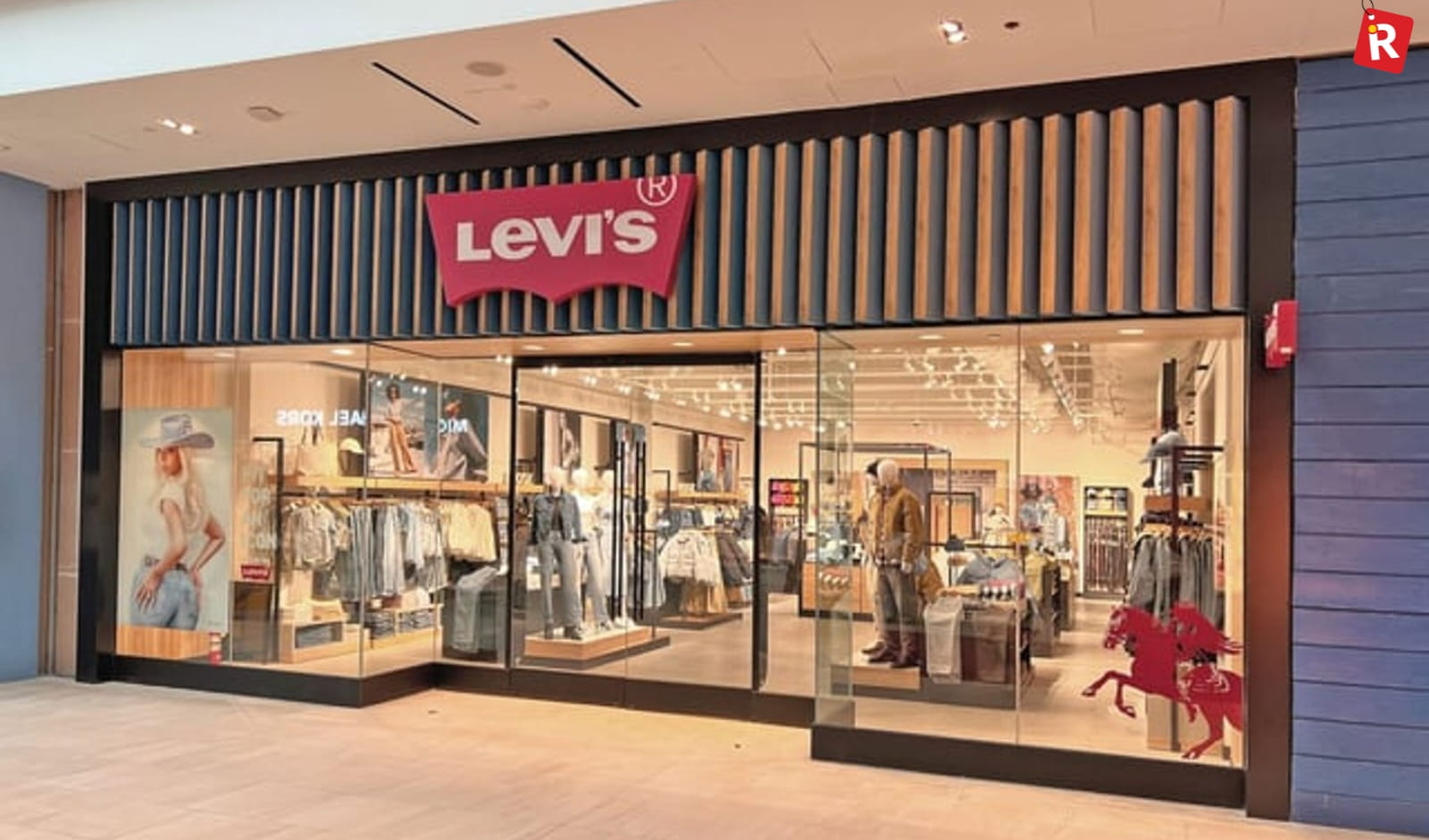
Levi’s doesn’t feel foreign in India—and that’s its biggest win. As one of the most recognisable american fashion brands, it has become a default choice for denim across age groups. Over time, Levi’s has expanded into casual tops, jackets, and lifestyle pieces that make it more than just a jeans label. Its India strategy balances physical stores with strong digital visibility, keeping the brand relevant without overexposure. Among US fashion brands in India, Levi’s feels settled—and that’s powerful.
2. Tommy Hilfiger

Tommy Hilfiger plays the aspiration game smartly. It sits in the premium bracket but doesn’t feel out of reach, which is why it works so well in urban India. As one of the more visible american luxury fashion brands, Tommy’s expansion leans heavily on flagship stores, mall dominance, and strong branding. Indian shoppers see it as polished but wearable—a balance many american fashion brands in India struggle to achieve.
3. Calvin Klein
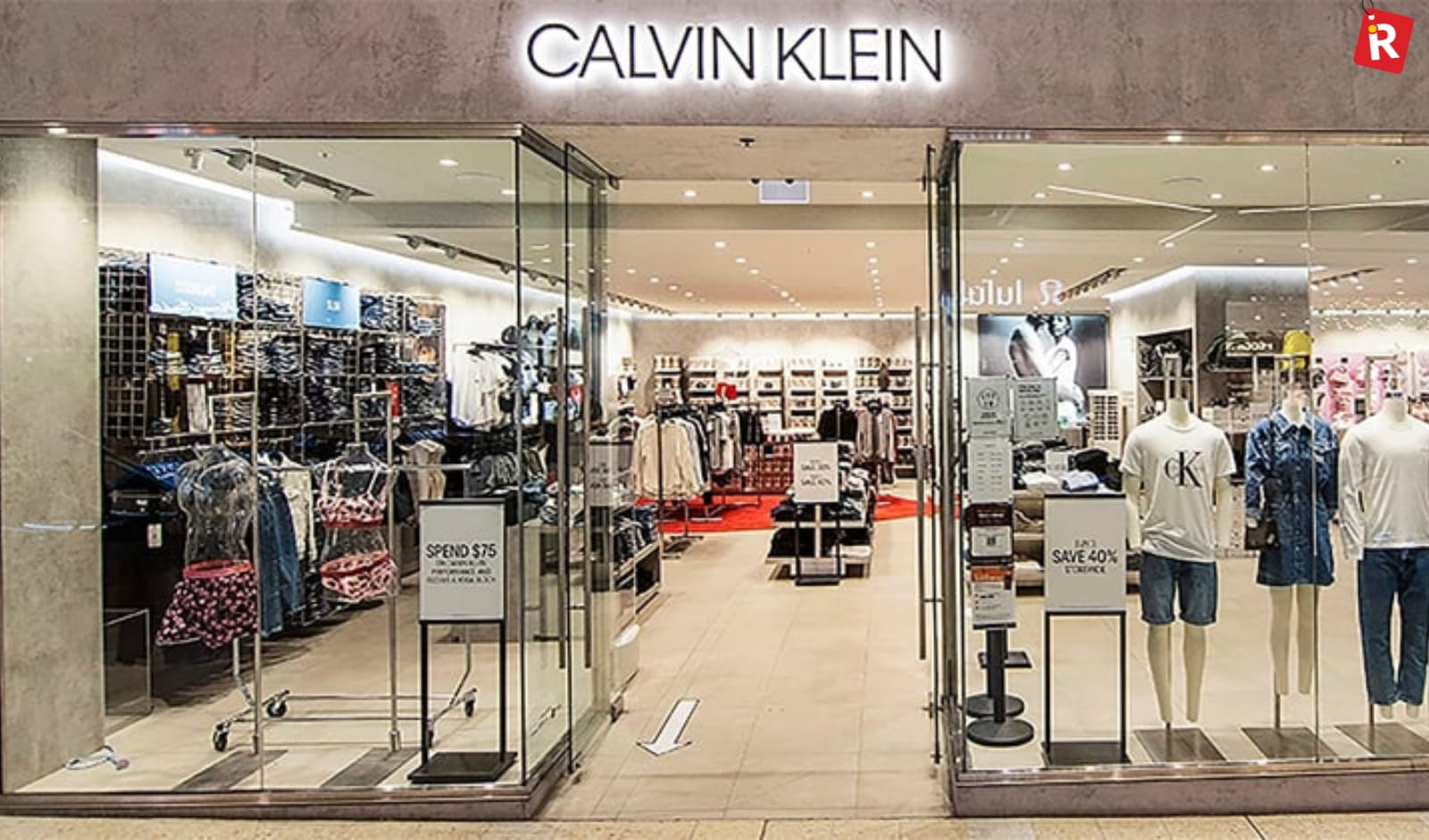
Calvin Klein’s growth tells you a lot about changing attitudes in India. Bold branding, minimal design, and strong innerwear sales have helped it connect with younger consumers. Online platforms play a big role in keeping Calvin Klein visible and relevant. Among US fashion brands in India, it benefits from being instantly recognisable without needing explanation—something that matters in a crowded retail market.
4. Gap
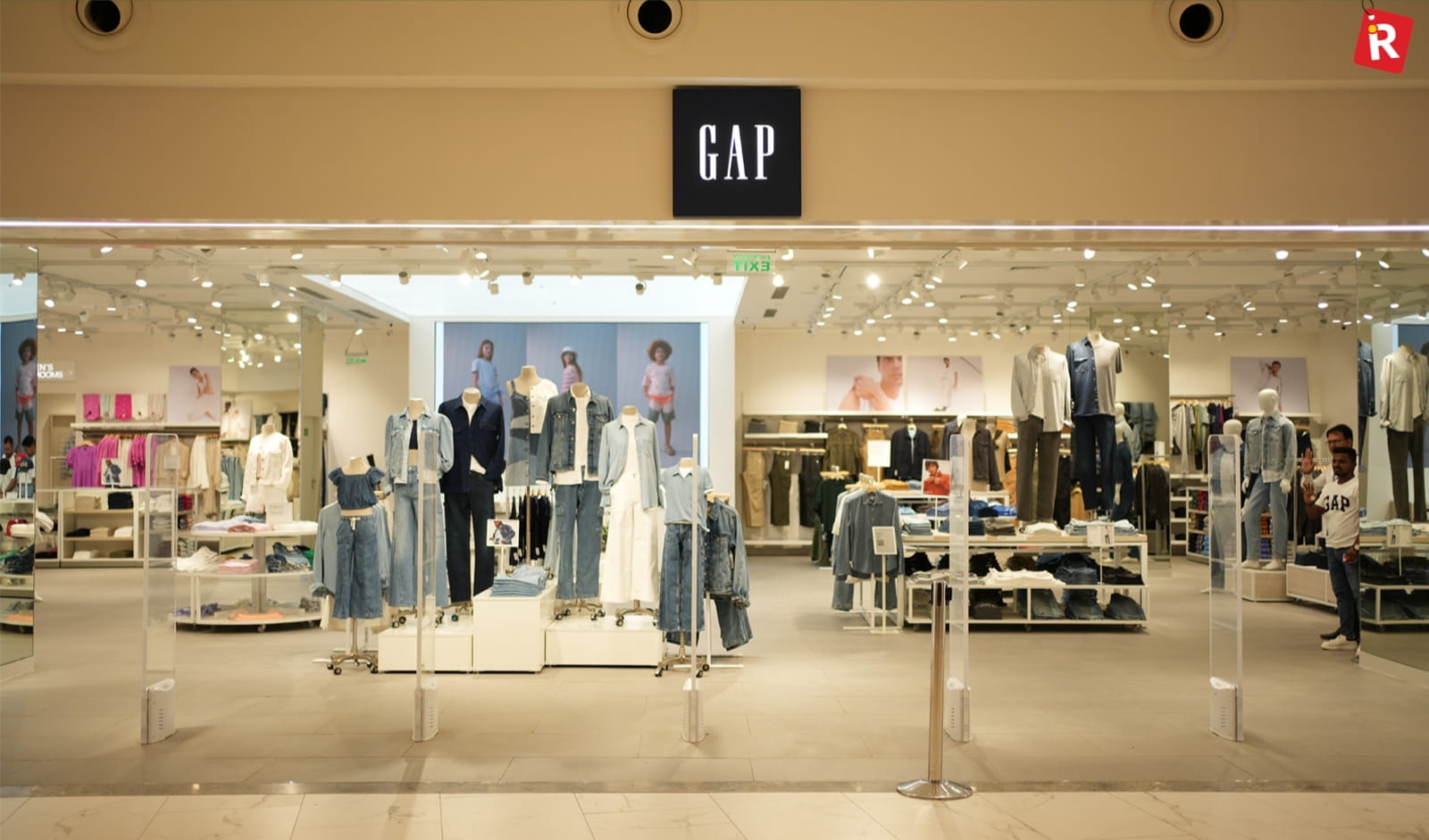
Gap isn’t chasing trends in India—and that’s intentional. Its focus is on everyday clothing that works across age groups and occasions. Clean designs, comfortable fits, and predictable quality make it appealing to families and working professionals. As American clothing brands expanding in India go, Gap is building scale quietly, leaning on omnichannel distribution rather than flashy launches.
5. Ralph Lauren

Ralph Lauren operates at a different pace in India. It’s selective, premium, and targeted at consumers who already understand the brand. As one of the more established american luxury fashion brands, it appeals to shoppers looking for understated global style. Its India presence may be smaller, but it’s deliberate—focusing on high-value customers rather than mass reach.
Read also Top 5 Fresh-Scented Gift Ideas That Make Every Valentine’s Date More Memorable
Top 5 Japanese Electronics Brands with Strong India Presence
Top 5 Dog Food Brands Trusted By Indian Pet Parents
Market Insight: What This Expansion Really Means
The push by american fashion brands signals a shift in how India shops. Consumers are settling into brands they trust and returning to them regularly. For american fashion brands in India, this isn’t about one good season—it’s about building long-term wardrobe relevance. As more spending moves toward everyday fashion, US fashion brands in India are positioned to benefit consistently.
Conclusion
The current wave of American fashion retail brands expanding in India feels different because it’s grounded in understanding, not experimentation. These brands know what Indian consumers want: comfort, quality, and familiarity. And Indian shoppers, in turn, are welcoming brands that make getting dressed simpler. That’s why american fashion brands aren’t just entering India—they’re settling in.
FAQs on Top American Fashion Brands in India
1. Why are American fashion brands growing faster in India now?
Because Indian consumers are buying more everyday fashion, where american fashion brands are strongest.
2. Which US fashion brands have the strongest presence in India?
Levi’s, Tommy Hilfiger, Calvin Klein, Gap, and Ralph Lauren lead among US fashion brands in India.
3. Are American luxury fashion brands relevant in India?
Yes, especially in metros, where american luxury fashion brands cater to premium lifestyle shoppers.
4. How are American fashion brands expanding in India?
Through local retail partnerships, omnichannel strategies, and city-focused expansion by american fashion brands in India.
5. Will more US fashion brands enter India soon?
Very likely. India remains one of the most attractive markets for American clothing brands expanding in India.
The month of February has long transcended its status as a mere page on the calendar to become a high-octane engine for the Indian retail economy. As we move through Valentine Week 2026, the Beauty and Personal Care (BPC) sector is witnessing an unprecedented transformation, fueled by a demographic that views self-care as the ultimate expression of love. According to recent industry reports, India’s beauty market is currently valued at approximately $31.19 billion, maintaining a robust compound annual growth rate (CAGR) of over 10 percent. During this seasonal peak, retail experts have noted that "gift-ready" categories—specifically premium fragrances and luxury skincare gift sets- are experiencing a sales velocity nearly 3.5 times higher than standard fiscal quarters.
This surge is not merely a byproduct of romantic gifting; it is a structural shift driven by the "Self-Love" and "Galentine’s" movements. Data indicates that Gen Z and Gen Alpha consumers now account for nearly 50 percent of total BPC spending, prioritizing intentionality over impulse. In 2026, quick-commerce platforms have emerged as the dominant force, with over 70 percent of beauty orders in metropolitan hubs like Mumbai, Delhi, and Bangalore being delivered in under 30 minutes. As the industry moves toward a projected $40 billion valuation by 2030, this year’s Valentine’s Day serves as a definitive litmus test for brands balancing high-tech omnichannel experiences with the growing demand for "clean" and "conscious" beauty.
The Evolution of Beauty Shopping Trends in India
The landscape of beauty shopping trends in India has shifted from basic utility to experiential luxury. While legacy players still hold significant ground, the rise of "masstige" brands, those offering luxury-quality formulations at accessible price points, is defining Valentine Week 2026. Consumers are no longer searching for generic "makeup"; they are hunting for specific "intelligent beauty" solutions like blue-light defense serums and pH-balancing lip tints. This shift is particularly visible during the days of valentine week, where each day, from Rose Day to the main event on February 14, triggers specific demand spikes for different product categories.
Discover the Top Beauty Brands Leading the 2026 Valentine Sales Surge
As a senior editor observing the global retail landscape, it is clear that the winners of Valentine Day 2026 are those who have successfully "humanized" their digital presence. Here are the leading beauty brands in India currently dominating the charts:
1. Nykaa (House of Nykaa)
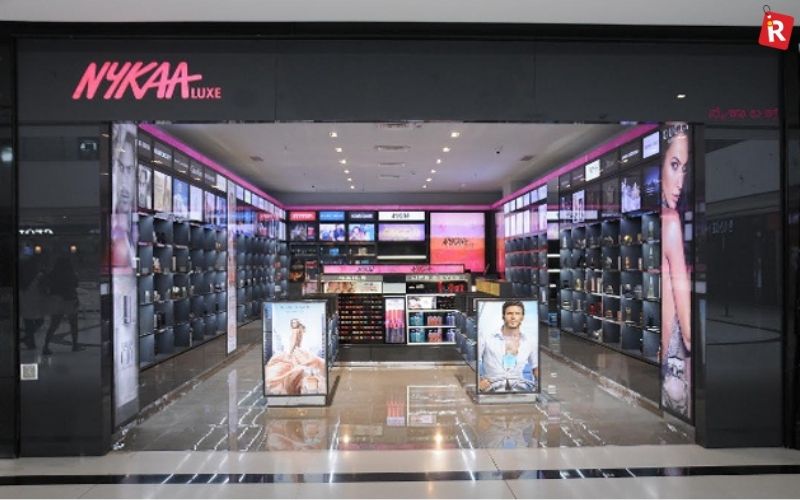
As the reigning champion of the Indian beauty e-commerce space, Nykaa continues to set the gold standard for beauty brands online and offline. For Valentine Week 2026, Nykaa has leveraged its "Luxe" segment to onboard global giants like Chanel and Armani Beauty, seeing a significant boost in Average Order Value (AOV). Their in-house brands, particularly Kay Beauty and Dot and Key, have reported a GMV growth of over 50 percent, driven by limited-edition Valentine bundles.
- USP: Curated luxury and a massive influencer-led discovery engine.
- Competitive Edge: A seamless omnichannel experience across 250+ physical stores and a high-speed app.
- Popular Products: Matte lipsticks, luxury fragrances, and professional-grade serums.
Read more: Top 5 Fresh-Scented Gift Ideas That Make Every Valentine’s Date More Memorable
Top 5 Japanese Electronics Brands with Strong India Presence
Best Beauty Brands to Check Out for Weddings
2. Tira (Reliance Retail)
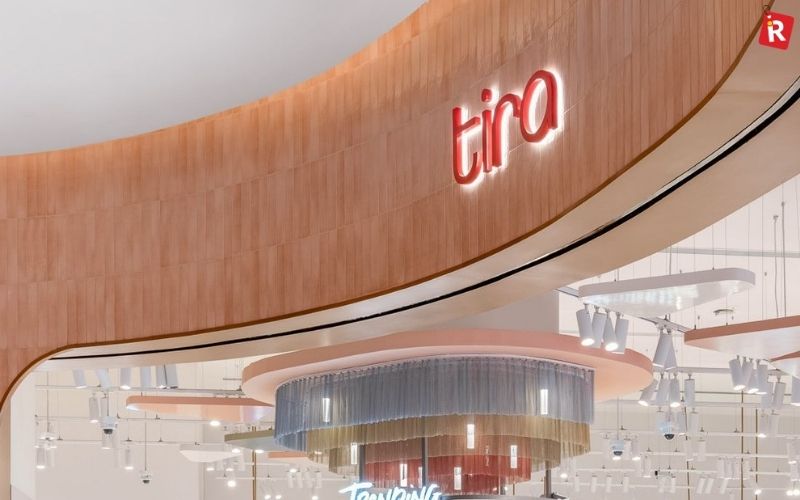
A relatively new but formidable titan, Reliance’s Tira has disrupted the market with its tech-forward approach. During Valentine Week 2026, Tira’s AI-powered "Virtual Try-On" and "Skin Analyzer" tools have seen a 2.5x increase in engagement, helping users pick the perfect shades for skincare and makeup trends. Their focus on exclusive international launches like Fenty Beauty has made them a destination for high-intent shoppers.
- USP: Cutting-edge retail technology and exclusive global brand partnerships.
- Competitive Edge: Integration with Reliance’s massive retail ecosystem and premium flagship store experiences.
- Popular Products: International makeup palettes and high-end skincare tech.
3. Minimalist

Leading the "Science-Led" movement, Minimalist has become a household name for those who value transparency. During this valentine day 2026, the brand has seen a massive uptick in "Couple’s Skincare" sets. By focusing on high-performance actives like Retinol and Salicylic Acid, they have captured the demographic that prefers practical, long-term skin health over temporary cosmetic fixes.
- USP: Clean, transparent, and highly effective active-based skincare.
- Competitive Edge: Strong consumer trust through clinical honesty and affordable pricing.
- Popular Products: Vitamin C serums, Sunscreen sticks, and Bond-repair hair treatments.
4. Mamaearth (Honasa Consumer)

A pioneer in the "Natural and Toxin-Free" segment, Mamaearth remains a favorite for beauty products for valentine week gifting. Their focus on traditional Indian ingredients like Ubtan and Onion, rebranded for the modern consumer, resonates deeply with Tier ll and Tier lll cities. In 2026, their expansion into color cosmetics with "nature-infused" ingredients has allowed them to tap into the makeup brands in India surge.
- USP: Purity, sustainability, and "Goodness Inside" brand philosophy.
- Competitive Edge: Deep penetration into non-metro markets and a strong "hero ingredient" strategy.
- Popular Products: Onion hair oil, Vitamin C face wash, and chemical-free lipsticks.
5. Plum Goodness
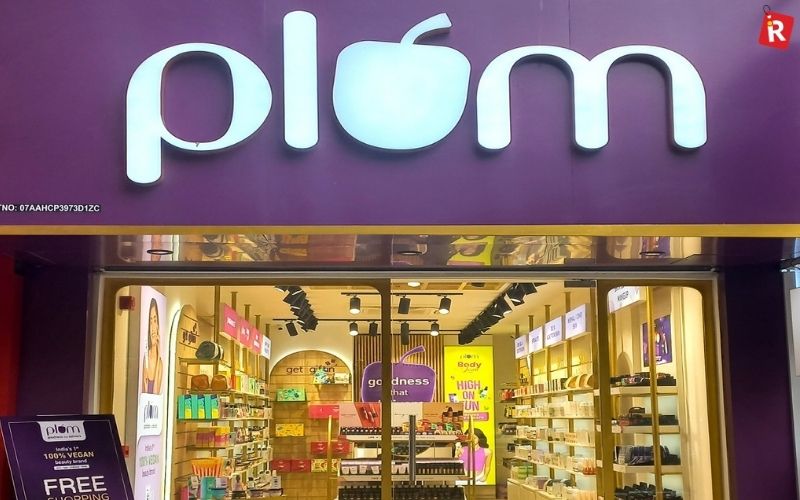
Plum has successfully pivoted from a D2C darling to a major player in beauty retail growth. Their "Self-Love" campaigns for february days valentine week 2026 have resonated with younger audiences. Being 100 percent vegan and cruelty-free, they are the go-to for the "Conscious Heart" movement, seeing a 30 percent rise in sales for their body care and fragrance mists.
- USP: Playful branding with a strict 100 percent vegan and cruelty-free mandate.
- Competitive Edge: Exceptional fragrance profiles and high-quality "fun" beauty.
- Popular Products: Green tea skincare range and Vanilla Vibes body mists.
6. Sugar Cosmetics
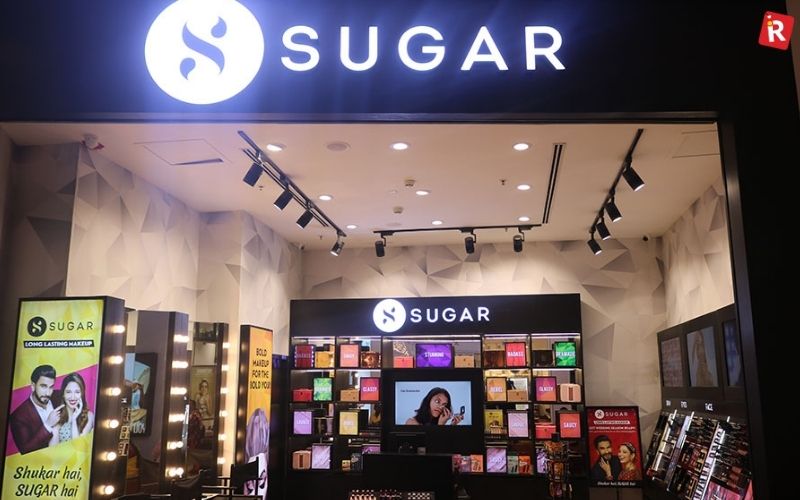
Sugar Cosmetics continues to dominate the "Bold and Expressive" makeup category. As the skincare and makeup trends valentine week shift toward 90s-inspired bold lips and saturated shadows, Sugar’s long-wear formulas are flying off the shelves. Their focus on the "modern Indian woman" and inclusive shade ranges has kept them at the top of popular beauty brands India lists.
- USP: Long-lasting, high-pigment makeup designed for Indian skin tones.
- Competitive Edge: Strong brand identity and high-impact visual marketing.
- Popular Products: Smudge Me Not liquid lipsticks and Ace Of Face foundation sticks.
Read also: Best Japanese Skincare Brands Indian Consumers Are Rapidly Switching To
How Retail Events Are Helping Retailers Tap into Global Trends
Best Skincare Brands Driving Valentine’s Day Sales in India
Why Beauty is the New "Love Language" of 2026
What distinguishes these top beauty brands from their global counterparts is their local agility. They understand that the Indian consumer during Valentine Week is looking for value, authenticity, and speed. The integration of beauty brands online and offline ensures that whether a customer is browsing a mall in Noida or ordering via a quick-commerce app in Chennai, the experience is consistent. As beauty retail sales surge, the focus is moving toward "Intelligent Beauty"—products that work as hard as the people wearing them.
What Shoppers Want to Know About Beauty Gifting This Valentine Week
Q1: Which beauty brands are most popular for Valentine’s Day gifting in 2026?
In 2026, Nykaa, Tira, and Forest Essentials lead the premium gifting segment, while Minimalist and Plum are the top choices for practical and "self-care" focused gifts.
Q2: What are the biggest skincare trends during Valentine's Week 2026?
The focus has shifted to "Skin-Streaming"—simplified routines featuring multi-functional products. High-demand items include "blurred finish" sunscreens and barrier-repair creams that provide a healthy "date night" glow.
Q3: Is online shopping more popular than offline for beauty products?
While e-commerce accounts for over 33 percent of the total BPC spend, the market is increasingly "omnichannel." Many consumers research trends online (Social Commerce) but prefer the "touch and feel" experience of flagship stores like Tira or Nykaa Luxe for high-value purchases.
Q4: How has quick commerce impacted Valentine's Week sales?
Quick commerce (delivery within 10-30 minutes) has revolutionized last-minute gifting. In 2026, it is the largest online format for beauty replenishment, especially for items like lipsticks and fragrances on the final days of the week.
Q5: Are Indian beauty brands better than international ones?
"Better" is subjective, but beauty brands in India currently have a competitive edge due to their specialized formulations for Indian weather and skin types, combined with more accessible pricing and faster local distribution.
India’s healthcare sector is undergoing a quiet but significant shift. A new report by Bessemer Venture Partners, titled Transforming Indian healthcare, one specialty at a time, shows that organised single-specialty healthcare providers are emerging as one of the fastest-growing segments of the industry. These focused healthcare platforms are expected to grow nearly threefold, reaching $12.3 billion by 2030, up from about $4.4 billion in 2025.
The report highlights that this segment is projected to grow at a 22 percent annual rate, more than double the pace of the overall healthcare provider market. This rapid growth is being driven by changing patient needs, more efficient operating models, and stronger economics compared to traditional hospital setups.
A Shift Away from Large Multi-Specialty Hospitals
India’s healthcare provider market is currently valued at around $54 billion and has largely been led by large multi-specialty hospitals. These hospitals continue to play an important role, especially in complex medical cases that require multiple specialists. However, alongside them, a new type of healthcare provider is expanding at a much faster pace.
Single-specialty providers focus on one area of care, such as dialysis, IVF, eyecare, oncology, or dental services. By concentrating on a single treatment area, these providers are able to standardise clinical processes, improve efficiency, and deliver consistent patient outcomes. Unlike large hospitals, they often follow asset-light expansion models, allowing them to scale quickly without heavy investments in infrastructure.
Purpose-Built Healthcare Platforms Gain Ground
The report highlights the rise of what it calls “specialty-native” healthcare platforms. These organisations are built from the ground up to serve one specific medical need, rather than being extensions of large hospital chains. This focused approach allows them to design their operations entirely around patient journeys for repeatable procedures.
This model also helps improve the patient experience. With doctors and staff dedicated to a single specialty, patients benefit from deeper expertise, smoother processes, and more predictable treatment outcomes. For services that require repeated visits, such as dialysis or fertility treatments, this consistency becomes especially important.
Faster Expansion and Better Financial Performance
One of the biggest advantages of single-specialty providers is their ability to scale efficiently. Many operate using hub-and-spoke models, where a central facility supports multiple smaller centres across cities. This enables rapid expansion across Tier I and Tier II cities while maintaining uniform standards of care.
Financially, these platforms are also showing strong performance. According to the report, many single-specialty providers achieve payback periods of 12 to 18 months and deliver EBITDA margins of over 20 percent. These figures are significantly better than those typically seen in large multi-specialty hospitals, making the model attractive to both founders and investors.
Bessemer’s Growing Focus on Specialty Healthcare
Bessemer Venture Partners has been actively investing in this space, backing companies that have successfully built scalable specialty care networks. These include NephroPlus, which operates dialysis centres across India and international markets such as Nepal, the Philippines, and Uzbekistan; Pluro, which focuses on IVF services; and Sukino, which operates across different stages of patient care.
These investments reflect Bessemer’s belief that focused healthcare platforms can combine strong clinical outcomes with operational discipline, creating sustainable and scalable businesses in a traditionally complex sector.
A Clear Opportunity to Build National Brands
Despite the strong growth, many specialty healthcare segments in India still lack well-known national brands. The report notes that this presents a significant opportunity for entrepreneurs to build category-leading platforms. Founders who consistently deliver strong patient outcomes, put robust systems in place, and scale through a mix of new centres and acquisitions of local clinics are likely to emerge as market leaders.
As these platforms grow, they could become strong candidates for public listings or attract interest from large healthcare groups looking to strengthen their presence in specific medical specialties.
The Next Phase of Indian Healthcare
“As this market races toward $12 billion, we expect the next generation of iconic Indian healthcare companies will be built one specialty at a time,” said Nithin Kaimal, Partner at Bessemer Venture Partners, India. He added that the most successful players will be those that combine deep clinical expertise with the ability to scale efficiently, improving access to quality healthcare while building long-term value.
With rising demand, improved business models, and increasing investor interest, single-specialty healthcare providers are set to play a much larger role in shaping the future of India’s healthcare system.
If you’ve spent time scrolling skincare content in India recently, you’ve probably seen one thing pop up again and again: Japanese skincare brands in India are trending hard. From gentle cleansers to thoughtful multi-step routines, Indian beauty lovers are increasingly turning to Japanese skincare products not because it’s a fad, but because the results actually show up — in texture, in glow, and in long-term skin health.
What’s interesting is how these brands tap into a philosophy rather than just sell products. There’s an emphasis on calming formulas, smart layering, and ingredients that work slowly, not shockingly. That appeals to Indian consumers who are tired of aggressive actives and want something that feels soothing and sensible.
And yes, these brands aren’t just sitting on shelves overseas — Japanese Skincare in India has grown thanks to e-commerce, expert reviews, and easy access to authentic products online. So whether you’re into daily hydration or a full Japanese skincare routine, you’ll find brands that feel like they get your skin.
Why Indian Consumers Love Japanese Skincare So Much
There’s a reason Japanese beauty brands are no longer niche here. They focus on fundamentals: hydration first, gentle exfoliation second, and long-term texture improvement rather than quick fixes. That resonates with people who are tired of peeling acids and irritating fragrance-heavy products. Instead of flash-in-the-pan results, Japanese skincare brands emphasise thoughtful science and tradition, and that’s translating into loyalty.
Plus, with Japanese skincare products online becoming easier to find, Indian shoppers are experimenting more, comparing ingredients more closely, and picking what works best for them rather than what’s trending.
What Makes Japanese Skincare Different
If you’ve ever done a proper Japanese skincare routine, you’ll notice it doesn’t skip the basics. It’s not about slapping on a serum and calling it a day. It’s about cleansing without stripping, layering hydration, and protecting skin with SPF every day. The idea is less “quick fix” and more “skin checks out even when you skip makeup.”
That rigour explains why Japanese skin care products in India are gaining ground — they feel respectful of the skin’s natural processes rather than trying to overpower them.
Read also Best Skincare Brands Driving Valentine’s Day Sales in India
Top 5 Fresh-Scented Gift Ideas That Make Every Valentine’s Date More Memorable
Top 5 Japanese Electronics Brands with Strong India Presence
Best Japanese Skincare Brands Indian Consumers Are Rapidly Switching To
1. Shiseido

Shiseido is practically shorthand for Japanese beauty brands that do it right. With a legacy that blends elegant formulations and cutting-edge research, Shiseido’s range works across skin needs and ages. Its UV protection products are widely loved in India — which makes sense in a country where sun exposure is a year-round concern. Beyond SPF, their serums and moisturisers are designed to balance hydration and firmness without feeling heavy. Indian consumers frequently repurchase Shiseido because it manages to feel both luxurious and practical — no wonder it ranks among the best Japanese skincare brands people talk about.
2. SK-II

SK-II feels like skincare with a personality. It’s the brand people think of immediately when someone mentions Japanese skincare brands that target clarity and glow. The star ingredient, Pitera™, is famous for smoothing texture and brightening dullness, and that’s exactly what Indian shoppers are after these days. Many people start with the Facial Treatment Essence and stick with it because they actually see changes in tone and radiance. Yes, it’s premium — but for many, it’s earned its place in their routine because it delivers the kind of texture refinement that Instagram filters only dream of.
3. Hada Labo

If you want a no-nonsense introduction to Japanese Skincare in India, Hada Labo is a great starting point. The brand’s focus on hydration makes it super appealing for Indian skin types that swing between dull and dry in winter and oily in summer. Its Gokujyun Hyaluronic Acid range has cult status online because it’s fuss-free, fragrance-free, and actually locks in moisture like it promises. Indian buyers love picking up these products online because they feel light yet intensely hydrating — a rare combo. For people new to Japanese skincare products online, Hada Labo often becomes a repeat buy.
Read more: Top 5 Dog Food Brands Trusted By Indian Pet Parents
Best Beauty Brands to Check Out for Weddings
Best Fragrance Brands In India Popular among Gen Z
4. DHC

DHC is the brand that wins loyal fans fast. Its Deep Cleansing Oil, in particular, has a reputation that precedes it — a gentle makeup remover that leaves skin soft, not stripped. Indian consumers with combination or sensitised skin often recommend DHC because it feels respectful of the skin barrier. Beyond the cleansing oil, the brand’s serums and moisturisers are thoughtful and easy to layer. That balance of efficiency and gentleness is exactly why DHC earns mentions whenever people discuss top Japanese skincare brands in India.
5. Cure

Cure might not be as ubiquitous as some others on this list, but for people who swear by minimal yet effective care, it’s unbeatable. Its Original Pure Water Gel is simplicity personified — with skin-soothing hydration that doesn’t irritate or overwhelm. That appeals to buyers who are done with complicated routines and just want something that works, especially after cleansing. Indian skincare enthusiasts increasingly turn to Cure when they want a lightweight formula that respects the skin’s natural state. For those who appreciate understated yet effective Japanese skincare brands, Cure is a top pick.
Market Insight: What’s Fueling the Japanese Skincare Surge in India
It’s not random hype. Two things are driving demand: accessibility and education. More Indian shoppers are discovering Japanese skincare products online, reading ingredient breakdowns, and comparing results rather than impulse-buying. That makes Japanese brands, which often explain why each step matters, feel far more relatable.
Secondly, routine culture has taken off in India. People now think of skincare as something you practice not just dab on. Japanese routines align with that — they’re methodical without being intimidating. That’s why even multi-step regimens feel achievable, especially when brands make their products easy to shop and learn about online.
Know more: Best 5 Sportswear Brands In India Competing Globally
Top Online Jewellery Brands Winning India’s E-commerce Market
Top 5 Paint Brands in India Homeowners Prefer in 2026
Conclusion: Japanese Skincare Isn’t Just Trendy — It’s Practical
Indian consumers aren’t switching to Japanese skincare brands because they look cool online — they’re switching because these products actually work in real life. Whether it’s soaking up humidity without greasiness, layering hydration without heaviness, or protecting skin from the sun without chalkiness, Japanese formulas fit Indian realities in ways many popular products don’t.
That’s why Japanese skincare in India has moved from niche obsession to mainstream consideration. And honestly, it feels like a shift worth paying attention to.
FAQs on Best Japanese Skincare Brands in India
1. Are Japanese skincare brands in India easy to find offline?
Mostly online, though some premium and multi-brand stores now stock them too.
2. Is the Japanese skincare routine different from a Western one?
Yes — it’s more about layering gentle hydration and protection than skipping straight to actives.
3. Do these products suit Indian weather?
Many do, especially hydrating and lightweight formulas that don’t feel heavy or greasy.
4. Are Japanese skincare products safe for sensitive skin?
Mostly yes — a lot of brands focus on gentle, fragrance-free formulations.
5. Should beginners start with a full routine or one product at a time?
Starting with one well-loved product (like a hydrating lotion or serum) often works best before building a routine.
The global retail landscape has moved beyond the era of simple disruption. The industry is now in a "permanent transition," where the velocity of change is the only constant. As consumer behaviors shift at dizzying speeds and technologies like agentic AI move from whiteboards to shopfronts, the challenge for retail leaders is no longer about keeping pace—it is about anticipating the next horizon. In this volatile environment, global retail events have evolved from mere marketplaces into indispensable strategic tools for the C-suite. They are the "magic" that illuminates the way forward, serving as the critical intersection where global innovation meets local execution, where individual purchase behaviors shape the global industry value chains.
The Intelligence Revolution
One cannot discuss the future of retail without addressing the technological elephant in the room: Artificial Intelligence. However, the conversation in the boardroom has shifted from general "digital transformation" to specific, measurable outcomes. The industry is facing a pressure cooker of expectations; recent data indicates that 63% of exhibitors are now demanding better performance metrics to justify their investments.
This is where the trend of agentic AI—systems that autonomously execute complex goals—becomes critical. Retailers are no longer looking for simple chat interfaces; they need intelligent agents that can drive operations. Global events have become the live testing ground for this technology. By deploying multi-agent AI systems, professional organizers are demonstrating real-time ROI, with some platforms experiencing a 44% year-over-year increase in in-person meetings through AI-driven matchmaking. For a retail leader, attending these events is a masterclass in efficiency, an opportunity to step out of the boardroom and embrace the on-ground vibrancy. It offers a front-row seat to see how autonomous agents can be applied to supply chains and customer interfaces, moving beyond the "trial and error" phase to implement proven strategies that resonate both on a local and global scale.
The "Neuro-Immersive" Reality
A profound shift in the sector is "customer experience imperative," a concept essential for the "next normal" in retail. The digital pivot during recent global crisis was inevitable, but it created a new challenge: distinguishing a brand in a crowded digital space and connecting with the new generation of purchasers. The answer lies in the "experiential retail" model, rooted in neuro behaviors and immersive experiences to trigger sub-conscious buying decisions in the modern retail consumer’s mind.
For the C-suite, retail events are the testing ground for these concepts. Seeing a pop-up strategy in action at a global forum provides a tactile understanding that a white paper cannot convey. It allows leaders to see how conventional physical market spaces are being reimagined to foster community, customer loyalty, and modern buying behaviors. Furthermore, professional events themselves are evolving into experiential platforms, creating "immersive, impactful experiences" that mirror the very strategies retailers must adopt to survive.
Bridging the Local and the Global: The MSME Network
A significant portion of the global retail engine is driven by Micro, Small, and Medium Enterprises (MSMEs). However, for an MSME to survive in the current climate, it must think globally. As industry thought leaders have noted, the modern mandate is to help MSMEs "develop a global trade network."
This is where the scale of professional events becomes a strategic asset. With major organizers hosting more than 350 events across twenty-five nations, these platforms serve as a bridge for local businesses to access international markets. In high-growth markets, the retail sector is a powerhouse, but for local players to tap into a global trend, they need this connectivity. Professional exhibition organizers provide the infrastructure—data-driven matchmaking, logistical precision, and global reach—that enables smaller players to sit at the same table as global trendsetters cross-pollinating global retail manufacturing and local market purchases.
The Strategic Value of Professional Organization
There is a distinct difference between attending a gathering and leveraging a world class industry event. This distinction is a strategic decision for any C-suite leader. Modern Industry exhibitions bring a level of quality buyers and experiential scale that maximizes Return on Time and efforts (ROTE).
In a world where executive time is a precious commodity, retail events must be "high-velocity environments" for business growth. Mega events manage every detail with expertise, from finding the perfect location to managing quality of networking forums. They supply the "creative and innovative ideas" that invigorate the event, guaranteeing a brand's visibility and impact. Furthermore, by combining face-to-face interactions with robust digital solutions, these events provide data-driven insights that maximize business generation, moving beyond business cards to precise data analytics.
As the industry looks toward the future, the mandate for retail leaders is clear: look outward to grow inward. Today's global trends, such as the efficiency of Agentic AI, the " Neuro-Immersive " experiential imperative, and the globalization of trade networks, are creating a unified and yet diverse consumer behavior across the global marketplace.
Retail events are the only platforms where these behaviors and marketplaces intersect, allowing leaders to navigate them with confidence. By participating in these global forums, executives do more than just network; they participate in the collective intelligence of the industry. They witness the "magic" of what happens when diverse minds meet to solve the common challenge of the modern consumer. These gatherings are intended to serve the retail industry's mission: "Building Sustainable Businesses That Allow People communities to thrive.". By leveraging the collective global insights found at these events, retail industry executives can ensure that they are not just responding to current trends but are also creating them.
Authored by:

Umang Gupta, Country Head, India at RELX-RX.
By 2026, the biggest operational risk for consumer brands will not be pricing pressure. It will be operating with disconnected information. Today, manufacturers use estimates of secondary sales to plan production. Retailers take part in schemes without knowing when they will be able to verify them or get paid. When people buy things, they don't have a lot of ways to check if the item is real or worth more than the label. Even though each stakeholder is acting rationally, the system as a whole is still not working well. These gaps are already visible on the ground, and they are getting harder to ignore.
It is possible to put a price on this disconnection. In 2023, fake goods alone cost the world more than $323 billion, mostly because it's hard to trace products across broken supply chains as per Global Brand Counterfeiting Report. In India’s general trade environment, the impact is amplified by scale, manual processes, and limited real-time visibility.
This is why the future is moving toward a single digital loop, where all of the data for manufacturing, retail, and customer engagement is on the same live data layer.
The Transaction Is Becoming the System
In the past, a sale meant the end of a process. In the new model, it becomes the beginning.
Most of the time, QR-based systems give each product unit a digital identity. When scanned, that identity shows where the product came from, proves authenticity, and records when and where it was sold. More than 70 percent of leading consumer goods companies already use QR-based traceability to improve safety, visibility, and operational reliability, signalling a shift away from retrospective audits toward real-time validation, according to industry supply chain studies.
Yet in most cases, this capability is still not fully utilised. The QR code is treated largely as a compliance or authentication layer, and the data it generates often remains siloed. What is missed is the opportunity to use the same scan to create value beyond verification. When integrated with loyalty, digital warranties, and channel incentives, QR interactions can confirm genuine sales, trigger instant retailer rewards, enable post-purchase consumer engagement, and feed first-party data back into the system for better demand planning and engagement design. Used this way, QR moves from being a static traceability tool to an active driver of trust, participation, and repeat behaviour across the value chain.
This means that manufacturers make decisions about production and distribution based on confirmed movement, not speculation. For stores, every scan confirms a real sale and automatically changes the eligibility for incentives. For consumers, the same scan gives proof and gets them involved right away.
Operational Certainty Builds Retailer Trust
Shoppers don't stop participating in loyalty programs because they aren't interested. They stop when the effort is greater than the clarity. In a lot of traditional trade systems, verification happens at the end, disputes happen a lot, and settlements take a long time. Over time, stores put more value on brands that have clear and predictable results.
Scan-led validation changes this situation by making both verification and incentivisation real time. A scan instantly confirms the sale, automatically tracks performance, and triggers rewards on a defined schedule. Paperwork and follow-up calls are eliminated, replaced by live visibility into progress and payouts. In FMCG trade programs, this operational ease has become a key reason retailers continue to prioritise some brands over others.
By 2026, retailers won't be able to keep customers by making them want to buy things or sending them messages. It will be driven by systems that work well with everyday tasks.
Retailers Are Closing the Feedback Loop
Most loyalty programs haven't kept up with how quickly people change their behavior. It's easy to switch brands, and it's becoming more common in all kinds of products, from food to personal care.
It's not a promise of points in the future that makes shoppers buy again; it's being recognized right away when they buy. This is possible because QR-based engagement keeps the brand in the customer's mind while they are still thinking about buying.
First-party data from these interactions shows how people actually buy things over time. It lets brands connect with people based on how relevant they are, not how often they see them. In QR-led beverage campaigns, repeat scanners were more likely to get rewards. This clear link between behavior and outcome made both redemption and engagement better.
Shoppers will expect this to keep happening by 2026. They will think that brands know who they are when they buy something, not weeks later through generic reminders.
Incentives Will Matter Less Than Habits
Shoppers don't often change brands because of how they feel. They switch because it's easier and they think it's worth it.
The best loyalty programs are the ones that get people to make habits. Buy, scan, earn, and do it again. When this pattern becomes normal, switching seems pointless.
When QR-led engagements reward frequent purchases, categories like dairy and other daily essentials naturally see faster repeat restocking. The rewards may not be big, but they are chosen by the consumer, personal, immediate, and tied to everyday habits. Over time, that repeated recognition nudges people toward the same brand again and again. Loyalty here isn’t deliberate or planned. It’s behavioural.
One Loop, Shared Knowledge
Every scan collects information about the time, place, and frequency. When this data is put together across the value chain, it lets brands go from making changes in response to problems to making decisions ahead of time. Planning for inventory gets better. Risks of diversion show up sooner. You can improve loyalty mechanics by having people participate live.
This is where AI comes in; it doesn't replace relationships, but it does make them more reliable. The same intelligence helps manufacturers, retailers, and consumers because they all use the same verified data.
Brands that close this loop will see growth by 2026. Not by making campaigns louder or giving bigger discounts, but by using systems that link production, sale, and consumption in real time.
In the busy and time-sensitive Indian market, using one digital loop is no longer a choice of technology. It is the basis for trust, efficiency, and longevity.
Authored By
Ayush Jhawar, Founder and CEO of Genefied
Valentine’s Day 2026 doesn’t look like it used to. The big bouquets and over-the-top hampers are slowly being replaced by gifts that actually get used. That’s where skincare has stepped in quietly and taken over. It’s personal without being awkward, thoughtful without trying too hard, and practical in a way that still feels special.
Skincare for Valentine’s Day works because it slips into everyday life. A cleanser used every morning or a cream applied before bed ends up meaning more than something that lasts one evening. That’s why skincare gift brands are seeing stronger traction this season — people want gifts that stick around.
Why Skincare Feels Like the Safest Valentine’s Bet Right Now
Gifting has become less about surprise and more about intention. Nobody wants to give something that feels random anymore. Skincare solves that problem neatly. It’s useful, comforting, and doesn’t require guessing someone’s size, taste, or style.
There’s also far more awareness today. Buyers know their ingredients. They read labels. They look for the best skincare products that match real skin concerns. That shift has helped both new skincare brands and established skin care brands build stronger emotional connections with shoppers.
Valentine’s Day 2026 Is All About Daily Self-Care
This year’s Valentine’s Day is softer. Less performative. More about everyday rituals. Skincare gifting ideas now focus on routines that feel easy to follow rather than elaborate sets that sit unused.
People are choosing products that feel good on the skin and fit naturally into daily life. That’s why popular skincare brands offering simple, effective solutions are seeing repeat gifting. It’s not about luxury alone — it’s about comfort and consistency.
Why Indian Skincare Brands Are Winning Valentine’s Gifting
Indian shoppers are more confident in homegrown brands than ever before. Familiar ingredients, transparent formulations, and consistent results matter a lot. That trust is helping top skincare brands in India perform strongly during Valentine’s Day.
At the same time, premium skincare brands are also finding their audience. Some buyers want indulgence, others want reliability — and both are being served. Whether it’s luxury skincare brands or best Indian skincare brands, what matters most is whether the product feels honest and usable.
Best Skincare Brands Driving Valentine’s Day Sales in India
1. Oriflame

Oriflame works well for Valentine’s gifting because it keeps skincare uncomplicated. The Opt Optimals Even Out Light Routine is built for people who want results without cluttering their shelves. Designed for oily and combination skin, the routine focuses on gentle cleansing, light hydration, and everyday sun protection. Ingredients like niacinamide and Rainbow Algae Extract help even out skin tone, while glycolic acid supports surface renewal without feeling aggressive. As a gift, Oriflame feels thoughtful and practical — something your partner will actually finish, not forget.
Read more: Top 5 Fresh-Scented Gift Ideas That Make Every Valentine’s Date More Memorable
Best Beauty Brands to Check Out for Weddings
Best Fragrance Brands In India Popular among Gen Z
Top Ankle Boot Brands for Women in India Defining Modern Footwear
2. Plum

Plum has become one of those brands people instinctively trust. It doesn’t overpromise and doesn’t complicate things. From moisturisers to glow-focused serums, Plum products fit easily into daily routines. As a Valentine’s gift, Plum feels safe in the best way — familiar, effective, and easy to love. That’s why it continues to rank among popular skincare brands during gifting seasons.
3. Minimalist

Minimalist appeals to people who like knowing exactly what they’re putting on their skin. Clear labels, focused formulations, and no unnecessary extras. That transparency makes it a strong pick among premium skincare brands for Valentine’s Day. Gifting Minimalist feels intentional — like you’ve actually thought about skin needs instead of just picking something pretty.
4. Forest Essentials

Forest Essentials is where skincare turns into a ritual. Rich textures, calming fragrances, and Ayurvedic roots make the brand feel indulgent without being flashy. As a Valentine’s gift, it signals care and effort. It’s the kind of product someone looks forward to using at the end of a long day. Among luxury skincare brands, Forest Essentials continues to hold strong emotional appeal.
5. Mamaearth

Mamaearth remains popular because it feels familiar and dependable. Its products are easy to use, gentle, and designed for everyday skin concerns. That reliability makes it an easy gifting choice when you don’t want to overthink things. It’s one of those skin care brands that fits seamlessly into daily routines, which is exactly why it performs well around Valentine’s Day.
Read also Top 5 Hand Cream Brands in India Preferred for Dry and Sensitive Skin
Best 5 Vitamin C Face Wash Brands in India for Brightening and Even Skin Tone
Top Eye Cream Brands in India Trusted for Dark Circles and Puffiness
Top 5 Luxury Brands for Men in India Defining Premium Lifestyle Trends
Market Insight: Why Skincare Keeps Outselling Traditional Valentine’s Gifts
Skincare is winning because it makes sense. Consumers are choosing gifts that last beyond the occasion and actually get used. Products that combine comfort, care, and visible results are outperforming novelty items. From simple routines to premium skincare brands, shoppers are clearly leaning toward gifts that feel personal and practical. As skincare becomes a daily habit rather than an occasional indulgence, its role in seasonal gifting is only growing stronger.
Skincare Is How Valentine’s Day Feels More Personal Now
Valentine’s Day doesn’t have to be loud to be meaningful. Sometimes the best gifts are the ones that quietly become part of someone’s day. Skincare does exactly that. It shows care without pressure and thoughtfulness without excess. With more brands offering easy routines and reliable formulations, skincare gifting has moved from trend to default — and it doesn’t look like it’s going anywhere.
FAQs on Best Skincare Brands in India
1. Why is skincare such a popular Valentine’s Day gift now?
Because it feels personal, useful, and stays relevant long after the day is over.
2. Are skincare routines better gifts than single products?
Yes. Routines feel more intentional and easier to stick to.
3. Do luxury skincare brands perform better during Valentine’s Day?
They do well, but everyday brands perform just as strongly depending on the buyer.
4. Are Indian skincare brands trusted for gifting?
Very much so. Many best Indian skincare brands now enjoy strong consumer loyalty.
5. How do I choose the right skincare gift?
Stick to simple routines, known brands, and products meant for daily use.
Valentine’s Day gifting isn’t what it used to be—and honestly, that’s a good thing. Chocolates disappear in a day, flowers wilt by the weekend, but a good fragrance? That sticks around. More couples are leaning toward scent-led gifts because they feel personal, wearable, and surprisingly intimate. It’s the kind of gift that doesn’t scream romance but quietly delivers it.
What makes fragrance such a strong Valentine’s pick is how emotional it is. One whiff can bring back a memory, spark attraction, or instantly set the mood without trying too hard. And with Indian beauty and wellness brands experimenting beyond classic perfumes, there’s a lot more on the table now—think whole-body freshness, hair scents, and mists you can reapply all day.
Fresh fragrances aren’t about being loud. They’re about feeling confident, comfortable, and close. Whether it’s a subtle body cream or a playful perfume that lasts through dinner and dessert, scent has become the easiest way to make a date feel memorable. Here are a few brands that are getting Valentine’s gifting just right this season.
Why Fresh Fragrances Are Becoming Valentine’s Day Favourites
Heavy, overpowering perfumes are slowly losing their charm. What people actually want now are scents that feel close—clean, playful, and easy to wear for hours. Fresh fragrances fit perfectly into long dates, café hopping, and late-night conversations without announcing themselves every time you move.
They’re the kind of scents someone notices only when they lean in—and that’s exactly the point.
From Skin to Hair, Fragrance Is No Longer One-Dimensional
Perfume has officially stepped off the pulse points. Today, fragrance shows up as whole-body deodorants, hair perfumes, and lightweight mists you can layer without overthinking it. This shift has made gifting a lot more interesting. Instead of one intense bottle, you’re gifting an experience that fits into everyday routines.
And that makes it feel thoughtful rather than predictable.
Why Brand Stories Matter More Than Ever in Gifting
Valentine’s gifts aren’t last-minute picks anymore. People care about how something feels on the skin, how long it lasts, and whether it actually fits into real life. Brands that mix fragrance with comfort, skin care, and versatility are the ones winning hearts. Because a good gift isn’t just about scent—it’s about how it makes someone feel all day.
Read also Best Fragrance Brands In India Popular among Gen Z
Top Online Jewellery Brands Winning India’s E-commerce Market
Top Ankle Boot Brands for Women in India Defining Modern Footwear
Top 5 Fresh-Scented Gift Ideas That Make Every Valentine’s Date More Memorable
1. imfresh

imfresh Cream (Heart Rush) is India's first whole-body deodorant cream, designed to offer comprehensive freshness and care. It delivers long-lasting odour control by effectively eliminating and blocking odour-causing bacteria, keeping you confident throughout the day. Beyond freshness, the cream helps brighten underarms while soothing and nourishing the skin, making it suitable for daily use. Formulated with natural, safe, and effective ingredients, it is gentle yet powerful on sensitive areas. The refreshing and soothing fragrance adds an uplifting touch, ensuring all-day comfort, skin wellness, and a clean, confident feel from head to toe.
2. Insight Cosmetics

Insight Cosmetics makes gifting easy for people who don’t like committing to just one scent. Its Eau De Perfume combos offer multiple fragrance moods in one box—fresh, expressive, and wearable across different moments. Whether it’s a daytime coffee date or an evening plan that runs late, these perfumes adapt without feeling overpowering. The real appeal lies in choice. For couples who enjoy experimenting or sharing fragrances, Insight feels like a fun, flexible Valentine’s pick that doesn’t take itself too seriously.
3. Plum BodyLovin’

Plum BodyLovin’ has clearly understood the Valentine’s mood this year. Juice or Dare Eau De Parfum is bold, playful, and made for people who want their fragrance to be noticed—just not forgotten. It’s juicy, vibrant, and lasts long enough to carry you from dinner plans to late-night conversations. What works is how effortlessly it moves from daytime flirtiness to after-dark confidence. Juice or Dare feels fun but grown-up, making it a solid choice for anyone who likes their Valentine’s scent to leave a lasting impression.
4. Nykaa Wanderlust

Nykaa’s Wanderlust range is all about storytelling, and the Dreaming of Paris mist fits right into that vibe. With fruity notes of champagne and berries, it feels light, cheerful, and easy to love. Designed for both body and hair, it’s perfect for quick touch-ups throughout the day. This is the kind of fragrance that suits spontaneous plans—brunch that turns into a walk, which turns into dinner. As a Valentine’s gift, it feels carefree, modern, and very now.
5. Bella Vita Luxury
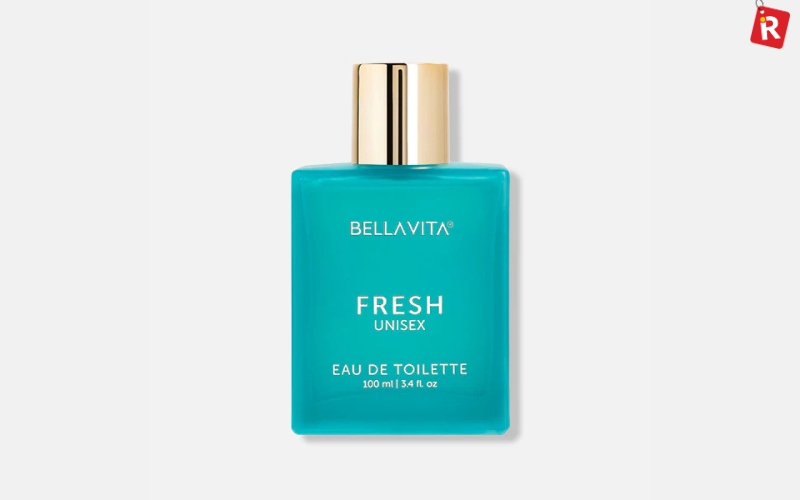
Bella Vita Luxury’s DATE Woman perfume keeps things romantic without going overboard. It opens with lively fruity and spicy notes, settles into soft florals, and finishes with a warm, musky base that lingers gently. The fragrance unfolds slowly, making it ideal for evenings that don’t need rushing. As a Valentine’s gift, DATE Woman feels intentional—designed for closeness, long conversations, and moments that stretch comfortably into the night.
Read more: Top 5 Japanese Electronics Brands with Strong India Presence
Top 5 Dog Food Brands Trusted By Indian Pet Parents
Best Beauty Brands to Check Out for Weddings
Market Insight: Why Fragrance-Led Gifting Is Booming
Fragrance has quietly become one of the most reliable Valentine’s Day gifting categories. Shoppers are gravitating toward products that feel personal, functional, and easy to use beyond special occasions. Hybrid formats—like body creams, hair perfumes, and multi-use mists—are seeing stronger interest than traditional perfumes alone. The shift points to a larger trend: people want gifts that create experiences, not just make statements.
Conclusion: When a Gift Smells Like a Memory
Valentine’s Day isn’t about grand gestures anymore. It’s about small, thoughtful choices that feel real. Fresh-scented gifts fit naturally into that space. They’re personal, wearable, and quietly memorable—the kind of gift that becomes part of someone’s everyday life. With brands pushing boundaries in fragrance formats and storytelling, scent has become one of the most meaningful ways to say, “I was thinking of you.”
FAQs: Top Fresh-Scented Gift Ideas on Valentine's Date
1. Why do fresh fragrances work better for Valentine’s Day dates?
Because they feel intimate and easy to wear, especially during long dates where closeness matters more than drama.
2. Are body and hair fragrances actually good gifts?
Absolutely. They feel more personal and are often easier to use daily than traditional perfumes.
3. Do fragrance combos make sense as Valentine’s gifts?
Yes, especially for someone who likes switching scents based on mood, outfit, or time of day.
4. Are wellness-focused fragrance products trending?
Very much so. Products that balance scent with skin comfort are becoming gifting favourites.
5. What really makes a fragrance gift memorable?
A scent that feels comfortable, lasts gently, and becomes part of everyday moments—not just special ones.
Japanese electronics brands have played a pivotal role in shaping India’s consumer electronics market for over four decades. From colour televisions and audio systems in the 1980s to today’s smart appliances, imaging products, and industrial electronics, Japanese companies have consistently influenced how Indian households adopt technology.
India’s electronics market was valued at over $155 billion in 2024 and is projected to cross $300 billion by 2030, driven by rising incomes, urbanisation, and policy-led manufacturing growth. Consumer electronics and appliances account for nearly 35 percent of this market, with televisions, refrigerators, air conditioners, and smartphones forming the core demand categories. Japanese electronic brands in India continue to hold strong positions across these segments due to their focus on product durability, engineering reliability, and long-term after-sales support.
As competition intensifies from Korean and Chinese manufacturers, the best Japanese electronic brands have adapted by expanding local manufacturing, strengthening retail distribution, and tailoring products for Indian usage conditions. Today, Japanese electronic companies operate across mass, premium, and professional segments, maintaining relevance in both urban and semi-urban markets.
Why Japanese Electronics Brands Remain Relevant in India
Japanese electronics brands are widely associated with product longevity, consistent performance, and conservative innovation. Unlike fast-cycle product refresh strategies, many top Japanese electronics brands focus on incremental improvements, energy efficiency, and lifecycle value. This approach has resonated strongly in India, where consumers often prioritise reliability and service access over frequent upgrades.
In addition, several Japanese electronic companies have invested heavily in India through manufacturing plants, supplier ecosystems, and service infrastructure. This has helped them retain trust while aligning with the country’s push towards domestic electronics production.
Read also Top 5 Dishwasher Brands in India for Modern Kitchens in 2026
Top Online Jewellery Brands Winning India’s E-commerce Market
Best 5 Sportswear Brands In India Competing Globally
Top 5 Japanese Electronics Brands with Strong India Presence
Panasonic

Panasonic is one of the most established Japanese electronic brands in India, with operations spanning consumer electronics, home appliances, industrial solutions, and energy systems. The brand has steadily repositioned itself in recent years, focusing on appliances and solutions designed for Indian usage patterns.
In the consumer segment, Panasonic is best known for air conditioners, refrigerators, washing machines, televisions, and microwave ovens. The company has also expanded its B2B portfolio, supplying components and solutions for automotive, housing, and industrial applications. Panasonic’s India strategy is centred on local manufacturing and R&D. Its manufacturing facilities in Haryana and Tamil Nadu support domestic demand and exports, strengthening its supply chain resilience. Among Japanese electronic brands in India, Panasonic continues to balance mass-market accessibility with engineering-led differentiation.
Sony
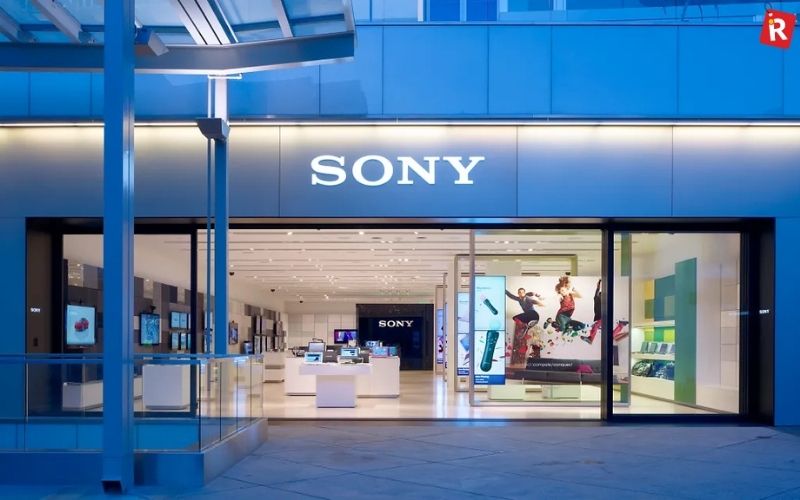
Sony remains one of the most aspirational Japanese electronics brands in India, particularly in televisions, audio products, gaming, and imaging. The brand commands strong recall for premium quality, colour accuracy, and sound performance.
In India, Sony has a significant presence in premium and mid-premium televisions, wireless audio, headphones, cameras, and professional broadcast equipment. Its PlayStation console business has also seen consistent demand growth, driven by increasing gaming adoption in urban India. Sony’s retail strategy relies heavily on brand-exclusive stores, premium multi-brand outlets, and online channels. While the company does not compete aggressively on price, it continues to appeal to consumers seeking performance-driven products.
LG Electronics
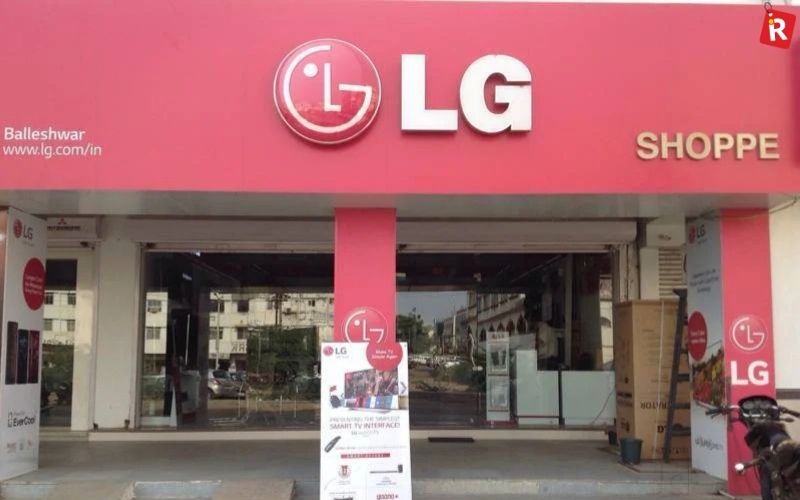
Although LG operates as a Korean multinational today, its early technology collaboration and component sourcing from Japan shaped many of its product foundations. In India, LG competes directly with Japanese electronic companies across appliances and televisions, often adopting Japanese quality benchmarks.
LG’s strong India presence highlights how Japanese electronics design philosophies have influenced broader Asian manufacturing strategies. The company’s large manufacturing base, deep retail reach, and service network reflect operating models pioneered by Japanese electronics brands. While LG is not a Japanese brand, its competitive overlap underscores the enduring influence of Japanese electronics standards in India’s consumer market.
Toshiba
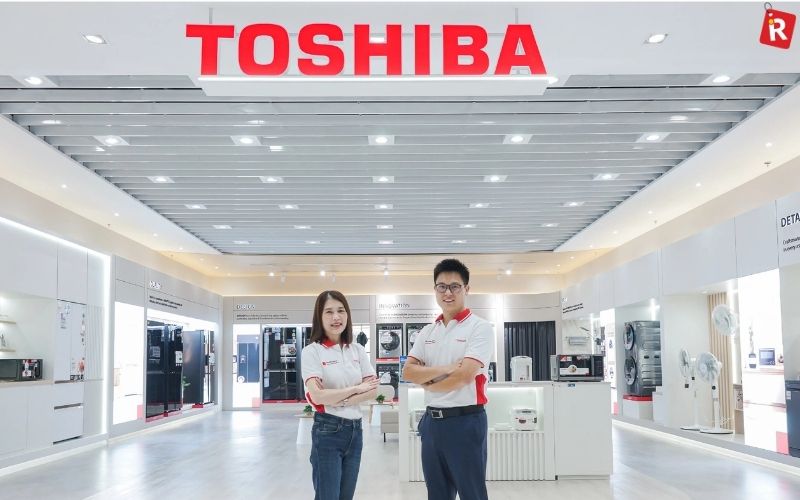
Toshiba is one of the oldest Japanese electronics brands operating in India, with a presence spanning consumer appliances, power systems, and industrial electronics. In the consumer segment, the brand is best known for televisions, washing machines, refrigerators, and air conditioners.
Toshiba has positioned itself in the mid to premium appliance category in India, focusing on build quality, energy efficiency, and long-term performance. Its television portfolio, particularly in the LED and smart TV segments, targets consumers looking for reliable Japanese engineering at competitive price points. The brand has expanded its retail reach through partnerships with national distributors and multi-brand electronics stores, alongside growing online availability. Toshiba’s strategy in India centres on selective category expansion rather than aggressive scale, allowing it to maintain consistency in product quality and service standards.
Among Japanese electronic brands in India, Toshiba continues to leverage its global engineering expertise while adapting products to local usage conditions, especially in appliances designed for Indian households.
Hitachi
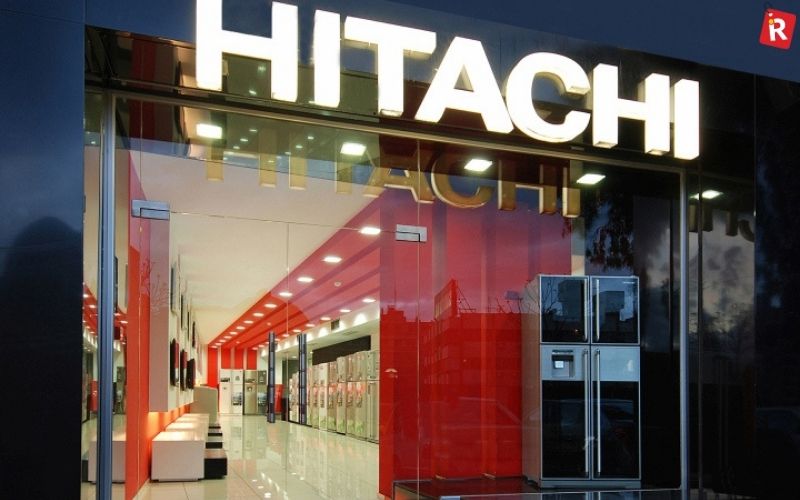
Hitachi has built one of the strongest reputations among Japanese electronic companies in India, particularly in air conditioning and heavy electrical systems. Its consumer-facing business is anchored in premium air conditioners and refrigerators, while its industrial operations span rail, power, and infrastructure solutions.
Hitachi’s air conditioners are widely recognised for performance in extreme climates, energy efficiency, and durability. The brand has invested in local manufacturing and expanded its distribution footprint beyond metros into Tier II and Tier III cities. Unlike many consumer-first brands, Hitachi benefits from its strong B2B and infrastructure presence in India, reinforcing brand credibility.
Read more: Top 5 Dog Food Brands Trusted By Indian Pet Parents
Best Beauty Brands to Check Out for Weddings
Best Fragrance Brands In India Popular among Gen Z
What This Means for Indian Consumers and Retailers
For Indian consumers, Japanese electronics brands continue to represent long-term value rather than short-term affordability. Their focus on reliability, service, and product life cycle remains relevant in categories such as appliances, televisions, and climate control.
For retailers, top Japanese electronics brands offer stable sell-through, lower return rates, and stronger after-sales trust. While price competition has intensified, Japanese electronic companies still play a critical role in anchoring premium and mid-premium assortments across offline and online retail. As India’s electronics market grows more complex, Japanese brands that combine local manufacturing with global engineering standards are likely to retain strategic importance.
FAQs on Top Japanese Electronics Brands in India
1. Which are the top Japanese electronics brands in India?
Some of the top Japanese electronics brands in India include Panasonic, Sony, Sharp, and Hitachi, each with a strong presence across appliances, televisions, and industrial electronics.
2. Why are Japanese electronic brands trusted in India?
Japanese electronic brands are trusted for durability, energy efficiency, consistent performance, and reliable after-sales service, which aligns well with Indian consumer preferences.
3. Are Japanese electronics brands manufacturing in India?
Yes, several Japanese electronic companies such as Panasonic and Hitachi operate manufacturing facilities in India as part of localisation and supply chain strategies.
4. Which is the best Japanese electronic brand in India for home appliances?
Panasonic and Hitachi are often considered among the best Japanese electronic brands in India for home appliances due to product reliability and service coverage.
5. Do Japanese electronics brands compete with Korean and Chinese brands in India?
Yes, Japanese electronic brands compete directly with Korean and Chinese manufacturers, particularly in televisions, appliances, and audio products, while maintaining differentiation through quality and engineering.
If you’re a dog parent in India today, chances are you’ve stood in front of a shelf (or scrolled endlessly online) wondering, “Is this actually good for my dog?” Gone are the days when any brown kibble would do. Pet parents now talk about protein levels, ingredients, digestion, and even poop quality — yes, that’s how serious it’s gotten.
That’s exactly why conversations around the top dog food brands in India have become louder. People want food that keeps their dogs energetic, doesn’t upset their stomach, and actually suits Indian breeds, weather, and lifestyles. Whether you have a sleepy Shih Tzu or a hyper Labrador, choosing from the best dog food brands in India can genuinely change how your dog feels day to day.
What Indian Dog Parents Actually Care About
Most pet parents aren’t chasing fancy buzzwords — they just want food that works. Does the dog eat it without fuss? Is digestion smooth? Is the coat shiny? That’s why dog food brands in India that focus on balanced nutrition and visible results get recommended again and again in pet groups and vet clinics.
Another big thing? Protein. With more dogs getting daily walks, playtime, and even training sessions, high protein dog food has become a popular ask. People want their dogs to stay active without gaining unnecessary weight or feeling sluggish.
From “Affordable” to “Appropriate”
Earlier, affordability was the main filter. Today, it’s about what’s appropriate for your dog. Age, size, breed, activity level — everything matters. That’s where the top dog food brands stand out: they offer multiple variants so you’re not feeding a one-size-fits-all meal to a very unique animal.
Indian Conditions Need Indian Thinking
Indian summers are brutal, monsoons mess with digestion, and not every dog lives in air-conditioned homes. The best dog food brands understand this and formulate food that’s easier on the stomach while still delivering nutrition. That local relevance is a huge reason some brands earn long-term trust.
Read also Budget 2026 Highlights: What the Union Budget Means for Beauty Retail
Best Beauty Brands to Check Out for Weddings
Best Fragrance Brands In India Popular among Gen Z
Top Dog Food Brands Indian Pet Parents Trust The Most
1. Pedigree

Pedigree is that brand most Indian dog parents start with — and many stick with for years. It’s one of the top dog food brands in India simply because it’s easy to find, reasonably priced, and doesn’t overcomplicate things. Dogs generally like the taste, and digestion tends to be predictable, which is a big win for first-time pet parents. It may not be flashy, but Pedigree has earned its spot among trusted dog food brands in India by being consistent and reliable for everyday feeding.
2. Royal Canin

Royal Canin is usually the brand pet parents switch to when they want something more specific. Puppy with a sensitive stomach? Large breed with joint concerns? This is where Royal Canin shines. It’s often counted among the best dog food brands in India because it’s backed by research and clearly shows results in coat health and digestion. Yes, it’s expensive — but many pet parents feel the targeted nutrition makes it worth it.
3. Drools

Drools has built a solid reputation as a high protein dog food brand that works well for active Indian dogs. Trainers, breeders, and vets frequently recommend it for dogs that burn a lot of energy. It uses meat-based protein and focuses on strength and stamina, which is why it’s now firmly placed among the top dog food brands in the country. For pet parents who want performance without paying premium-import prices, Drools often feels like a smart middle ground.
4. Carniwel

Carniwel has been quietly building a loyal following among Indian pet parents who swear by meat-first nutrition. Known for its focus on high protein dog food, Carniwel formulates recipes that closely mirror a dog’s natural dietary needs. The brand uses real meat as the primary ingredient, with minimal fillers, making it a strong pick for active dogs, growing puppies, and breeds that thrive on protein-rich diets. What sets Carniwel apart among dog food brands in India is its clean-label approach — no unnecessary additives, just straightforward nutrition. For pet parents seeking functional, protein-forward meals, Carniwel fits right into the list of best dog food brands in India.
5. Advance

Advance has been gaining attention as a dependable pet food brand in India for balanced, daily nutrition. Its recipes focus on protein quality and overall wellness rather than gimmicks. Pet parents often notice improvements in coat texture and energy levels within weeks. If you’re looking for something premium but still practical for everyday feeding, Advance earns its place among the top dog food brands in India.
Explore more: Top 5 Dishwasher Brands in India for Modern Kitchens in 2026
Best 5 Sportswear Brands In India Competing Globally
Top Online Jewellery Brands Winning India’s E-commerce Market
Market Insight: How Indian Dog Food Buying Is Changing
Indian pet parents are way more informed now — and brands feel that pressure. People read ingredient lists, compare protein percentages, and even switch brands if their dog’s energy or digestion dips. Online reviews, vet advice, and word-of-mouth recommendations are shaping buying decisions more than advertisements. As a result, dog food brands in India are expanding ranges — from breed-specific diets to sensitive stomach formulas — because pet parents want food that feels tailored, not generic.
Final Thoughts: Feed Smart, Not Just Familiar
Choosing from the best dog food brands in India isn’t about following trends — it’s about paying attention to your dog. If your dog is active, high protein dog food may help. If digestion is sensitive, simpler formulas work better. Brands like Pedigree, Royal Canin, Drools, Aristo, and Advance are trusted because they’ve proven themselves in real Indian homes, with real dogs.
At the end of the day, the right food is the one your dog thrives on — happy walks, healthy digestion, and that excited tail wag at mealtime
FAQs on Top Dog Food Brands in India
1. How do I know if a dog food brand is actually suiting my dog?
Your dog will tell you — just not in words. If meals are finished happily, digestion is smooth, energy levels stay steady, and the coat looks healthy, the food is doing its job. Constant scratching, loose stools, or sudden fussiness usually mean it’s time to rethink the brand or protein source. That’s why even among the top dog food brands in India, not every option works for every dog.
2. Is high protein dog food always better?
Not necessarily. High protein dog food is great for active, growing, or working dogs, but for calmer or older dogs, too much protein can actually feel heavy. The trick is matching protein levels to your dog’s lifestyle, not chasing the highest number on the pack.
3. Can I switch between dog food brands in India easily?
You can — just don’t do it overnight. Dogs hate sudden surprises when it comes to food. Mix the new food with the old one slowly over 7–10 days. Even the best dog food brands can cause stomach trouble if you switch too fast.
4. Are Indian pet food brands as good as imported ones?
In many cases, yes. Several pet food brands in India now formulate food keeping Indian weather, digestion patterns, and common breeds in mind. Imported brands are great, but they’re not automatically better — especially if your dog thrives on a locally made formula.
5. What’s the biggest mistake pet parents make while choosing dog food?
Picking food based on brand popularity instead of the dog in front of them. Just because something ranks among the top dog food brands doesn’t mean it’s perfect for your pet. Age, activity level, and digestion matter way more than what’s trending online.
The Union Budget 2026–27 introduces targeted policy measures that have a direct bearing on India’s beauty and personal care ecosystem, particularly around imports, consumer spending and operating costs. Among the key Budget 2026 highlights is the reduction in basic customs duty on all goods imported for personal use from 20 percent to 10 percent, a move that can make imported beauty, skincare, fragrances and personal care products more affordable for consumers. This supports discretionary spending and reinforces a consumption-friendly policy, indicating a positive signal for beauty brands across the FMCG and D2C landscape.
Infrastructure and Regional Expansion Set the Tone
Rahul Shanker, Group CEO, Quest Retail (The Body Shop India), views the Budget as a clear pivot toward long-term growth enablers rather than short-term stimulus. According to him, the emphasis on infrastructure development, services-led growth and digital integration directly supports consumer-facing sectors such as beauty and personal care.
“Investments in manufacturing ecosystems, urban and regional economic clusters, and skills aligned to emerging technologies will strengthen supply chains and improve market access,” Shanker says.
He adds that these measures create the right conditions for expansion beyond metros.
“For large retail and brand-led businesses, these measures create the right environment to expand responsibly into Tier II, Tier III and rural markets, unlock new consumer demand, and accelerate the creation of globally competitive Indian brands.”
MSME Support and Liquidity Strengthen the Beauty Value Chain
For fast-growing beauty brands, access to capital and smoother operations across the supply chain remain critical. Mohit Goyal, Co-Founder & Director, Swiss Beauty, highlights how the Budget directly addresses these challenges.
“The Union Budget 2026–27 meaningfully strengthens India’s retail and FMCG operating ecosystem by addressing critical growth enablers such as capital access, liquidity and ease of compliance.”
Goyal also notes that trade and logistics efficiencies matter deeply for quality-led beauty brands.
“For Swiss Beauty, which sources high-grade ingredients globally and adheres to stringent BIS-led quality and safety standards, the reduction of the tariff rate on all dutiable goods imported for personal use from 20 percent to 10 percent, alongside a more efficient trade and logistics environment, will support cost efficiencies, supply-chain flexibility, consistency, innovation and scalable growth.”
Read more: How the Union Budget 2026 Reshapes India’s Apparel, Textile and Footwear Landscape
Union Budget 2026 Highlights: What It Means for Retail, FMCG, Consumer Brands and Spending
Manufacturing Push Boosts Confidence for Indian Beauty Brands
The Budget’s continued emphasis on manufacturing and MSMEs has strengthened confidence among homegrown beauty players. The allocation of a Rs 10,000 crore SME Growth Fund, improved TReDS participation and enhanced credit guarantees are viewed as positive growth drivers.
“The Union Budget 2026 shows clear confidence in India’s manufacturing and MSME sector. The focus on reviving industrial clusters, supporting growing SMEs through a dedicated fund, and strengthening supply chains will help businesses become more resilient and competitive,” shares Sunil Agarwal, Co-Founder and Chairman, Joy Personal Care (RSH Global).
He also highlights the importance of inclusive growth.
“The continued push on capital spending, easier foreign investment norms, and support for women-led and micro enterprises underline the government’s commitment to inclusive and long-term growth.”
Ayurveda and Natural Beauty Gain Strategic Depth
For Ayurveda-led beauty and wellness brands, the Budget marks a meaningful step toward global credibility. Swagatika Das, CEO & Co-Founder, Nat Habit, underscores the importance of capability building and points to the creation of three new All India Institutes of Ayurveda as a turning point.
“The Union Budget 2026 signals a clear intent to position Ayurveda and AYUSH as scalable, science-backed contributors to India’s beauty and wellness economy,” she says.
Das also highlights the export push and inclusion-led initiatives.
“Equally significant is the renewed push to expand exports of Ayurveda and AYUSH-based products… Inclusion-led initiatives such as She MARTS further strengthen the ecosystem by expanding market access for women-led micro-enterprises.”
AYUSH Exports and Traditional Medicine Get a Global Push
Hari Ram Rinwa, Founder, Ashpveda, sees the Budget as a strong signal for India’s traditional medicine ecosystem.
“The Union Budget 2026 charts a course of transformation for the Ayurveda and traditional medicine sector in India.”
He notes that the focus on institutions and exports will benefit the entire value chain.
“Improving AYUSH pharmacies, promoting export-oriented development, and boosting the export of high-quality Ayurvedic products will be critical to meeting increased global demand.”
With AYUSH exports already approaching $689 million in FY25, Rinwa believes the opportunity is significant.
“Such policies are critical to linking the ancient heritage of Ayurveda to new markets, both domestically and internationally.”
Read also Best Beauty Brands to Check Out for Weddings
Budget 2026: Furniture and Décor Industry Seeks Policy Push for Manufacturing, Quality and Growth
Positive Outlook for Beauty Retail
From a financial and operational standpoint, beauty brands see the Budget as an enabler rather than a constraint. Priyam Mahajan, Head of Finance, MARS Cosmetics, sums up the sentiment.
“The Union Budget 2026 is a hopeful indication for the beauty and personal care industries in India. There is a strong emphasis on SMEs, domestic production and an improved way of doing business, which will create an environment for companies like ours to expand their operations responsibly,” concludes Mahajan.
Taken together, industry voices agree that the Union Budget 2026–27 lays the foundation for the next phase of beauty retail growth in India. By strengthening infrastructure, enabling MSMEs, investing in skills and supporting Ayurveda-led innovation, the Budget creates an ecosystem where beauty brands can scale with confidence—across categories, channels and geographies.
A mortgage loan is a long-term financial decision. While interest rates and eligibility are important, what truly determines comfort is your monthly EMI. Planning this in advance helps you borrow with confidence and avoid financial strain later. A mortgage loan EMI calculator allows you to estimate your monthly outflow before you apply, giving you complete clarity on affordability.
Since mortgage loans usually involve higher amounts and longer tenures, even small changes in tenure or interest rates can impact your monthly budget. This makes EMI planning an essential first step.
Understanding how mortgage loan EMIs are calculated
Your EMI is influenced by three key factors that work together to determine your monthly repayment.
- Loan amount: Higher loan amounts lead to higher EMIs.
- Interest rate: Even small rate differences can significantly impact long-term repayments.
- Loan tenure: Longer tenures reduce monthly EMIs but increase overall interest paid.
Understanding this relationship helps you evaluate how changes in one factor affect the others.
Why using a mortgage loan EMI calculator is important?
Manual EMI calculations can be time-consuming and confusing. A mortgage loan EMI calculator simplifies the process and provides instant results.
- Clear monthly visibility: Know your exact EMI before applying.
- Multiple scenario comparison: Adjust loan amount, tenure, and interest rate easily.
- Better borrowing control: Avoid taking a loan that stretches your monthly budget.
This clarity allows you to plan your finances more responsibly.
How EMI planning helps you manage your budget better?
Once you know your EMI, budgeting becomes easier and more predictable.
- Expense planning: Align your EMI with household and lifestyle expenses.
- Savings balance: Ensure loan repayments do not disrupt your savings goals.
- Long-term stability: Maintain financial comfort throughout the loan tenure.
Proper EMI planning ensures your mortgage loans support your goals rather than becoming a burden.
Benefits of choosing Bajaj Finance for mortgage loans
Once your EMI is planned, choosing the right lender becomes crucial. Bajaj Finance offers mortgage loan solutions designed to balance affordability, flexibility, and convenience.
- High loan amounts: You can unlock funding of up to Rs. 10.50 crore* based on your property value, making it suitable for large requirements like business expansion or major investments without selling your asset.
- Competitive interest rates: Attractive interest rates help keep your EMIs affordable over the long term, allowing you to manage repayments smoothly while maintaining healthy cash flow.
- Long repayment tenures: With tenures of up to 15 years*, you can spread your repayments comfortably, reducing monthly financial pressure and aligning EMIs with your income cycle.
- Quick approvals and disbursal: A streamlined approval and documentation process ensures faster access to funds, helping you act on time-sensitive financial needs without unnecessary delays.
- Digital loan management: Easy online access lets you track EMIs, view statements, and manage your mortgage loan efficiently, giving you better control and transparency throughout the loan tenure.
Conclusion
Planning your EMI is the foundation of a comfortable mortgage loan journey. A mortgage loan EMI calculator helps you understand affordability, compare options, and choose a repayment structure that fits your budget.
Once your EMI is aligned with your finances, applying becomes quick and stress-free. With the added benefits offered by Bajaj Finance, you can move forward confidently, knowing your mortgage loan is built around your financial stability.
*Terms and conditions apply
India’s apparel, textile and footwear industry stands at a defining inflection point. As one of the country’s largest employment generators and export contributors, the sector has historically balanced scale with craftsmanship, cost competitiveness with creativity, and tradition with modern manufacturing. With Union Budget 2026–27, the government has made a clear statement: India’s next phase of growth in fashion and lifestyle manufacturing will be driven by exports, sustainability, technology, skilling, and value-added production.
At a time when global sourcing dynamics are shifting, supply chains are being recalibrated, and sustainability is no longer optional, the Budget’s focused interventions signal a strong intent to position India as a future-ready global hub for textiles, apparel, leather and footwear.
Industry Overview: A Backbone of Indian Manufacturing
The textile and apparel industry contributes significantly to India’s GDP and employs millions across the value chain—from cotton farmers and weavers to factory workers, designers, exporters and retail staff. The footwear and leather segment, similarly, is among the most employment-intensive manufacturing sectors, with strong linkages to MSMEs and export markets.
However, the sector has been navigating multiple challenges: rising raw material costs, tariff barriers in key global markets, competition from countries like Bangladesh and Vietnam, and the need to move beyond volume-driven growth towards design-led and innovation-centric manufacturing.
It is against this backdrop that Budget 2026 arrives—not as a short-term stimulus, but as a structural reset.
A Budget with a Long-Term Vision
One of the strongest signals from Budget 2026 is its focus on building depth across the manufacturing ecosystem, rather than isolated incentives.
Amar Nagaram, Co-Founder, VIRGIO, captured this shift succinctly,“The Budget makes it clear that India’s next phase of growth will be driven by the convergence of design, technology, and sustainability. The strong emphasis on sustainable textiles, MSME scale-up, AI-led innovation, and design education reflects a long-term vision to move Indian manufacturing up the global value chain. For consumer and fashion brands, this creates a more enabling ecosystem, one that supports responsible production, data-driven decision-making, and global competitiveness. By balancing manufacturing depth with investments in skills, services, and digital infrastructure, the Budget accelerates India’s shift from volume-led growth to value- and innovation-led growth, positioning the country as a credible global hub for future-ready fashion and lifestyle businesses.”
This articulation reflects the broader industry consensus: the Budget is not merely about producing more, but about producing better.
Read more: Union Budget 2026 Highlights: What It Means for Retail, FMCG, Consumer Brands and Spending
Boosting Exports: Relief for Apparel and Footwear Manufacturers
A major highlight of Budget 2026 is its export-enabling measures, particularly for the footwear and leather segments. The extension of duty-free import benefits to shoe uppers, along with longer export timelines, directly addresses long-standing operational bottlenecks faced by manufacturers.
Sachin Joseph, EVP – Marketing & IT, Paragon Footwear said, “We welcome the Union Budget announcements by the Honorable Finance Minister Nirmala Sitharaman aimed at strengthening India’s footwear export ecosystem. The extension of duty-free import benefits to shoe uppers, along with longer export timelines, will significantly improve supply-chain efficiency, reduce operational bottlenecks, and ease compliance for manufacturers. These measures will enable exporters to plan production cycles more effectively, enhance cost competitiveness, and respond better to global demand. At a time when India is positioning itself as a reliable manufacturing and sourcing hub, such targeted policy support will go a long way in accelerating footwear exports and reinforcing India’s presence in international markets.”
The ability to plan production cycles with greater flexibility is particularly crucial as global buyers increasingly demand speed, compliance, and consistency.
Leather & Footwear: Recognised as Strategic Sectors
For the leather and footwear industry, Budget 2026 offers long-awaited recognition as a strategic, export-oriented and employment-intensive sector.
Mr. Shiraz Askari, President, Apollo Fashion International Limited noted,“What is encouraging in this year’s Budget is the clear recognition of leather and footwear as important export-oriented, employment-intensive manufacturing sectors. Measures such as improved duty-free access for key inputs, extending benefits across segments like shoe uppers, and providing greater flexibility in export timelines will meaningfully enhance cost competitiveness and ease of doing business for manufacturers. At a time when global sourcing markets are increasingly demanding on speed, quality and compliance, these steps can strengthen India’s position as a reliable leather and footwear manufacturing partner and support the sector’s continued growth in exports and employment. Importantly, such reforms also have a direct multiplier effect on job creation across clusters and workforce-intensive supply chains. Overall, these initiatives signal a clear push to build a more resilient and globally competitive leather and footwear export ecosystem.”
This emphasis aligns with India’s ambition to capture a larger share of the global footwear and leather trade.
Read also How Budget 2026-27 can boost India’s retail growth story?
D2C Brands and Global Scale-Up
For new-age D2C brands, which are increasingly export-focused and design-led, the Budget’s export facilitation measures are particularly impactful.
Siddharth Dungarwal, Founder, Snitch stated, “Budget 2026 takes a decisive step towards making India a global textile and apparel powerhouse. The focus on export enablement, duty rationalisation for leather and synthetic goods, and the removal of the courier export value cap will significantly benefit brands and manufacturers looking to scale internationally. The integrated approach towards fibres, skilling, cluster modernisation, sustainability, and technical textiles reflects a long-term vision that supports both innovation and employment. For new-age D2C brands and exporters, this budget creates the right foundation to compete globally while building value-added manufacturing capabilities in India.”
The removal of barriers such as courier export caps is especially relevant for D2C brands that rely on cross-border e-commerce to reach global consumers.
MSMEs, Manufacturing and Retail Confidence
While the Budget does not directly stimulate consumption demand, its emphasis on manufacturing, infrastructure and MSME resilience is expected to create a supportive environment for retail-led industries.
Anupam Bansal, Executive Director, Liberty Shoes observed, “The Union Budget 2026-27 reflects a measured and pragmatic approach to supporting India’s manufacturing-led growth and the broader consumer and retail ecosystem. The emphasis on strengthening domestic production and improving the operating environment for businesses sends a positive signal for organised retail, which is closely linked to the health of India’s manufacturing base.
The continued focus on MSMEs and industrial competitiveness is encouraging, as a resilient vendor and sourcing ecosystem is critical for consumer-facing industries. Over time, such an approach can help improve efficiency, formalisation, and scalability across retail supply chains. While the Budget does not directly target consumption or retail demand, its broader push towards infrastructure development, ease of doing business, and manufacturing expansion is likely to create supportive conditions for discretionary categories.”
This sentiment reflects cautious optimism across organised retail and footwear players.
Textiles, Women’s Employment and Sustainability
The Budget’s integrated textile initiatives—spanning fibre self-reliance, cluster modernisation, skilling, and sustainability—have been particularly well received by fashion brands.
Akhil Jain, CEO & MD, Madame added, “The Union Budget 2026–27 takes a meaningful step towards strengthening India’s textile and apparel ecosystem, with a clear focus on modernisation, skilling, and sustainability. For contemporary fashion brands, the emphasis on fibre self-reliance, upgraded manufacturing clusters, and initiatives like Text-ECON and SAMARTH 2.0 will support more agile, responsible, and design-led growth. Importantly, the renewed push for handloom, handicrafts, and rural employment has the potential to increase women's economic participation across the value chain. For women-focused brands like Madame, this enables deeper local sourcing, sharper innovation, and more inclusive growth aligned with evolving consumer expectations.”
Know more: Mid-Premium Apparel Grows at 25 pc CAGR as Accessible Premium Reshapes India’s Fashion Market
Traditional Textiles and Fibre Self-Reliance
The Budget’s focus on fibre development and traditional sectors has also been welcomed by industry leaders.
Rohan Gupta, Managing Director & CFO, Gargee Designer’s asserted, “The Union Budget 2026 is a positive and encouraging development for the labor-intensive textile industry in India. The proposed integrated program, particularly the National Fiber Scheme, is a step in the right direction to achieve self-sufficiency in natural and next-generation fibers, which is the need of the hour for a strong and future-ready textile industry.
The proposed development of the traditional sector under the Textile Expansion and Employment Scheme will be a major positive step towards filling the gap between the traditional sectors and modern manufacturing. Moreover, schemes such as the National Handloom and Handicrafts Program and the Mahatma Gandhi Gram Swaraj Initiative are a reaffirmation of the government's commitment to developing weavers, artisans, and rural youth to make them globally competitive. The Union Budget 2026 is a positive start towards the sustainable development and global competitiveness of the textile and apparel industry in India.”
From Volume to Value
Union Budget 2026–27 marks a strategic turning point for India’s apparel, textile and footwear sectors. By addressing exports, skilling, MSMEs, sustainability, traditional crafts, and modern manufacturing in a unified framework, the Budget lays the foundation for value-led, innovation-driven growth.
While challenges around global tariffs, raw material costs and demand recovery remain, the policy direction is clear: India is preparing not just to manufacture for the world, but to design, innovate and lead.
For fashion and lifestyle businesses across the spectrum—from D2C brands to legacy manufacturers—the Budget reinforces confidence in India’s long-term role as a globally competitive, future-ready sourcing and retail destination.
The Union Budget 2026–27, announced by Finance Minister Nirmala Sitharaman on February 1, 2026, sends a clear and reassuring signal for India’s retail and consumer economy. Among the key union budget 2026 highlights is the government’s focus on supporting consumption growth without fuelling inflation. Instead of broad-based tax hikes, the Budget relies on targeted customs duty rationalisation, healthcare relief, MSME support and manufacturing incentives. These budget 2026 highlights directly influence retail pricing, operating margins, supply chain stability and consumer demand.
For retailers, FMCG companies, e-commerce platforms and consumer brands, the policy stance creates a favourable environment where cost pressures are selectively eased, demand remains protected, and expansion opportunities—especially beyond metro markets—continue to strengthen.
Cheaper Personal Imports Support Consumer Demand
One of the most consumer-facing union budget highlights 2026 is the reduction in customs duty on dutiable personal imports from 20 percent to 10 percent. This move makes high-value imported goods more affordable and supports demand across categories such as electronics, fashion accessories, beauty products, watches and fragrances. It also encourages cross-border shopping while nudging domestic retailers and brands to sharpen pricing strategies, strengthen private labels and enhance value-added services to remain competitive.
Healthcare Relief Frees Up Household Spending
Healthcare relief stands out as a key pillar in the budget highlights, with a direct bearing on household finances and consumption. The full exemption of basic customs duty on 17 life-saving drugs—primarily used in cancer treatment—along with the inclusion of seven additional rare diseases under duty-free personal imports for medicines and food for special medical purposes, significantly reduces treatment-related expenses.
Lower healthcare costs free up disposable income, creating a positive spillover effect for FMCG, grocery, discretionary retail and QSR segments. This supports steady consumer spending rather than precautionary saving, reinforcing one of the core union budget 2026 highlights focused on demand stability.
Read more: How the Union Budget 2026 Reshapes India’s Apparel, Textile and Footwear Landscape
Plan Your Budget with a Mortgage Loan EMI Calculator and Apply Now in Minutes
Export Input Relief Strengthens Food and FMCG Supply Chains
Among the less visible but structurally important budget 2026 highlights is the increase in the duty-free import limit for specified seafood processing inputs from 1 percent to 3 percent of the FOB export value. While aimed at exporters, this measure helps stabilise upstream costs and improves supply consistency for food, frozen foods and packaged seafood categories.
As a result, consumer brands operating across domestic and export markets benefit from reduced margin volatility, indirectly supporting modern trade and e-commerce grocery platforms.
Limited Duty Changes May Raise Costs for Select Imports
On the cost side, the union budget highlights 2026 include the withdrawal of customs duty exemptions on select imported items that are already manufactured domestically or where imports are minimal. While detailed product-level notifications are awaited, this could lead to marginal price increases for certain imported SKUs.
However, the change is targeted rather than broad-based. It encourages retailers and brands to shift sourcing towards domestic manufacturers and strengthens the “Made in India” positioning across consumer categories, while limiting inflationary risks for mass-market retail.
Consumer Spending Outlook Remains Broad-Based
From a consumption standpoint, the Union Budget 2026 highlights point to a broadly positive outlook. Fashion and apparel are expected to benefit from stable pricing and improved discretionary spending, particularly in mid-premium and occasion-led categories. Grocery and FMCG stand to gain from healthcare-related savings and a steady income outlook, supporting higher basket sizes and premiumisation.
In electronics and gadgets, cheaper personal imports may intensify competition but are also likely to expand overall category demand. QSR and food retail should see higher footfalls and delivery-led growth, supported by urban consumption momentum, while consumer durables may benefit from stable inflation and improved sentiment encouraging replacement and upgrade cycles.
Read also How Budget 2026-27 can boost India’s retail growth story?
Budget 2026: Furniture and Décor Industry Seeks Policy Push for Manufacturing, Quality and Growth
How Retailers and Brands Are Likely to Respond
In response to these budget highlights, retailers and consumer brands are expected to prioritise volume growth over aggressive margin protection, holding or selectively adjusting prices to stimulate demand. Many are likely to accelerate franchise-led expansion in Tier II and Tier III cities, backed by resilient consumption patterns.
Omnichannel strategies blending physical retail, e-commerce and quick commerce will continue to gain importance, alongside a stronger focus on private labels and domestic sourcing. With consumer sentiment improving, brands may invest more confidently in brand-building, marketing and customer acquisition. E-commerce platforms are likely to see higher engagement in cross-border categories, while offline retail benefits from improving foot traffic and experiential shopping.
A Positive Growth Signal for the Retail Industry
Overall, the Union Budget 2026–27 reinforces consumption as a central growth pillar without introducing shocks to household expenses. With targeted cost relief, minimal inflationary pressure and steady demand drivers, these union budget 2026 highlights create a supportive backdrop for retail, FMCG, consumer brands and e-commerce.
As Ricky Vasandani, CEO & Co-Founder, Solitario, noted,
“Budget 2026 sends a strong signal for sectors driven by advanced manufacturing, ethical sourcing, and consumer-led growth,” adding that improved access to capital and retail-led demand can support innovation-driven and discretionary categories.
Echoing this optimism, Ganesh Sonawane, CEO and Co-Founder, Frido, said,
“By easing input costs and streamlining digital cargo clearances, the Budget creates a faster, more cost-efficient environment for brands to scale operations and compete on a global stage.” For the retail industry, the message is clear: pricing remains stable, consumer spending is resilient, and there is room to expand—making Budget 2026 a clear positive growth signal for brands looking to invest, scale and innovate with confidence.
Indian weddings have always been the emotional ecosystems built on memory, tradition and family love, with jewellery at the centre of it all. A mangalsutra, a bridal necklace, a pair of heirloom bangles aren't simply worn, they are inherited, negotiated and remembered for generations. For decades, the process of buying them has followed a family rhythm where families would gather at their trusted jeweller to select and refine important heirloom pieces. Wedding jewellery has never been merely an accessory; it has always held intimate, tactile, and deeply personal significance.
Today, the digital age is quietly but decisively reshaping the deeply traditional jewellery purchase. Technology has shifted jewellery shopping from closed counters to open screens where the bride and groom can make an informed decision and have an immersive experience. It is transforming jewellery shopping from an overwhelming obligation into a more informed, personalised, and empowering experience, without stripping it of its emotional core.
Discovery Has Moved from Showrooms to Screens
Earlier, design inspiration was influenced by family vaults, neighbourhood jewellers, or word-of-mouth recommendations. Today, Instagram Reels, Pinterest boards, influencers, celebrity weddings and jewellery trends blend heritage with modern styling. A single reel featuring a kundan choker or a reimagined polki set can influence thousands of brides overnight. This shift has helped brides to understand and combine global aesthetics, compare styles and visualise a better transformation without stepping out of their comfort zone.
The Social Media communities have also amplified awareness around values such as sourcing, sustainability, and longevity. Buyers today want to understand where materials come from, how they are crafted, and whether their purchases align with their personal ethics.
Immersive Visualisation
Immersive jewellery visualisation has emerged as one of the most meaningful shifts in the jewellery market. AR-enabled interfaces allow users to see which necklace looks best against their neckline, which earrings frame their face, dynamically adjusting for skin tone, outfit, and scale in real time. What may appear as a technological enhancement is, in practice, an emotional reassurance layer. For high-consideration purchases such as bridal jewellery, confidence matters far more than speed. In situations like a pandemic, where physical access is restricted, immersive visualisation acts as a bridge. It enables consumers to explore thoughtfully, return to shortlisted designs, and build certainty before committing. This technology is gaining momentum in categories like lab-grown diamonds, where buyers seek clarity not only on design, but also on ethics, sourcing, and long-term value.
From Buyers to Co-Creators
Customisation has moved from the backroom to the browser. Digital design tools now allow consumers to actively participate in the creation process, adjusting motifs, metals, gemstones, and proportions through intuitive 3D interfaces. What once required multiple in-person consultations can now unfold collaboratively and with greater transparency.
This shift recalibrates the power dynamic; jewellers are no longer the sole custodians of design; they are partners in creation. Buyers are more intentional, more involved, and more emotionally invested. Many go on to share their design journeys with friends and family, transforming jewellery into a narrative rather than a transaction. This sense of authorship is redefining loyalty within the category.
Transparency Is Becoming the New Trust Currency
Perhaps the most profound change has been the rise of transparency. Historically, jewellery pricing in India operated within layers of ambiguity. Digital platforms are now introducing clarity through real-time pricing calculators, open access to certification, and traceability tools.
Blockchain-backed verification, QR-enabled certificates, and detailed cost breakdowns are enabling consumers to understand precisely what they are paying for. This resonates deeply with today’s buyers, who value principles as much as price. For lab-grown diamonds in particular, transparency has been a key catalyst, allowing consumers to confidently choose sustainable alternatives without compromising on brilliance, sentiment, or occasion-worthiness.
Digital mechanisms are not replacing tradition; they are safeguarding it, ensuring that heirlooms passed down carry stories of responsibility alongside beauty.
The Road Ahead
This digital evolution is not without its challenges. Concerns around data security, uneven digital access, and the risk of marginalising traditional karigars remain real. Technology must be inclusive rather than extractive. The future of jewellery retail lies in platforms that elevate artisan skill instead of sidelining it.
What we are witnessing is not a departure from heritage, but its expansion. Technology is giving Indian wedding jewellery a contemporary language—one that speaks of craftsmanship, sustainability, and informed choice. Brides today are not merely selecting pieces for a ceremony; they are curating legacies that reflect who they are and what they stand for.
Ultimately, the most significant transformation is not digital, but emotional. The modern bride is no longer navigating this journey with uncertainty, but with agency. And that, more than any innovation, marks the real evolution of Indian wedding jewellery.
Authored by:












